**
BB:** I want to take this opportunity to share some information. I spent a significant amount of time this past week learning as much as I could learn, more than I could ever imagine to tell you the truth, about bladders, air gauges, stitching, pressure, game day football preparation, rubdowns and so forth. [I'm] trying to be as helpful as I can here and share with you what I've learned. Having coached for 40 years in the National Football League, played for several years, growing up in a football family, being around this game my entire life, it's clear that I don't know very much about this area. Over the last few days I've learned a lot more than I ever knew – like, exponentially more.
Check out photos from practice and media access as Patriots prepare to take on the seahawks during the Super Bowl bye week.

Steve Comen, Robert Kraft and Shirley McDonald
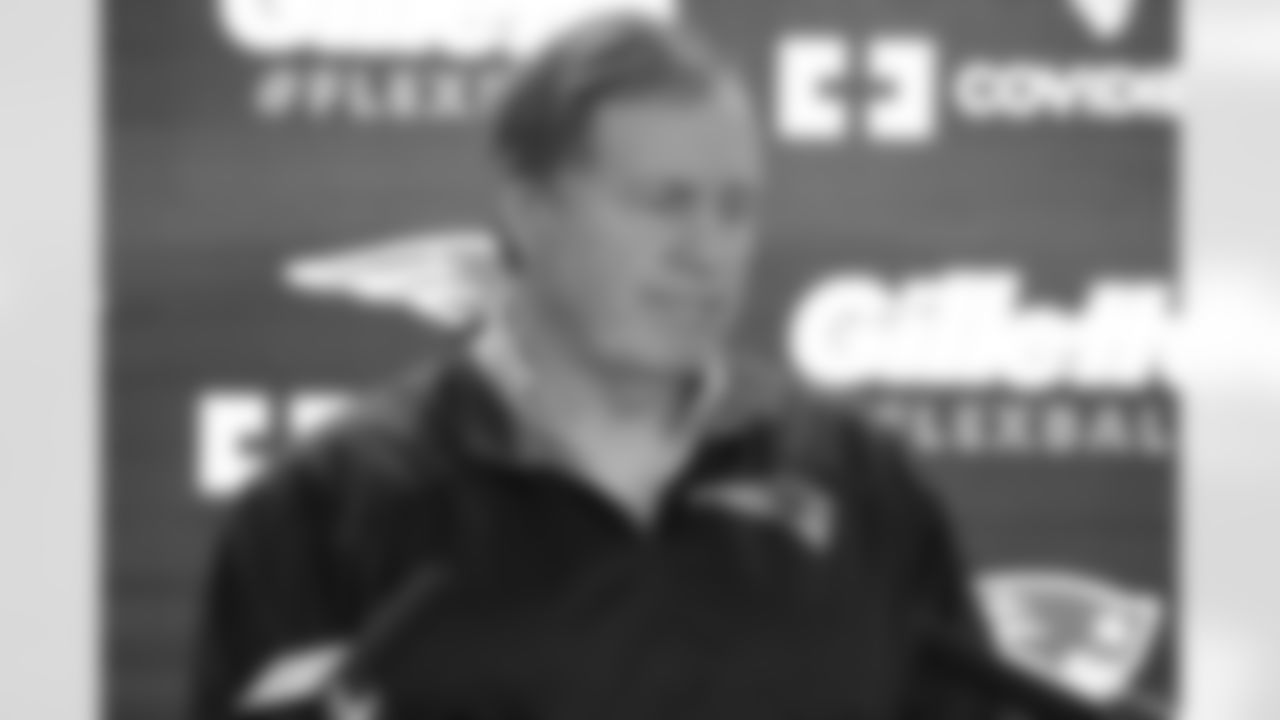
Robert Kraft shows off his Edward Devotion School gear given to him Wednesday morning.
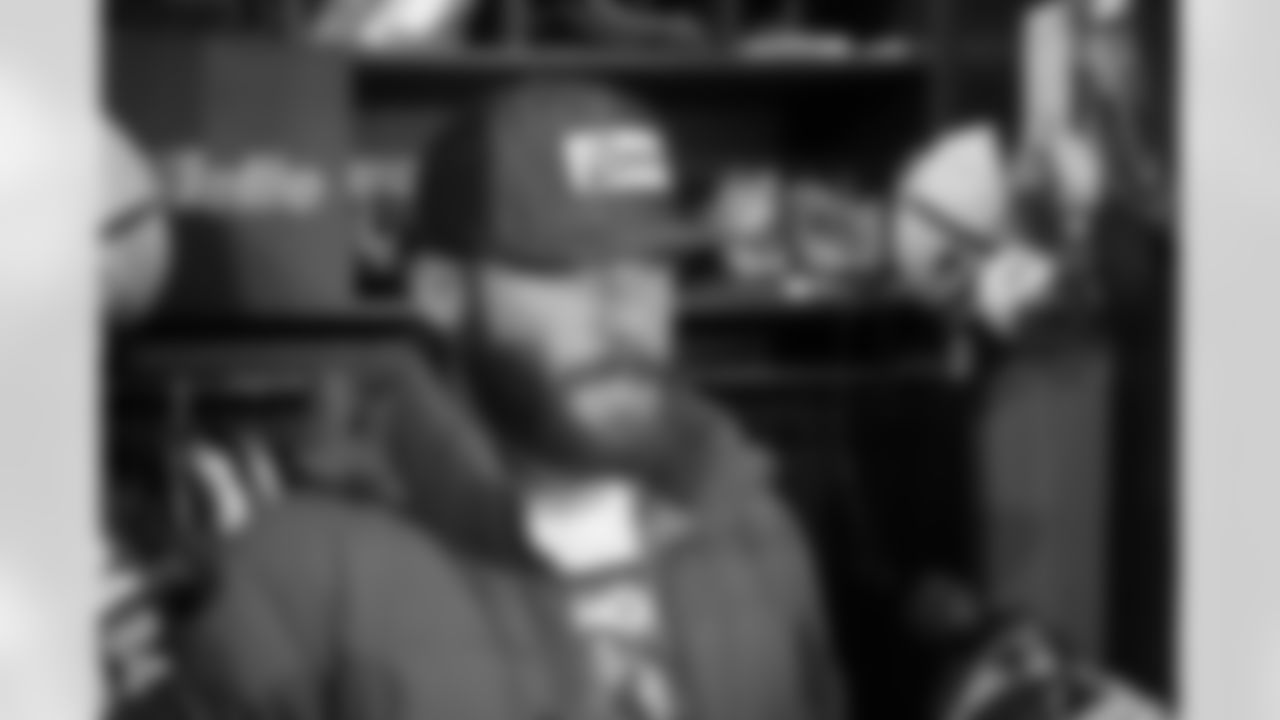
Robert Kraft and his classmate Steve Comen pose for a picture with students at Edward Devotion School.
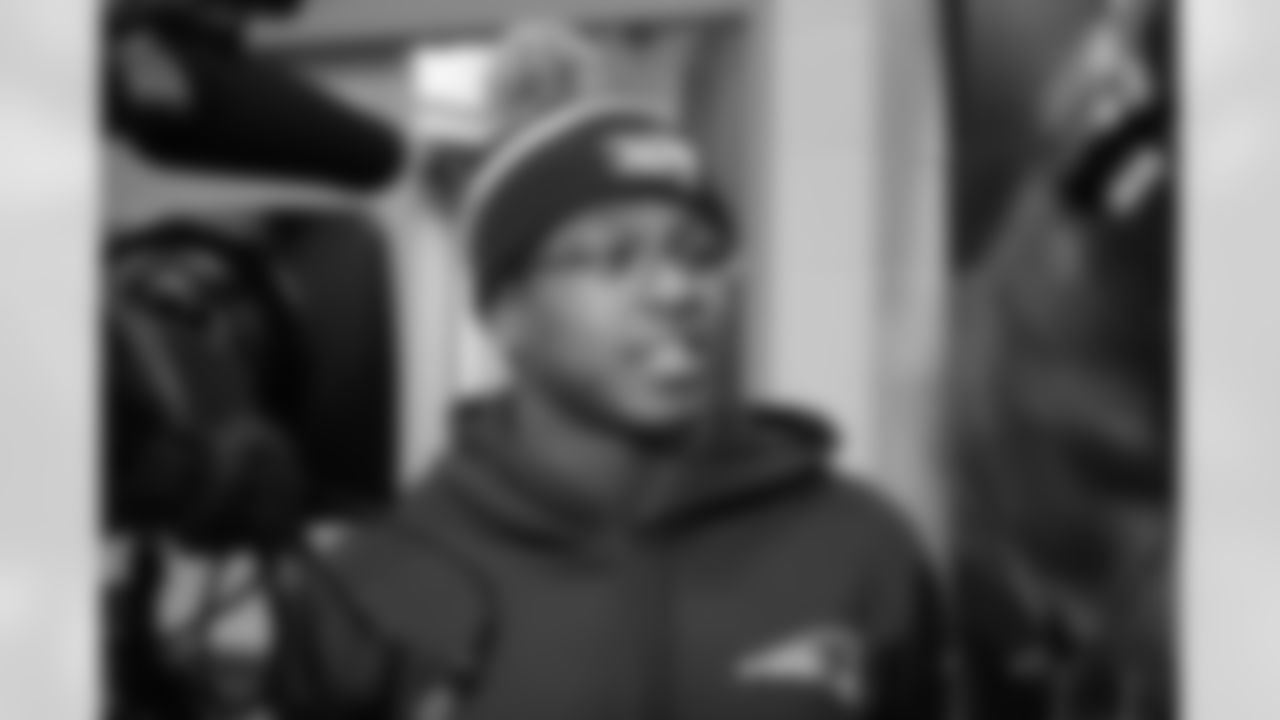
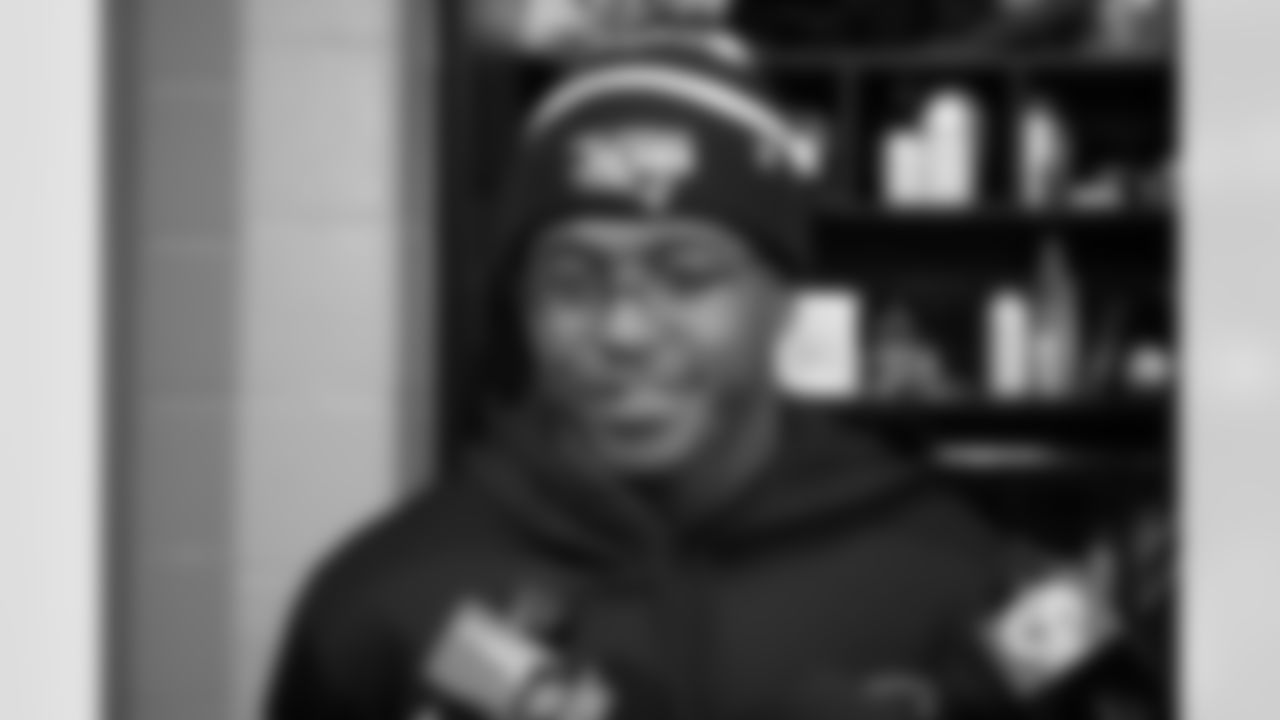
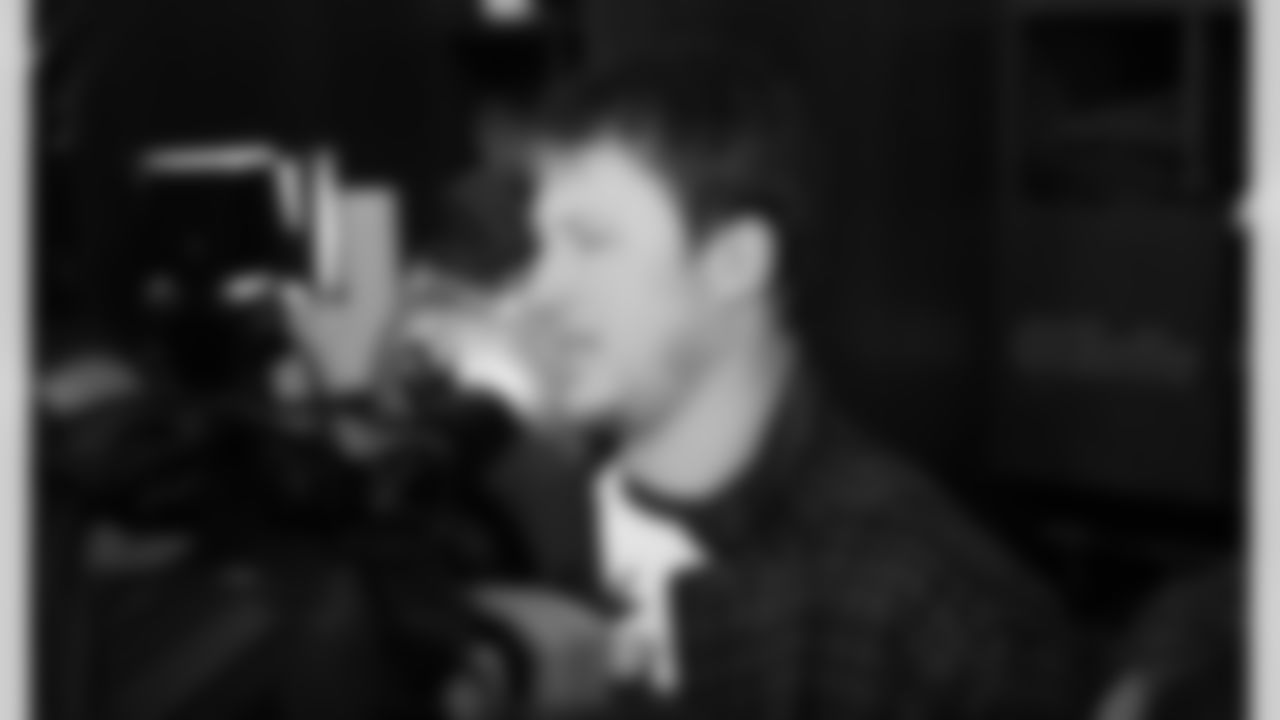
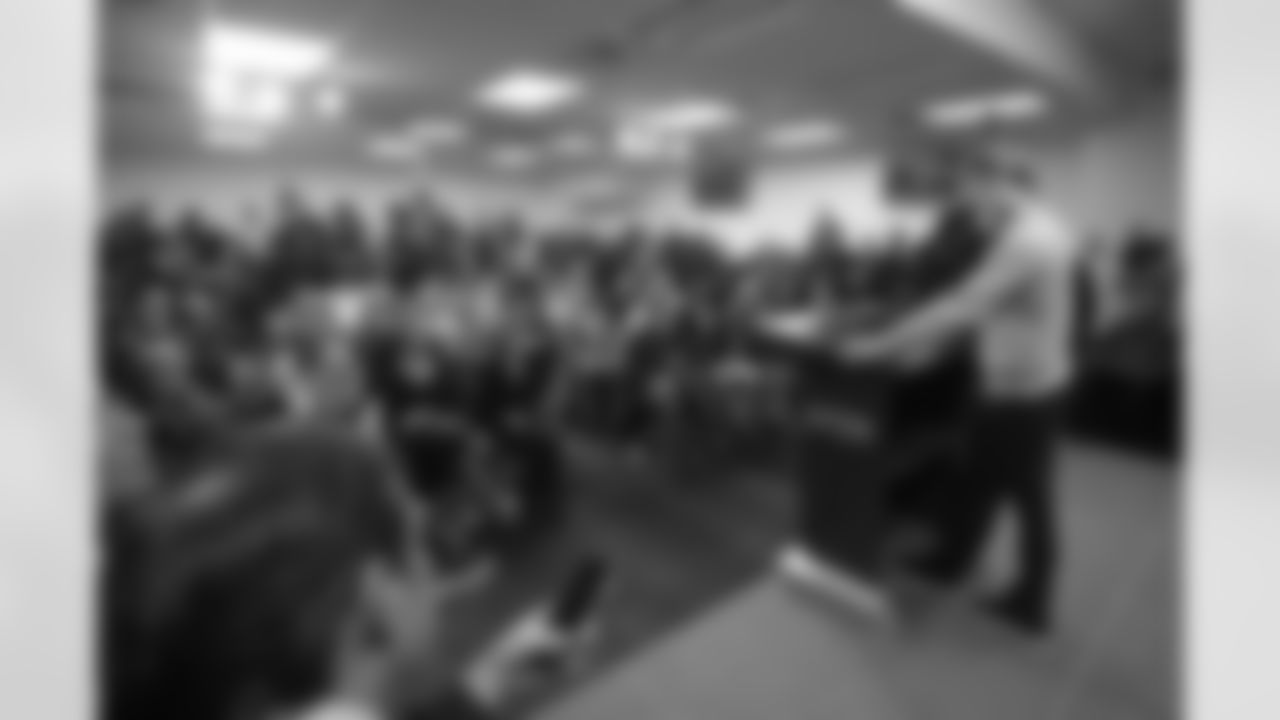
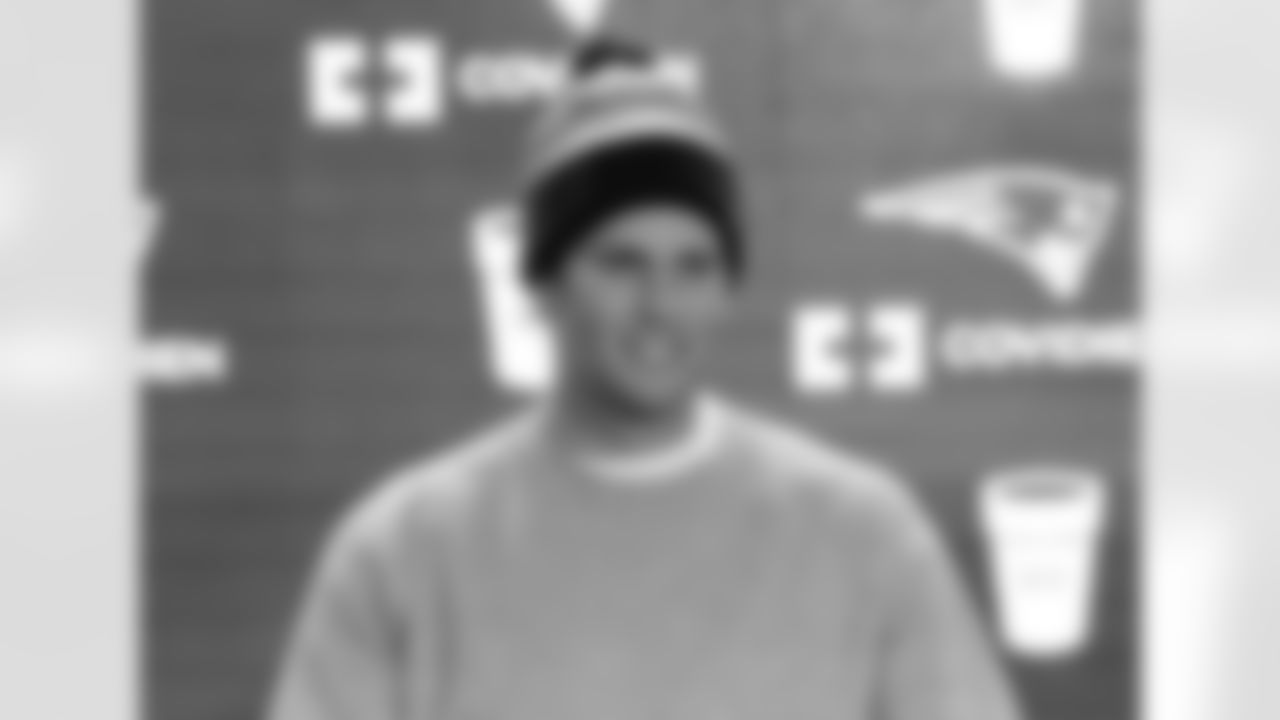
Robert Kraft and classmates Steve Comen and Shirley McDonald visted their former school.
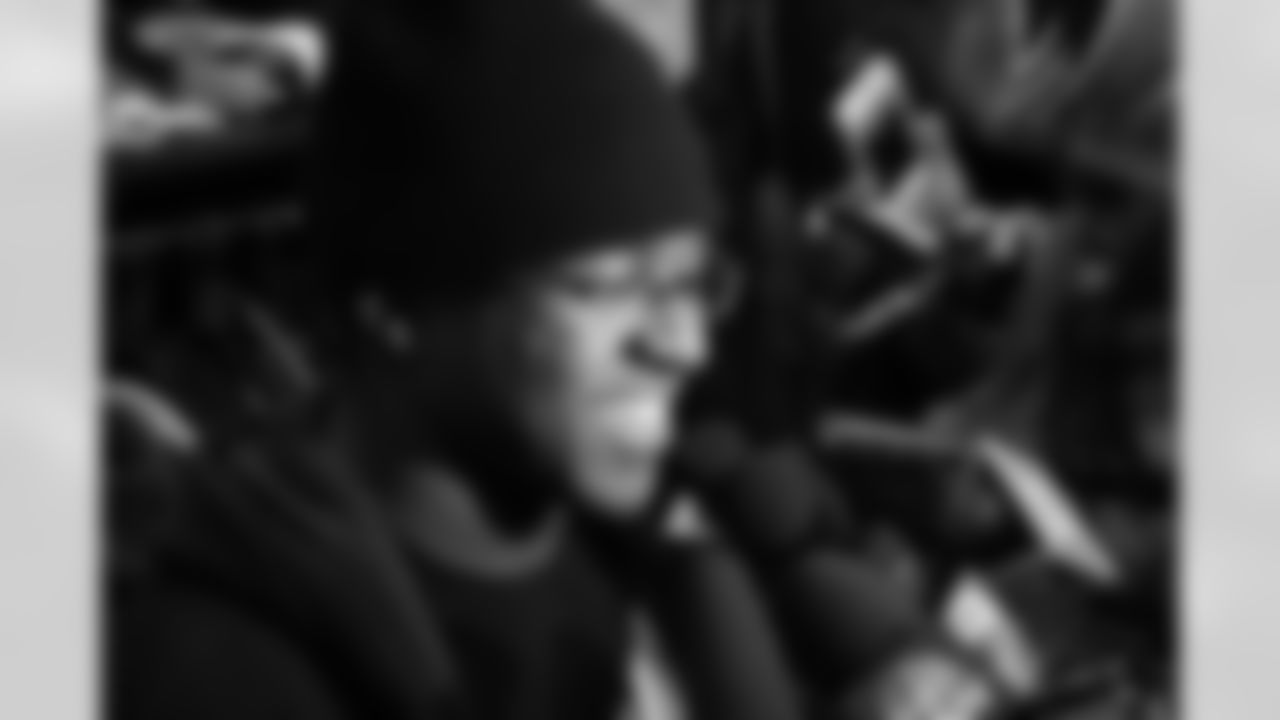
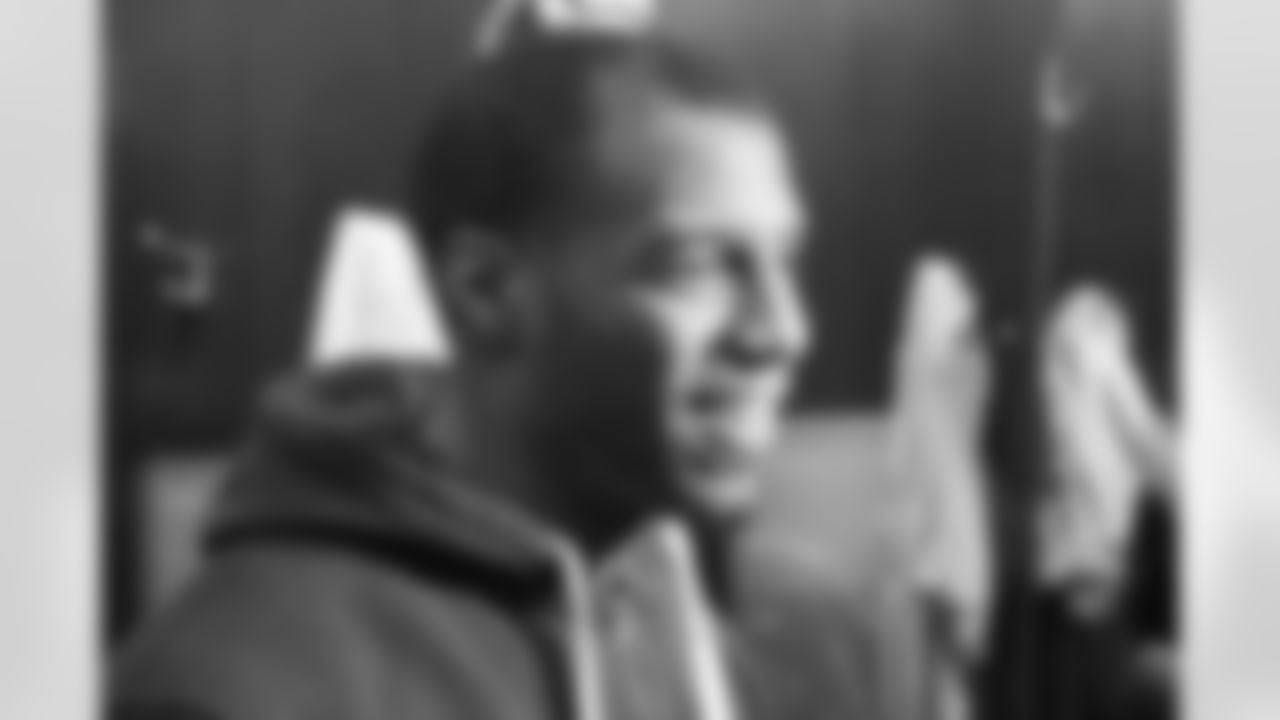
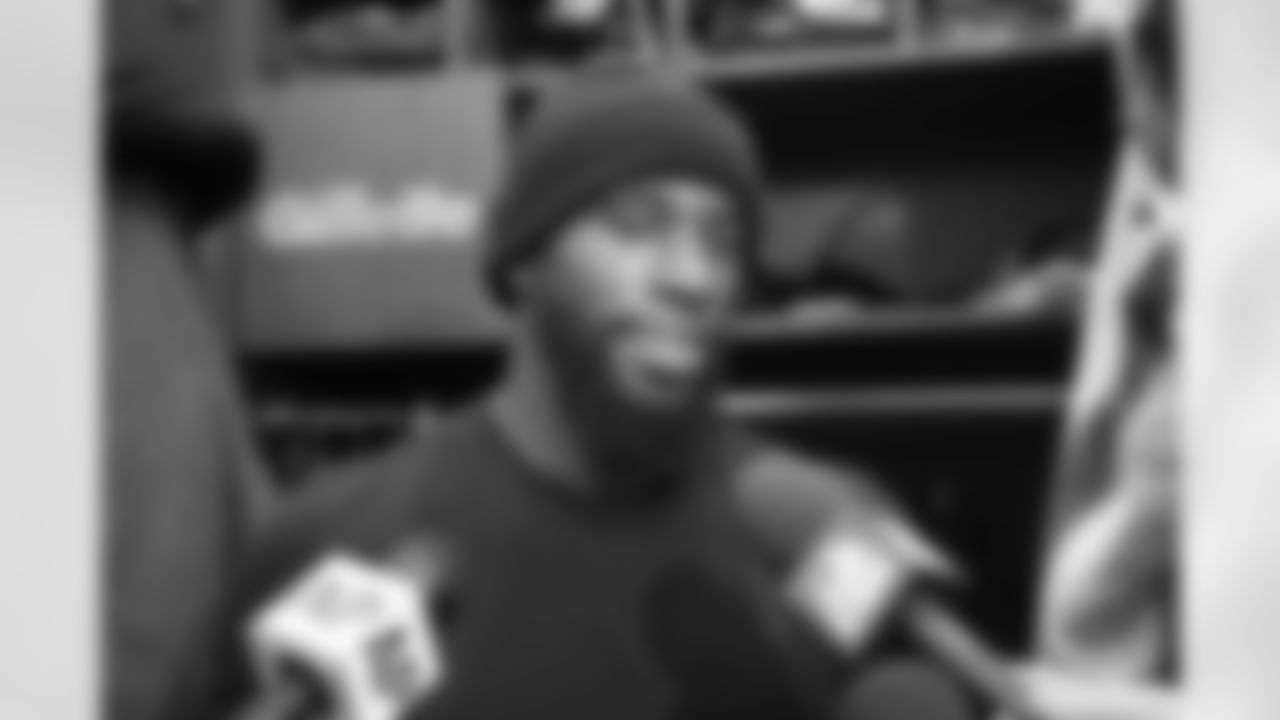
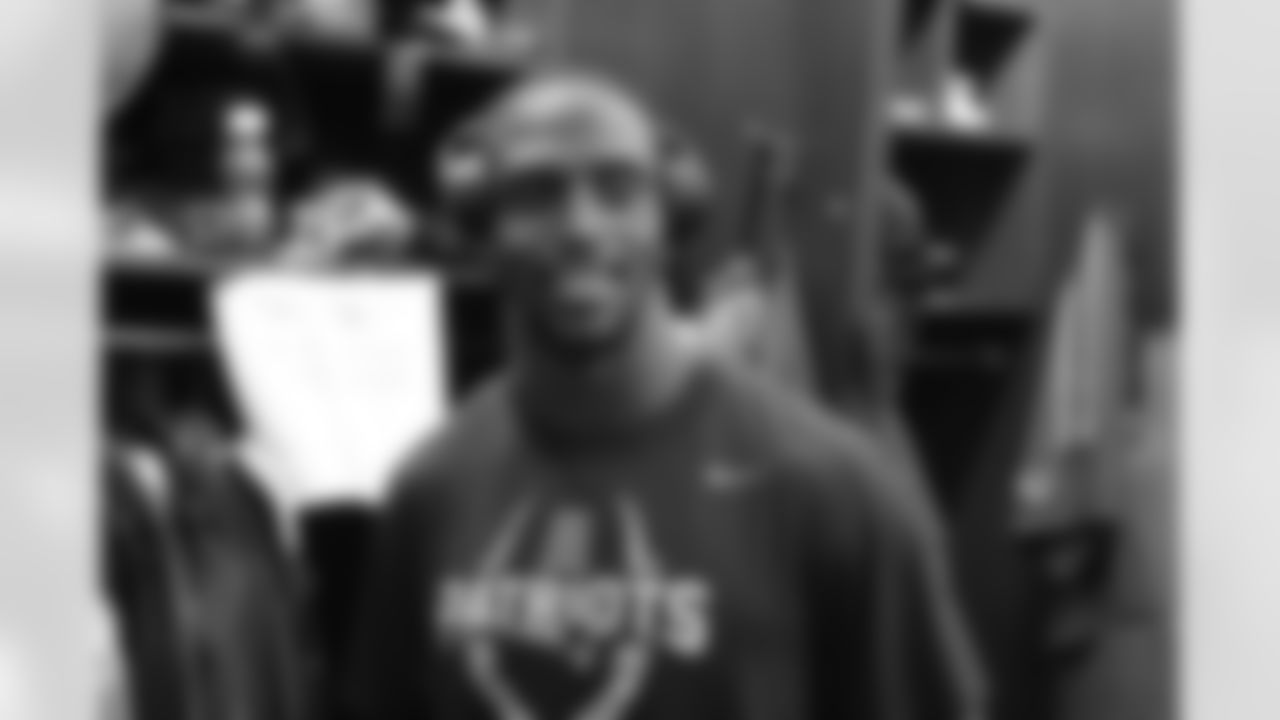
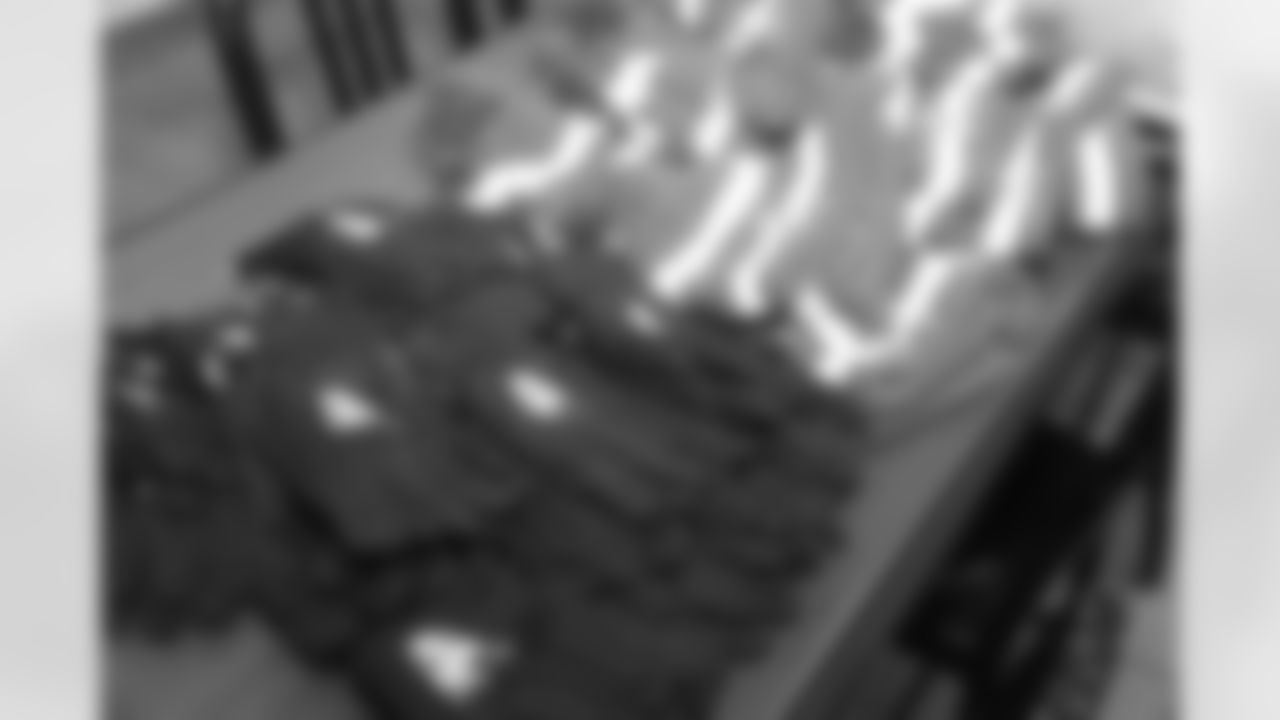

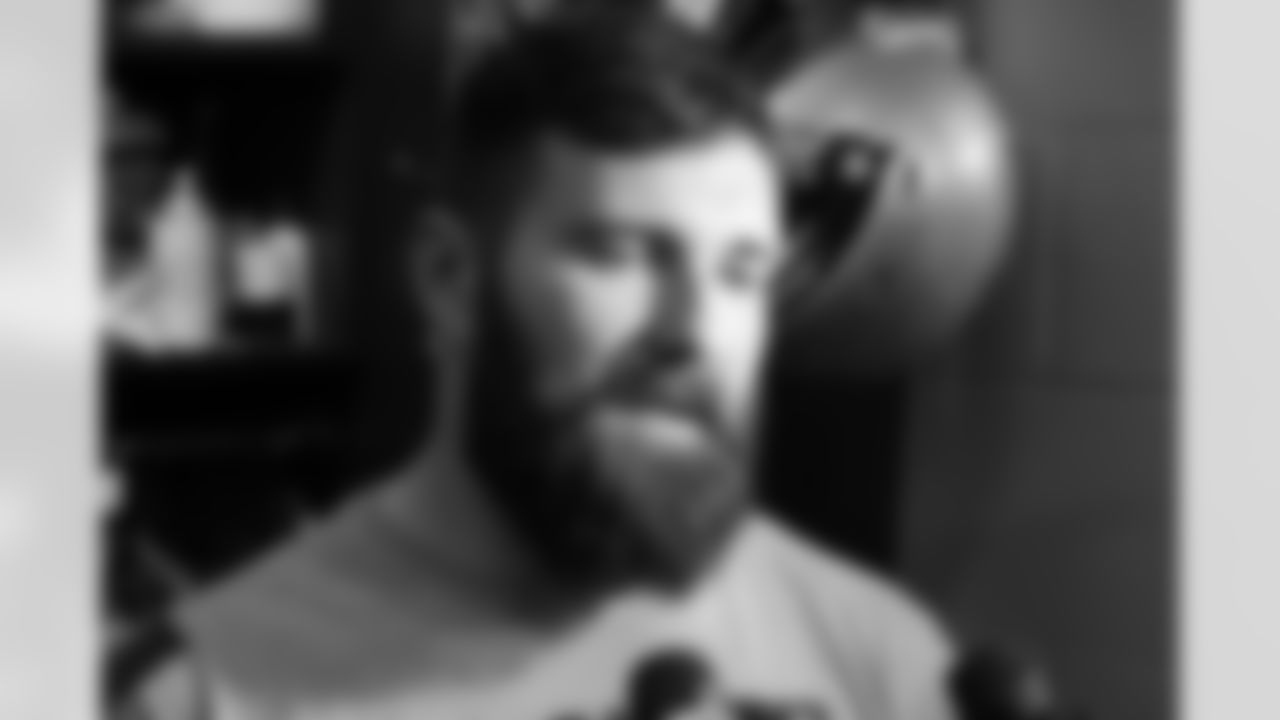
Robert Kraft takes questions from students.
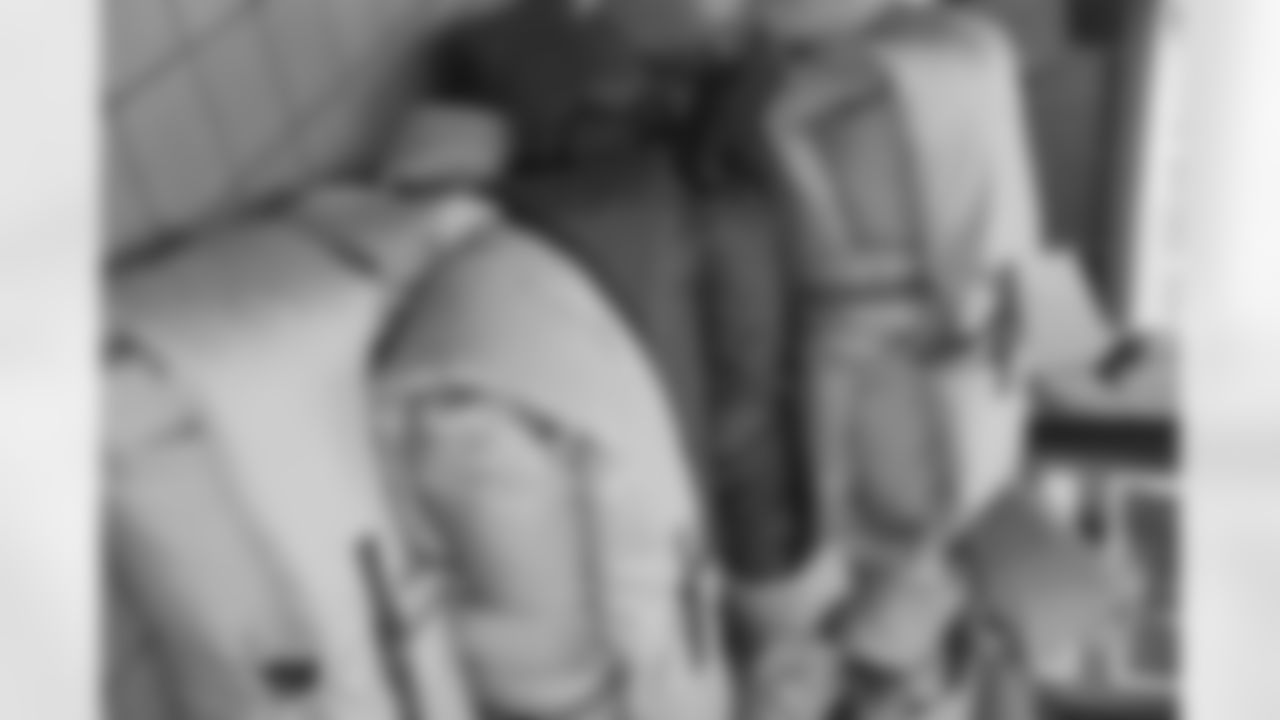
Students at Edward Devotion listen to alumni Robert Kraft speak Wednesday morning.
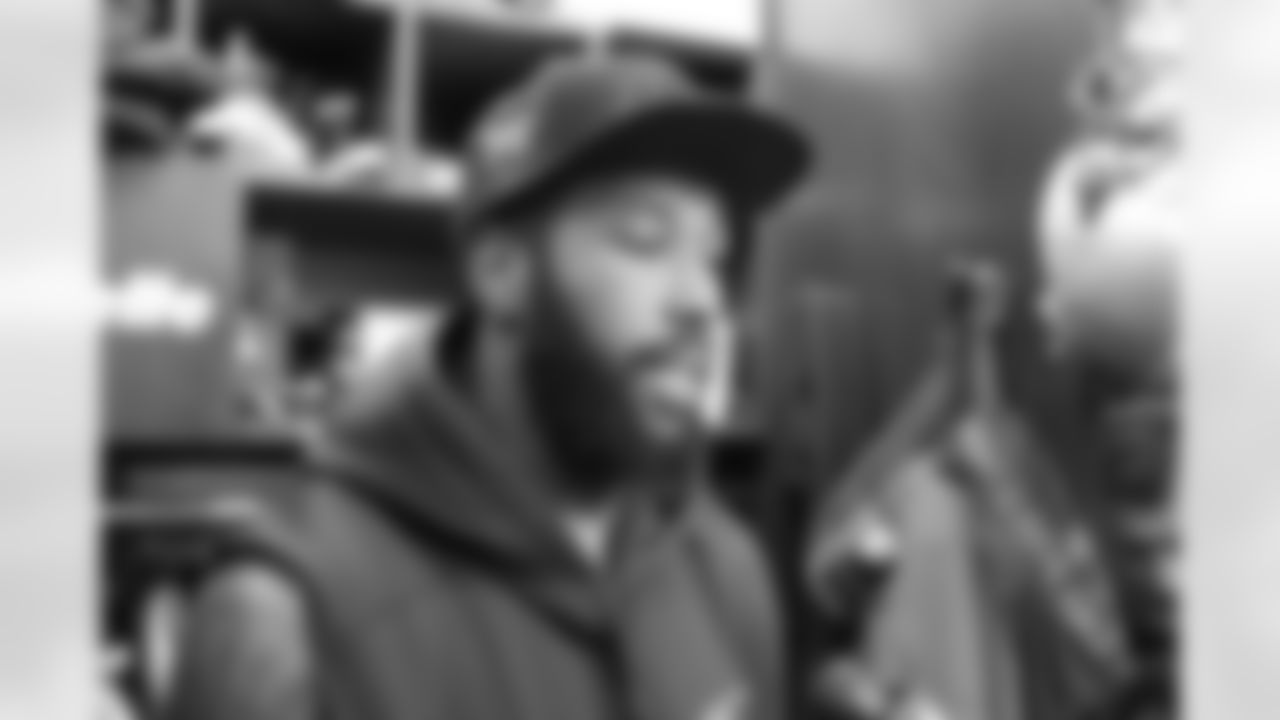
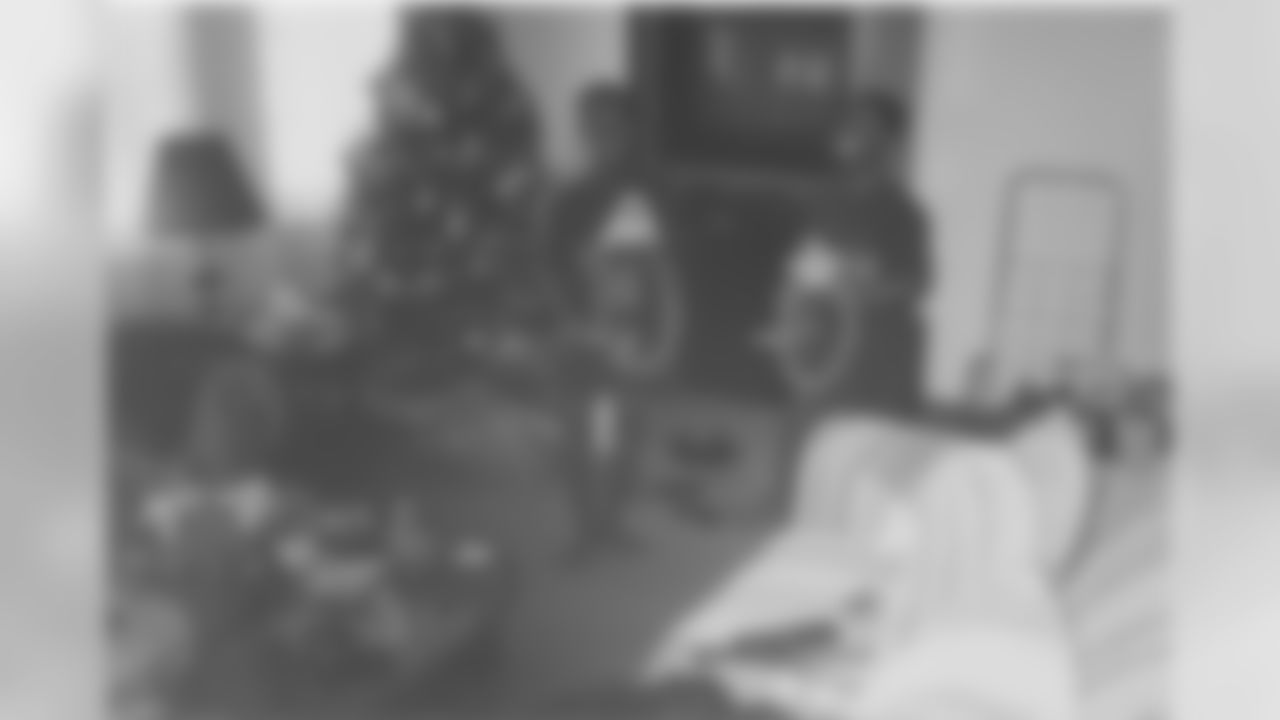

Robert Kraft speaks to children at his former elementary school in Brookline.

Students asked Robert Kraft questions about his time at Edward Devotion School.
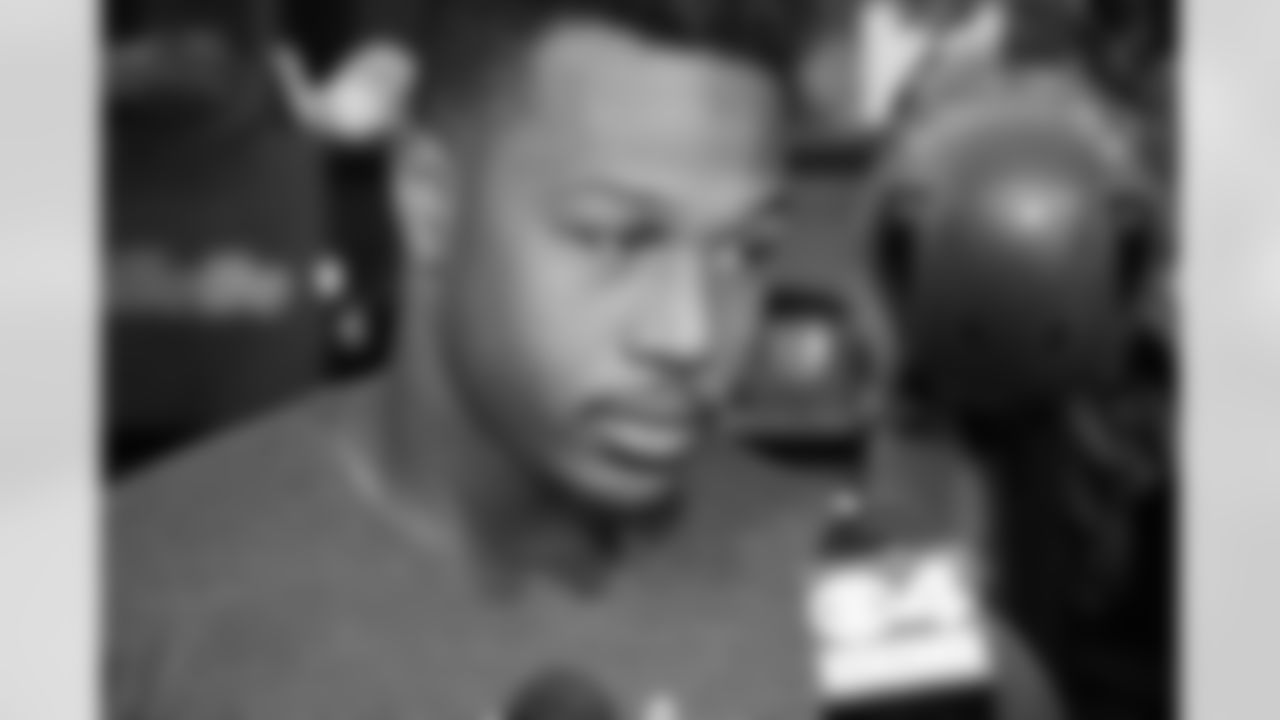
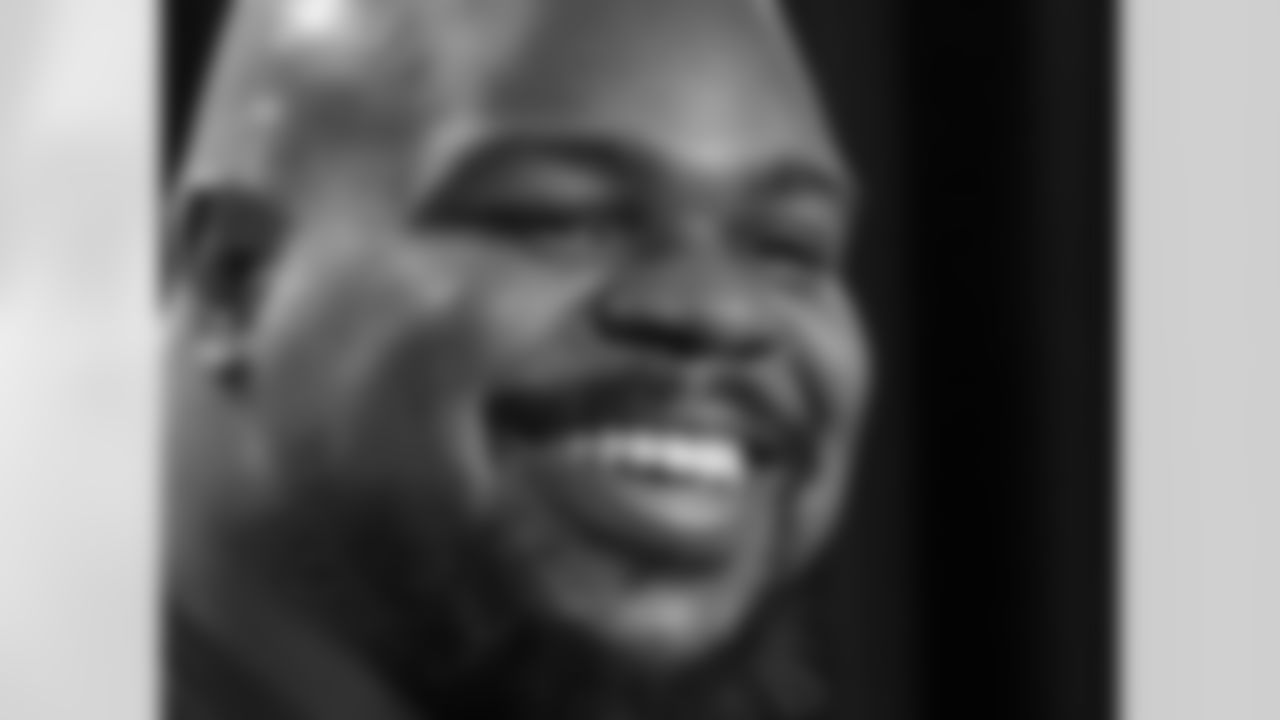
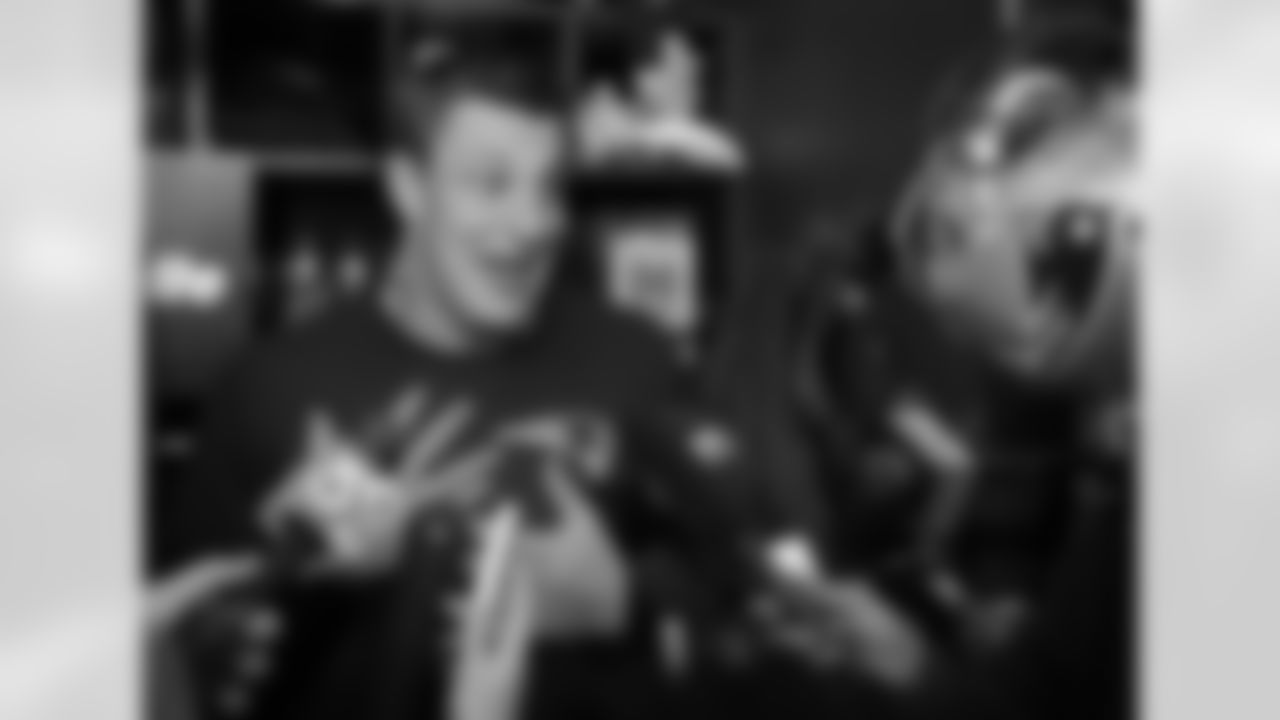
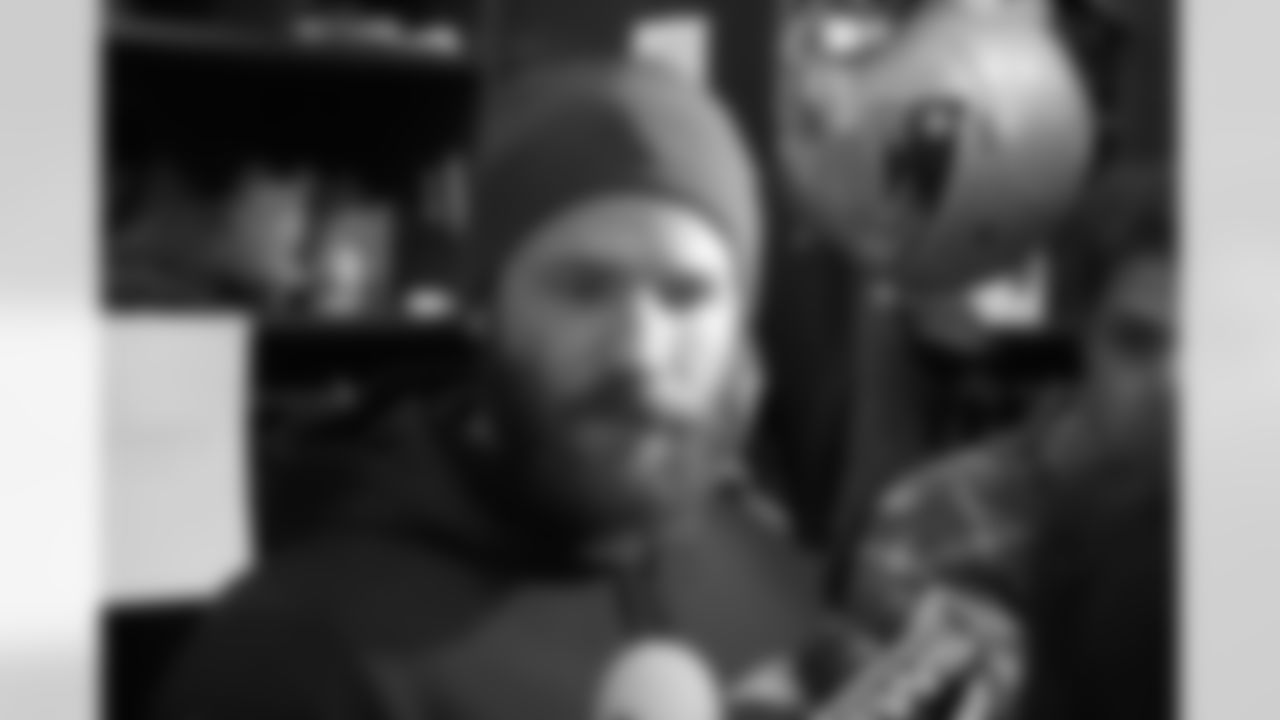
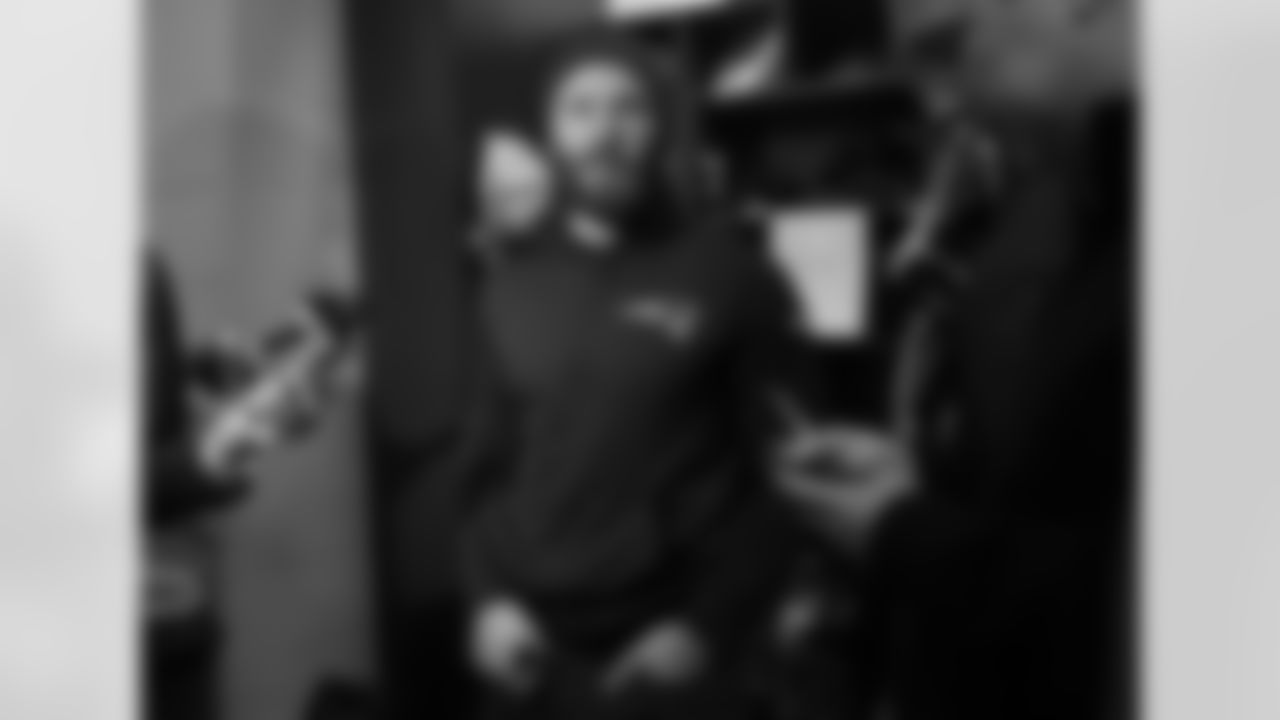

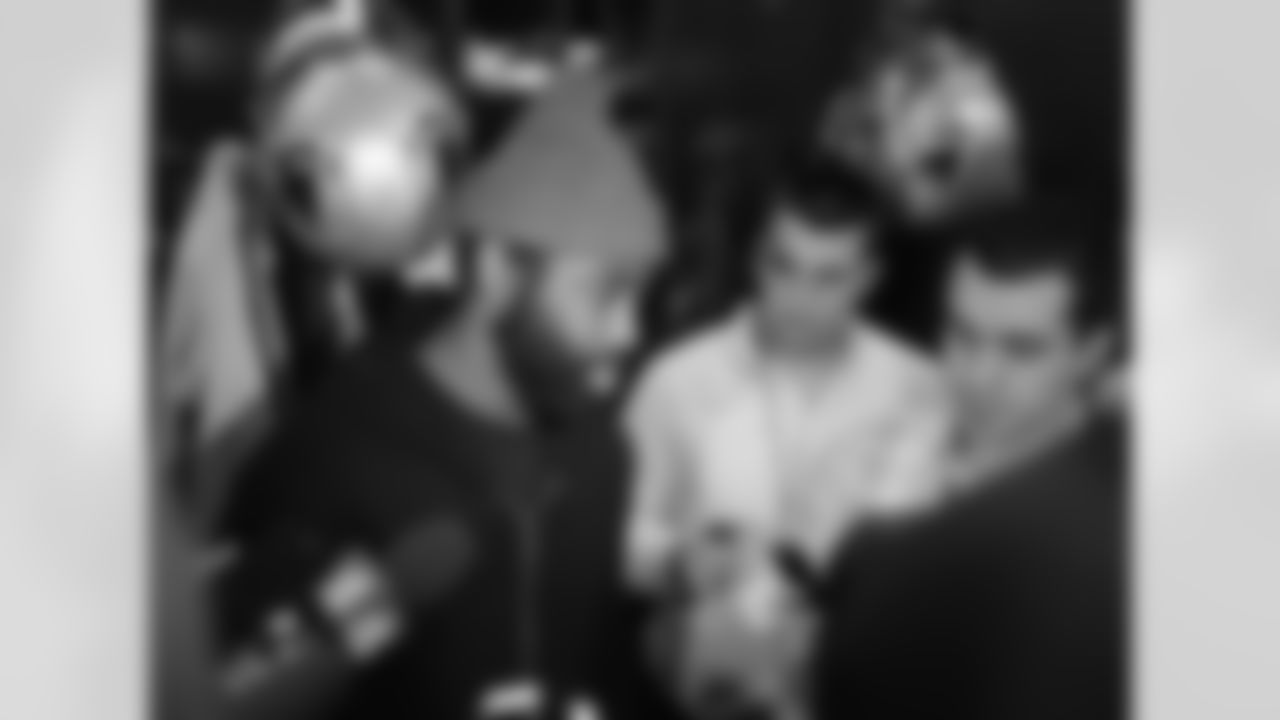
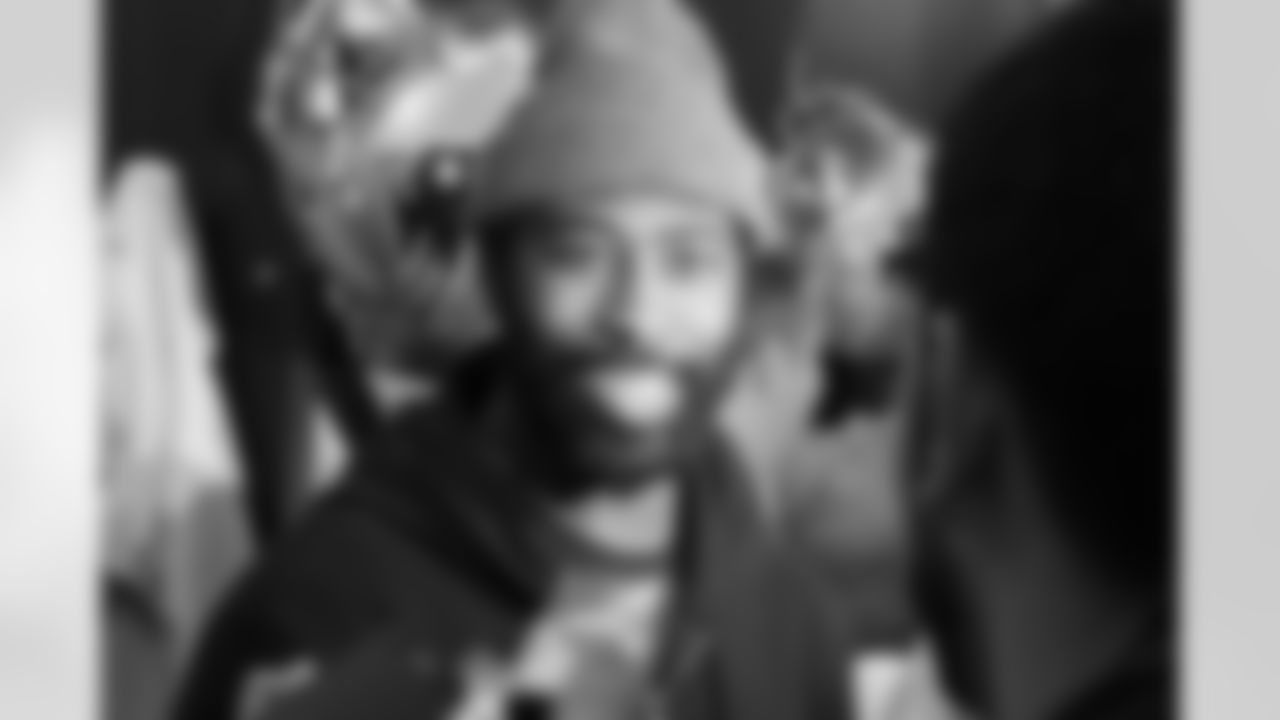
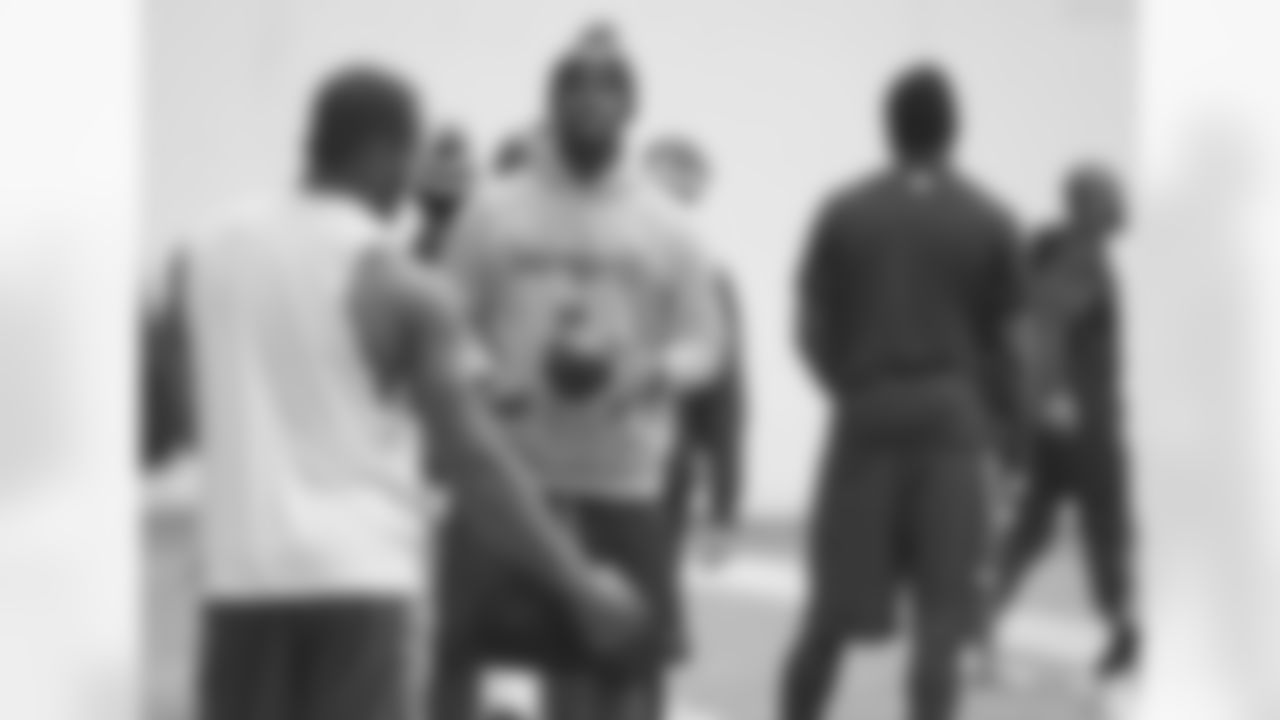
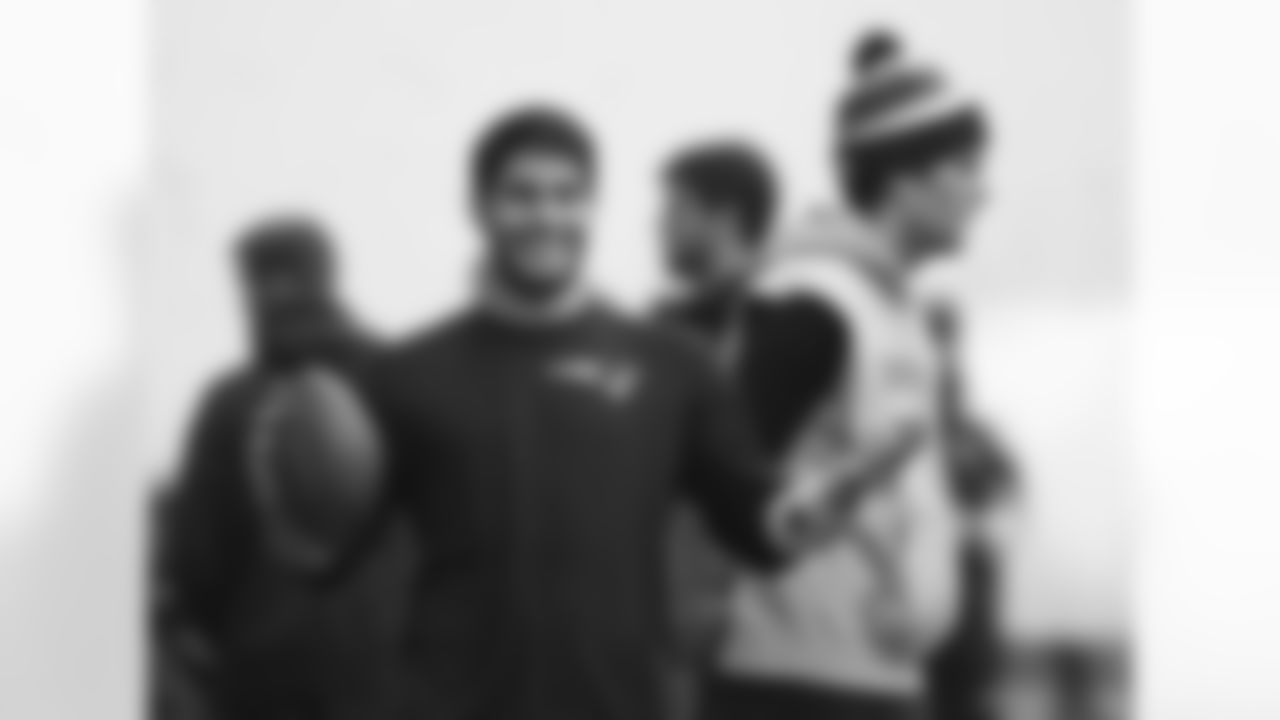

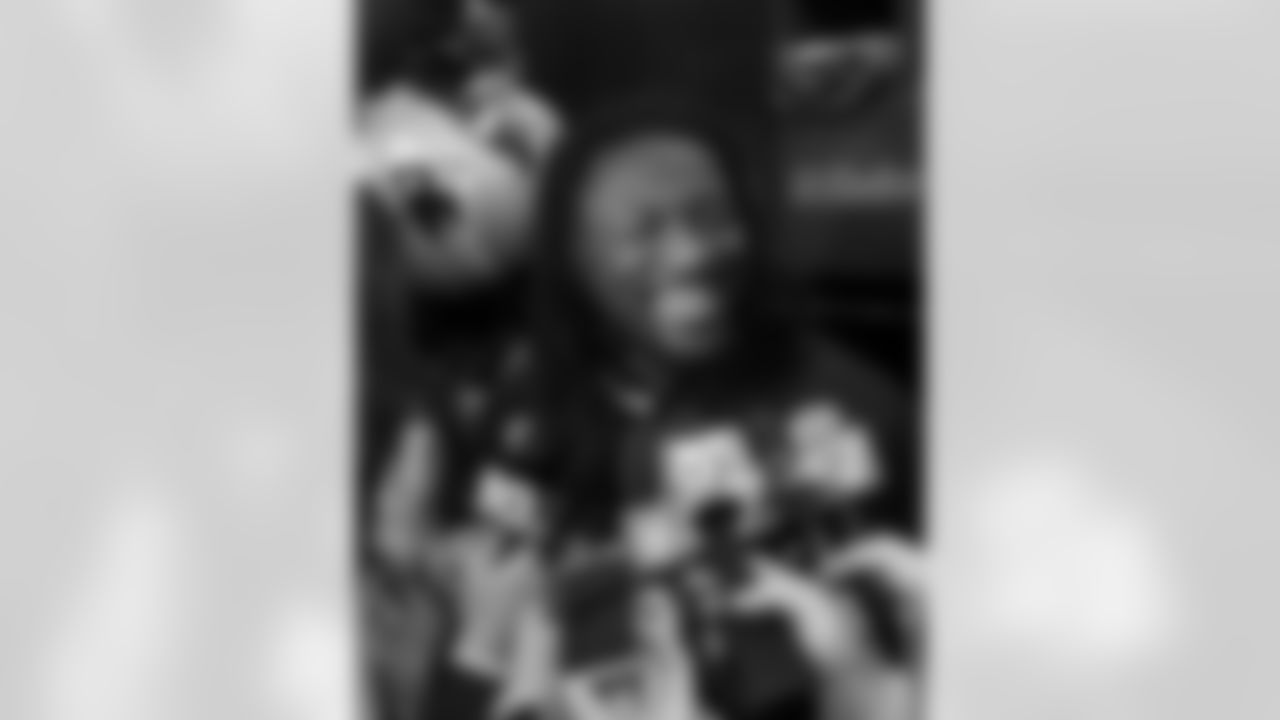
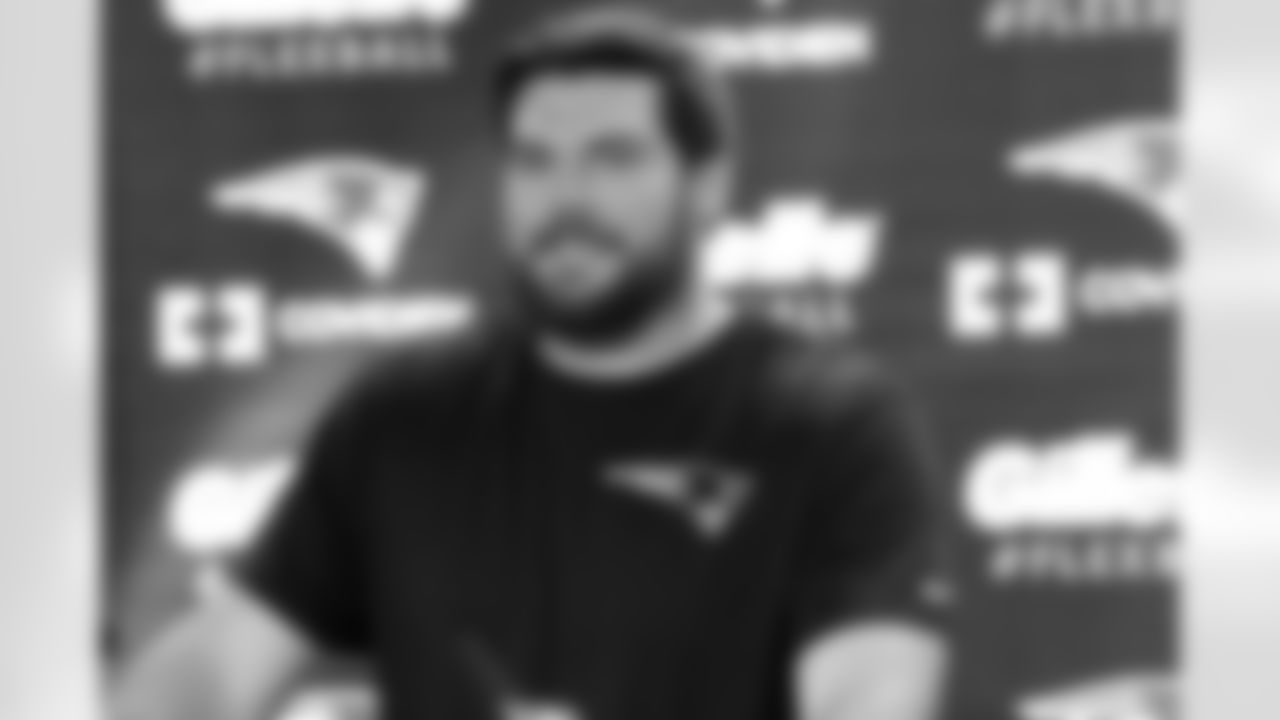
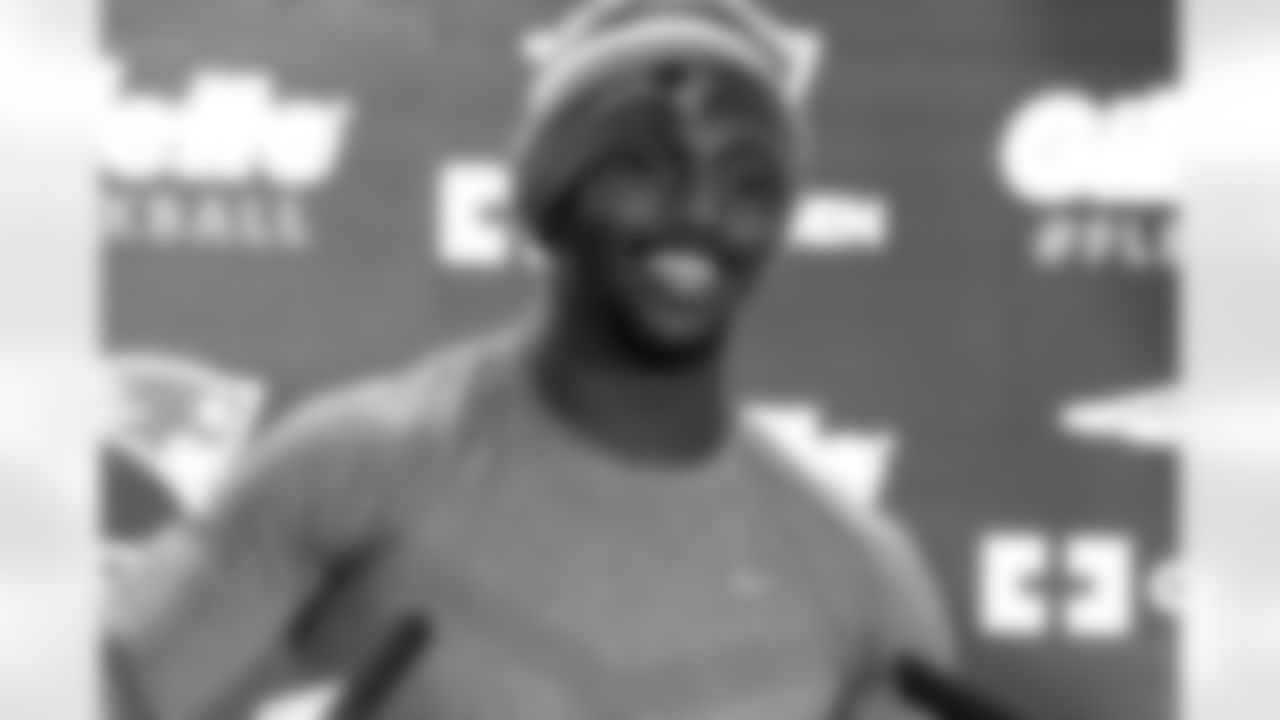
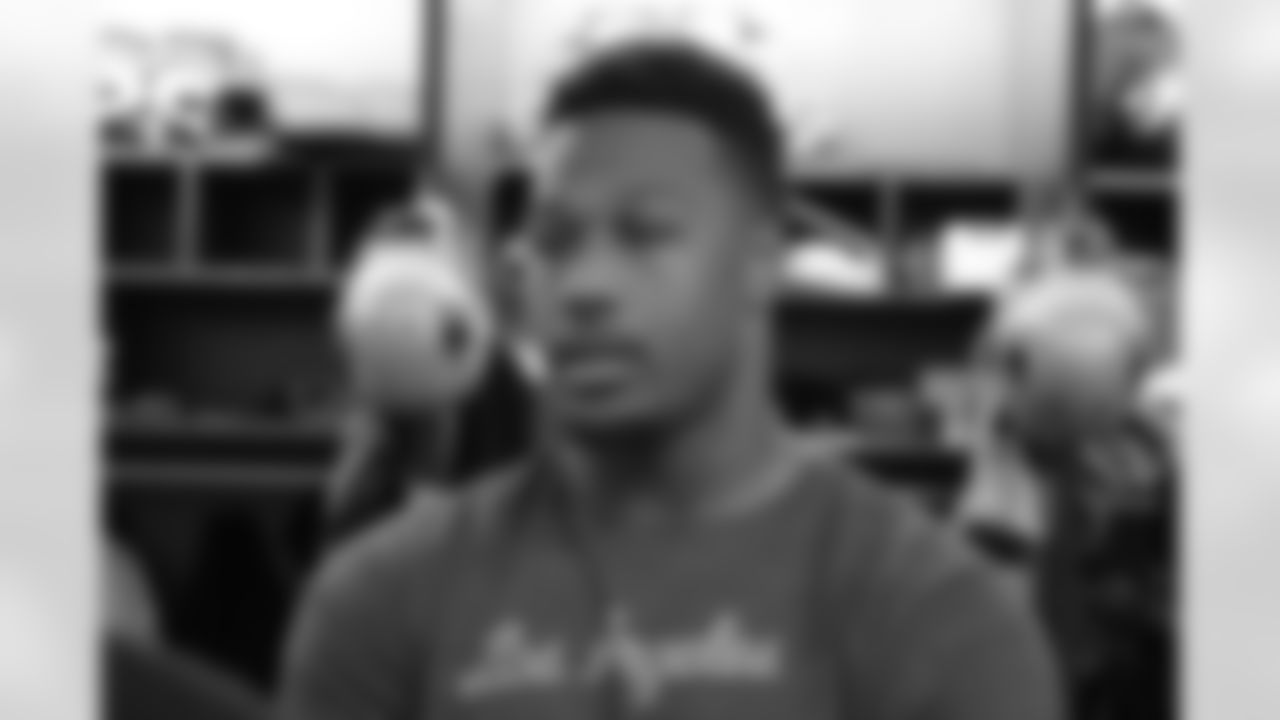
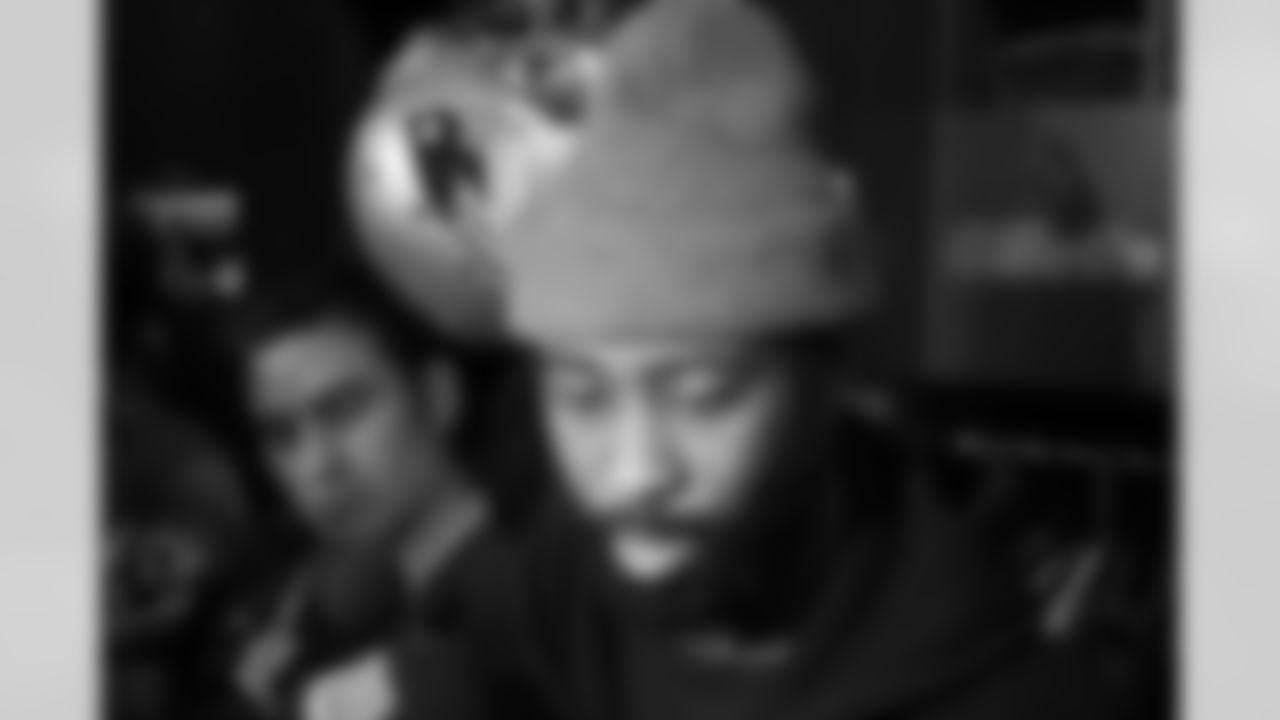
Photo by Dan MacPherson
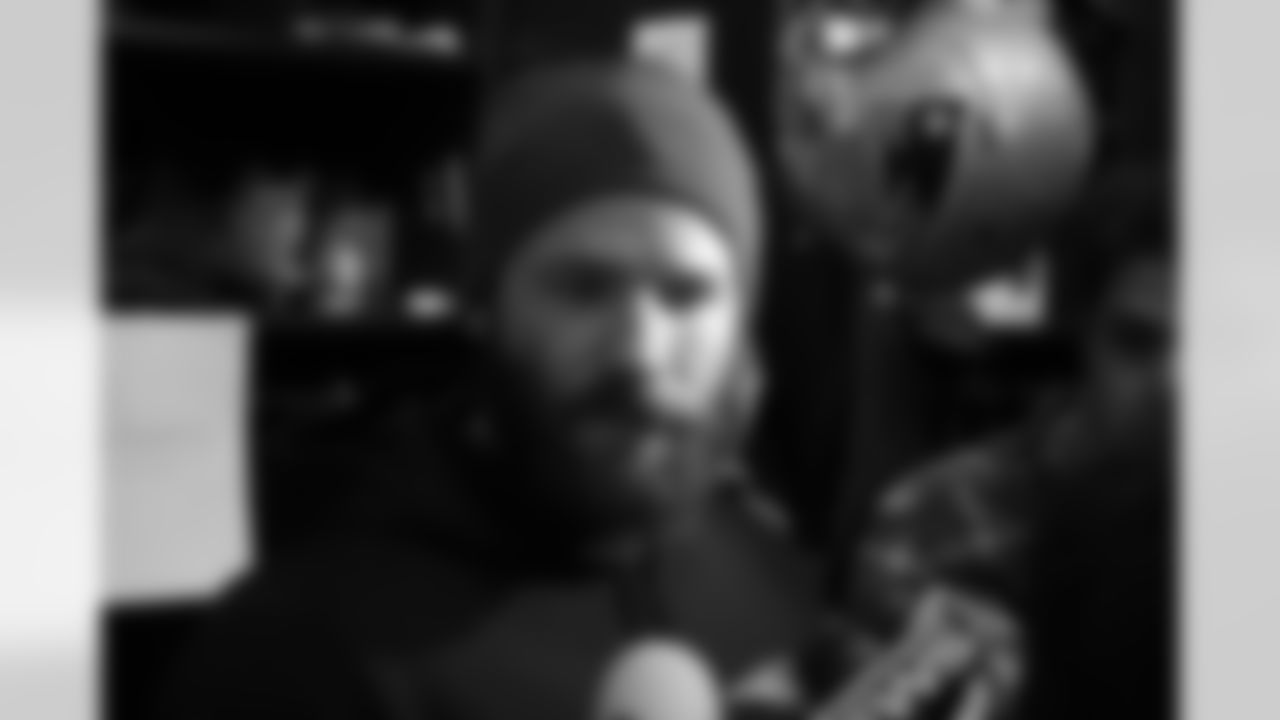
Photo by Dan MacPherson
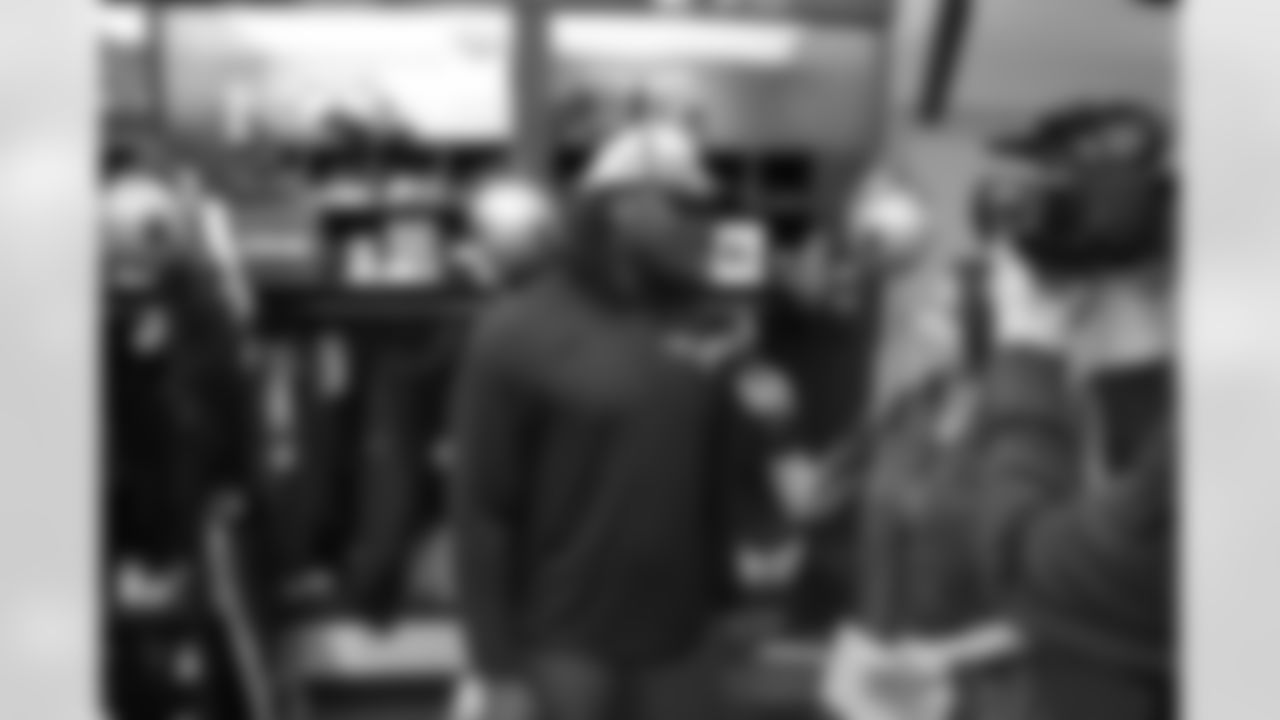
Photo by Dan MacPherson
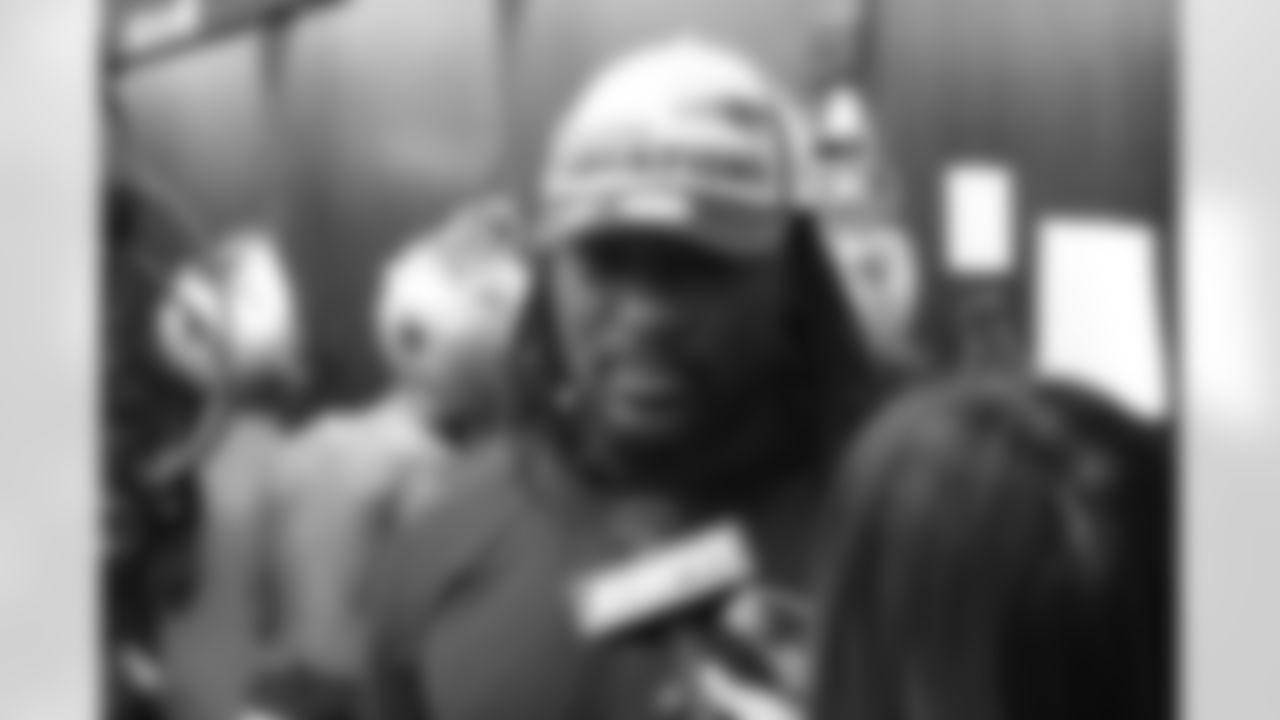
Photo by Dan MacPherson
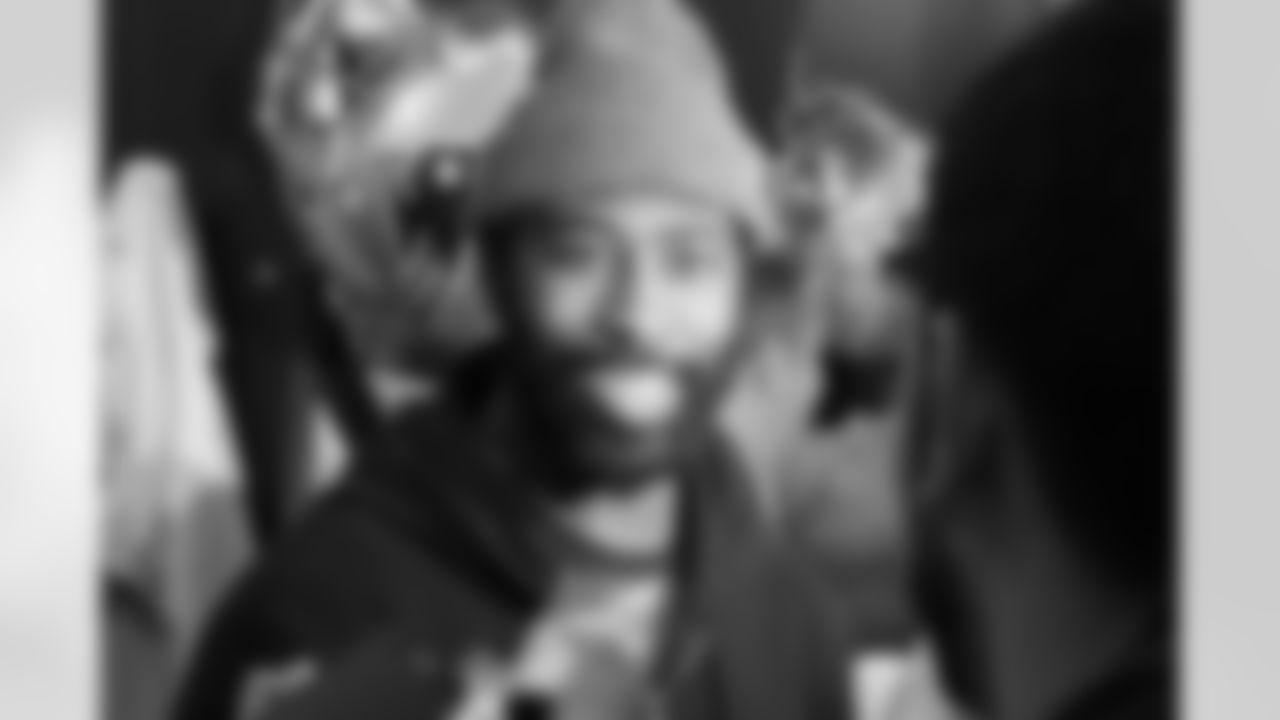
Photo by Dan MacPherson
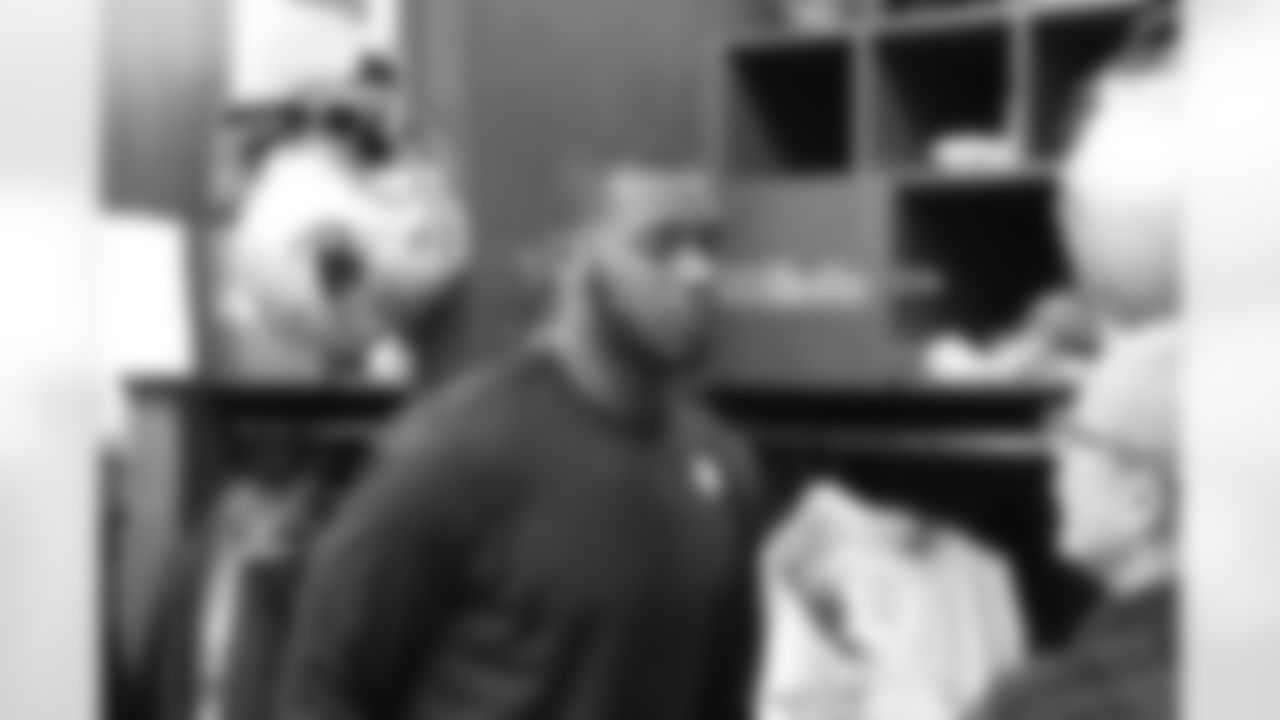
Photo by Dan MacPherson
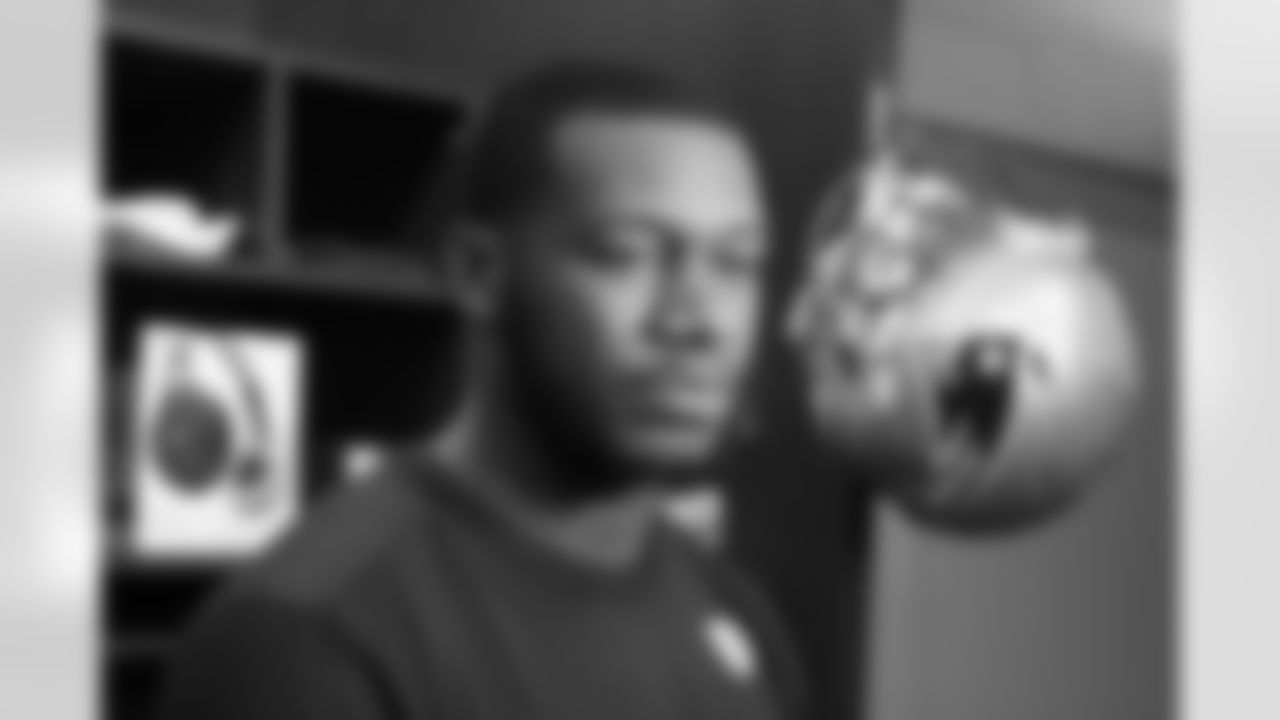
Photo by Dan MacPherson
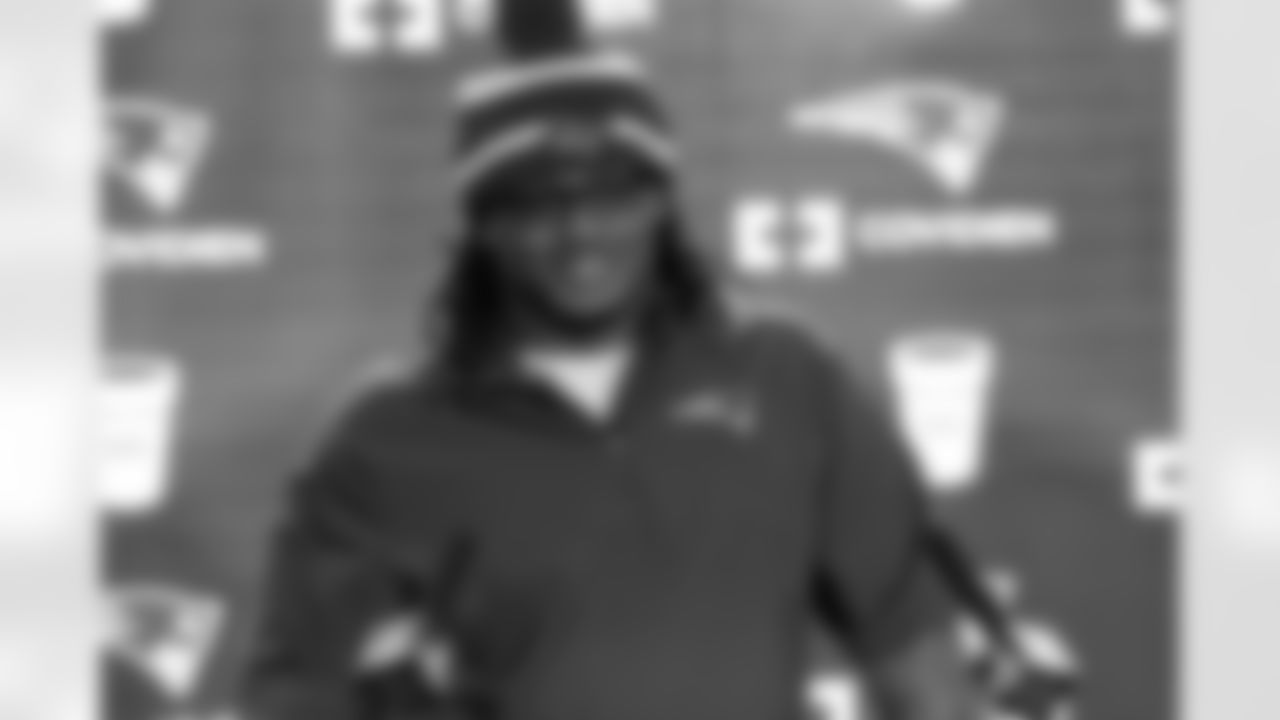
Photo by Dan MacPherson
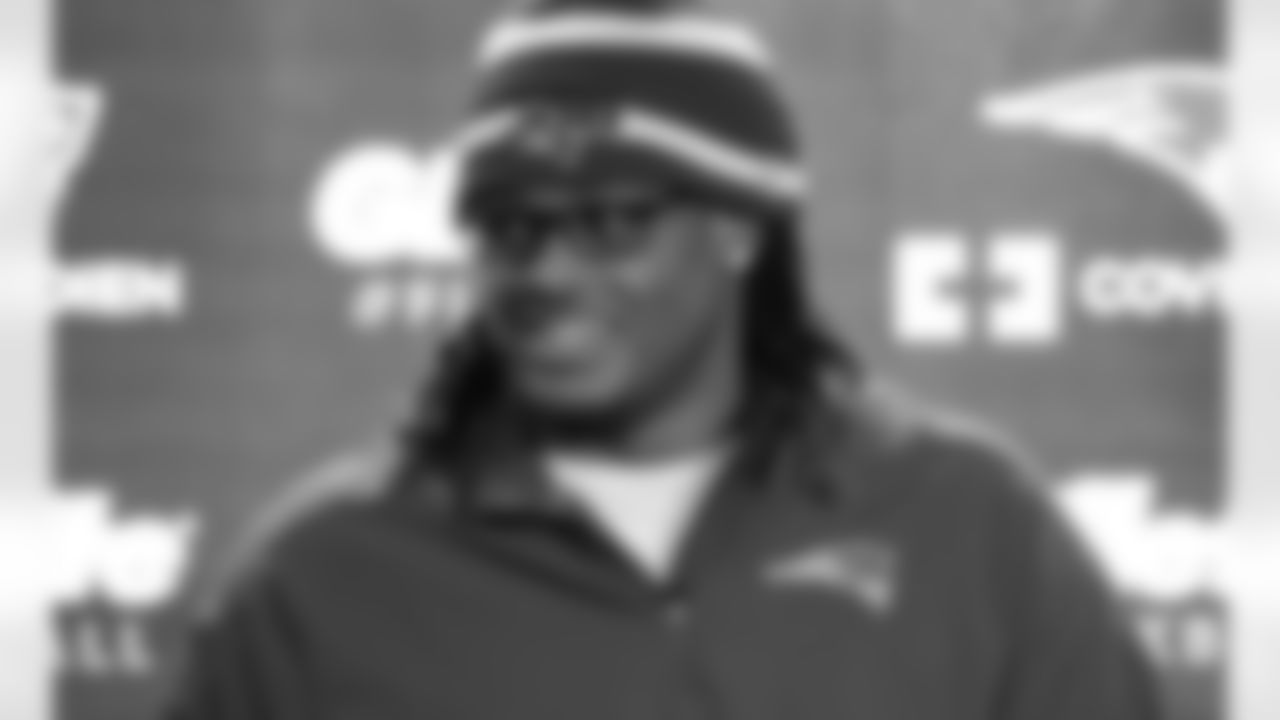
Photo by Dan MacPherson
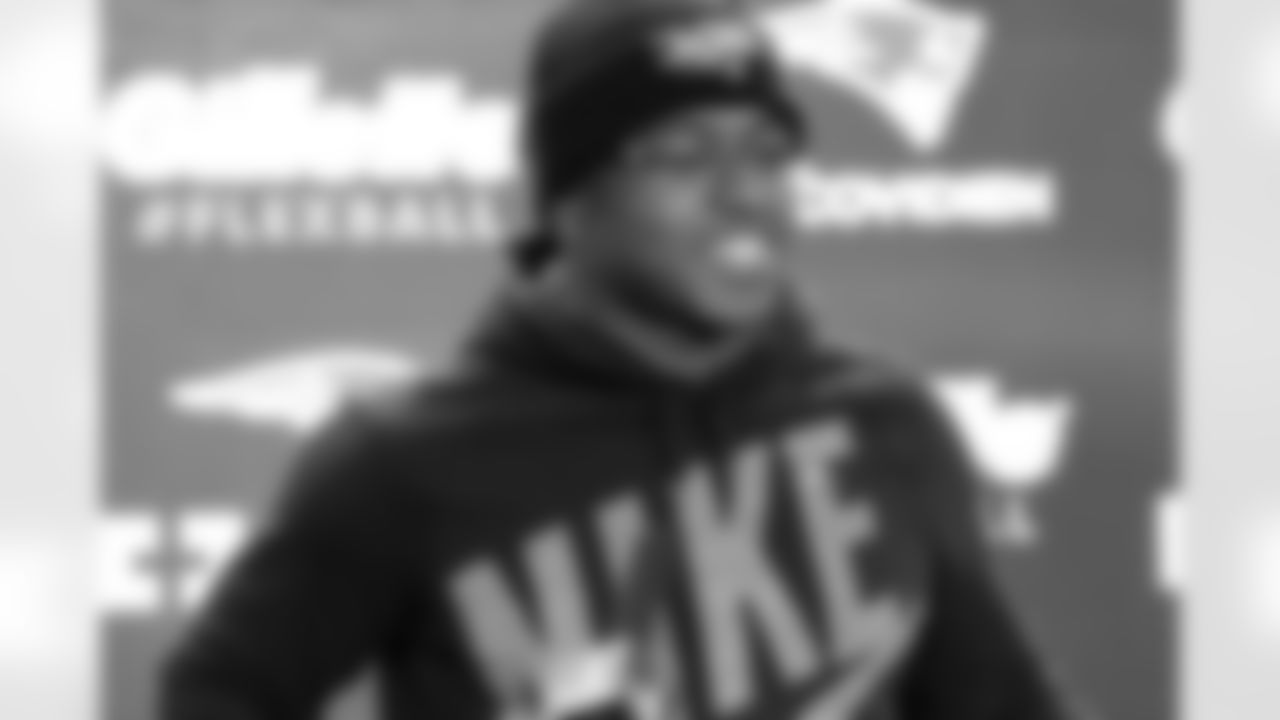
Photo by Dan MacPherson

Photo by Dan MacPherson
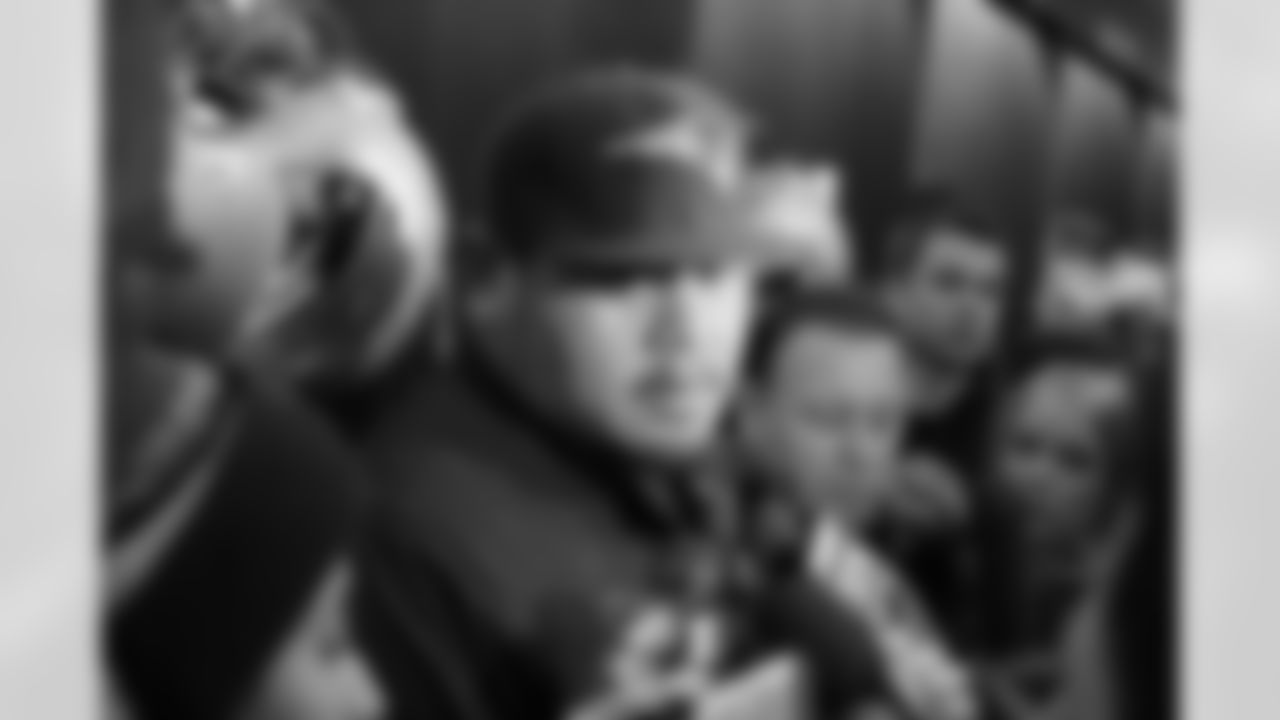
Photo by Dan MacPherson

Photo by Dan MacPherson
I feel like this is important because there have been questions raised and I believe now 100 percent that I have personally, and we as an organization, have absolutely followed every rule to the letter. I just feel that on behalf of everyone in the organization, everyone that's involved in this organization, that we need to say something.
I've talked to and gathered a lot of information from members of our staff, I have talked to other people familiar with this subject in other organizations and we have performed an internal study of the process and I think there are certainly other things that I can do and there's maybe other research that can be done, but I say at this time, I definitely have enough information to share with you. So, based on the events of today, I feel like now's the time to do it, rather than wait. I know this is kind of an impromptu thing, but that's just the way it worked out.
First of all, let me start with the process. As Tom [Brady] explained on Thursday, the most important part of the football for the quarterback is the feel of the football. I don't think there's any question about that. The exterior feel of the football is not only critical, but it's also very easily identifiable. When I feel a football, I can feel a difference between slippery and tacky. I can feel the difference between the texture of the football to what degree it is broken in. If you put five footballs out there, which football is broken in the most, which football is broken in the least, that's easy to identify. That's the essence of the preparation. We prepare our footballs over time and we use them in practice. That preparation process continues right up until the footballs are given to the officials prior to the game. That's when they are finalized, if I could use that word. I would say that in that process I've handled dozens of footballs over the past week. The texture of the footballs is very easy to identify. The pressure of the footballs is a whole different story. It's much more difficult to feel or identify. So, the focus of our pregame preparation for the footballs is based on texture and feel. I think Tom went into that extensively on Thursday and he obviously could go through it a lot better than I can because he's the one that touched them. But that's the heart of the process.
We simulated a game day situation in terms of the preparation of the football and where the footballs were at various points in time during the day, or night, as the case was Sunday. I would say that our preparation process for the footballs is what we do. I can't speak for anybody else. It's what we do. That process, we have found raises the PSI [pounds per square inch] approximately one pound. That process of creating a tackiness, a texture – the right feel, whatever that feel is, it's just a sensation for the quarterback, what's the right feel. That process elevates the PSI approximately one pound based on what our study showed, which was multiple footballs, multiple examples in the process, as we would do for a game. It's not one football.
When the footballs are delivered to the officials locker room, the officials were asked to inflate them to 12.5 PSI. What exactly they did, I don't know. But for the purposes of our study, that's what we did. We set them at 12.5. That's at the discretion of the official, though. Regardless of what we ask for, it's the official's discretion to put them where he wants. Again, that's done in a controlled climate. The footballs are prepared in our locker room, they're delivered to the officials locker room, which is a controlled environment. Whatever we have here is what we have there. When the footballs go out on to the field into game conditions, whatever those conditions are, whether it's hot and humid, whether it's cold and damp, whether it's cold and dry, whether it's whatever it is, that's where the footballs are played with, and that's where the measurements would be different than what they are, possibly different, than what they are in a controlled environment. That's what we found.
We found that once the footballs were on the field over an extended period of time, in other words, they were adjusted to the climatic conditions and also the fact that the footballs reached an equilibrium without the rubbing process, that after that had run its course and the footballs had reached an equilibrium, that they were down approximately one-and-a-half pounds per square inch. When we brought the footballs back in after that process and re-tested them in a controlled environment as we have here, then those measurements rose approximately one half pound per square inch. So the net of one and a half, back to a half, is approximately one pound per square inch, to one and a half.
Now, we all know that air pressure is a function of the atmospheric conditions. It's a function of that. If there's activity in the football relative to the rubbing process, I think that explains why when we gave them to the officials and the officials put it at, let's say 12.5, if that's in fact what they did, that once the football reached its equilibrium state, it probably was closer to 11.5. But again, that's just our measurements. We can't speak specifically to what happened because we have no way of touching the footballs other than once the officials have them we don't touch them except for when we play with them in the game. But it's similar to the concept of when you get into your car and the light comes on and it says, 'Low tire pressure,' because the car has been sitting in the driveway outside overnight and you start it up and you start driving it and the light goes off. It's a similar concept to that.
The atmospheric conditions, as well as the true equilibrium of the football is critical to the measurement. At no time were any of our footballs prepared anywhere other than in the locker room or in an area very close to that – never in a heated room or heated condition. That has absolutely never taken place to anyone's knowledge or anyone's recollection. That just didn't happen.
When you measure a football, there are a number of different issues that come up. Number one, gauges. There are multiple types of gauges. The accuracy of one gauge relative to another, there's variance there. We're talking about air pressure. There's some variance there. Clearly all footballs are different. So, footballs that come out of a similar pack, a similar box, a similar preparation, each football has its own unique, individual characteristics because it's not a man-made piece of equipment. It's an animal skin, it's a bladder, it's stitching, it's laces. Each one has its own unique characteristics. Whatever you do with that football, if you do the same thing with another one, it might be close, but there's a variance between each individual football.
Footballs do not get measured during the game. We have no way of knowing until we went through this exercise, that this is really taking place. When we hand the footballs to the officials, the officials put them at whatever they put them at, but let's just say it's 12.5, that's where they put them, then the air pressure at that point from then on until the end of the game, we have no knowledge of. Honestly, it's never been a concern. What is a concern is the texture of the footballs and again, that's the point that Tom hit on hard on Thursday.
We had our quarterbacks look at a number of footballs. They were unable to differentiate a one-pound per square inch difference in those footballs. They were unable to do it. On a two-pound differential, there was some degree of differentiation, but certainly not a consistent one. A couple ones they could pick out, but they were also wrong on some of the other ones that they had. You're welcome to do that yourself. I can tell you from all the footballs that I've handled over the last week, I can't tell a difference if there's a one-pound difference or half a pound difference in any of the footballs.
Again, anyone who has seen us practice knows that we make it harder, not easier, to handle the football. Our players train in conditions that a lot of people would recommend that we not drive in. That's what they do. They're a physically and mentally tough team that works hard, that trains hard, that prepares hard and have met every challenge that I put in front of them. And I know that because I work them every day.
Team photographer, Keith Nordstrom, offers his best photos from the Patriots-Colts AFC Championship game at Gillette Stadium on Sunday, January 18, 2015.
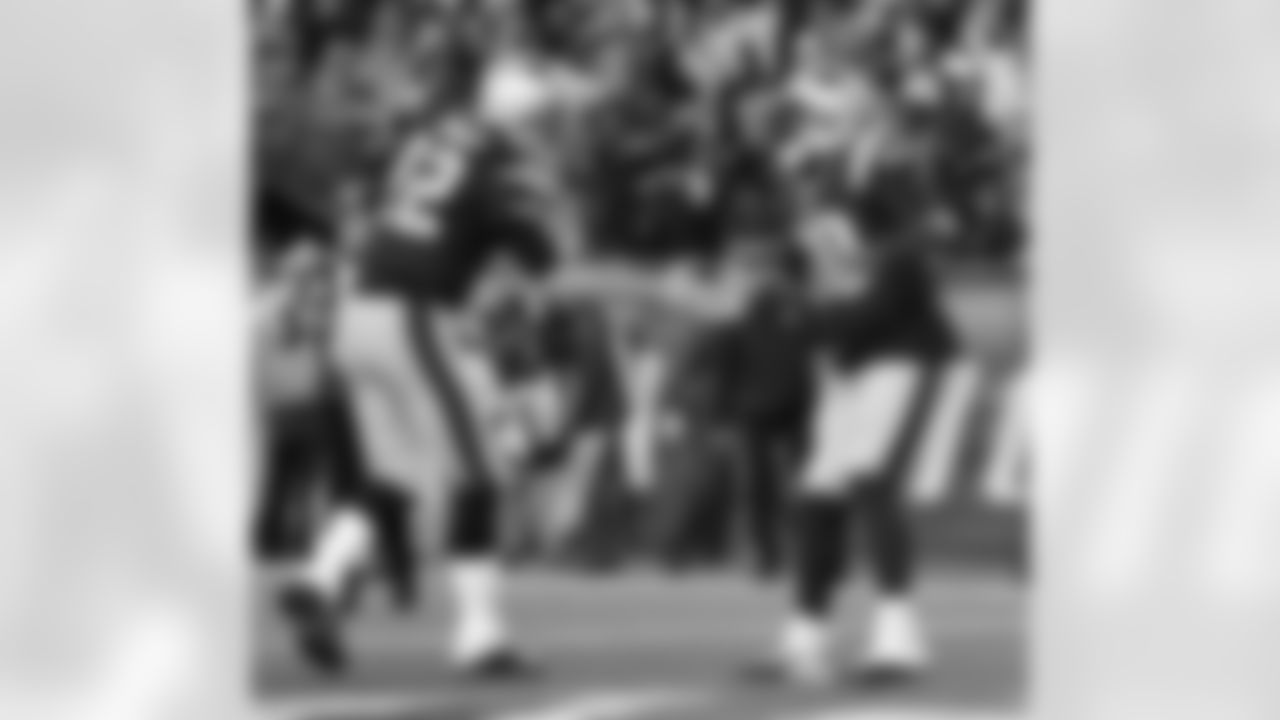
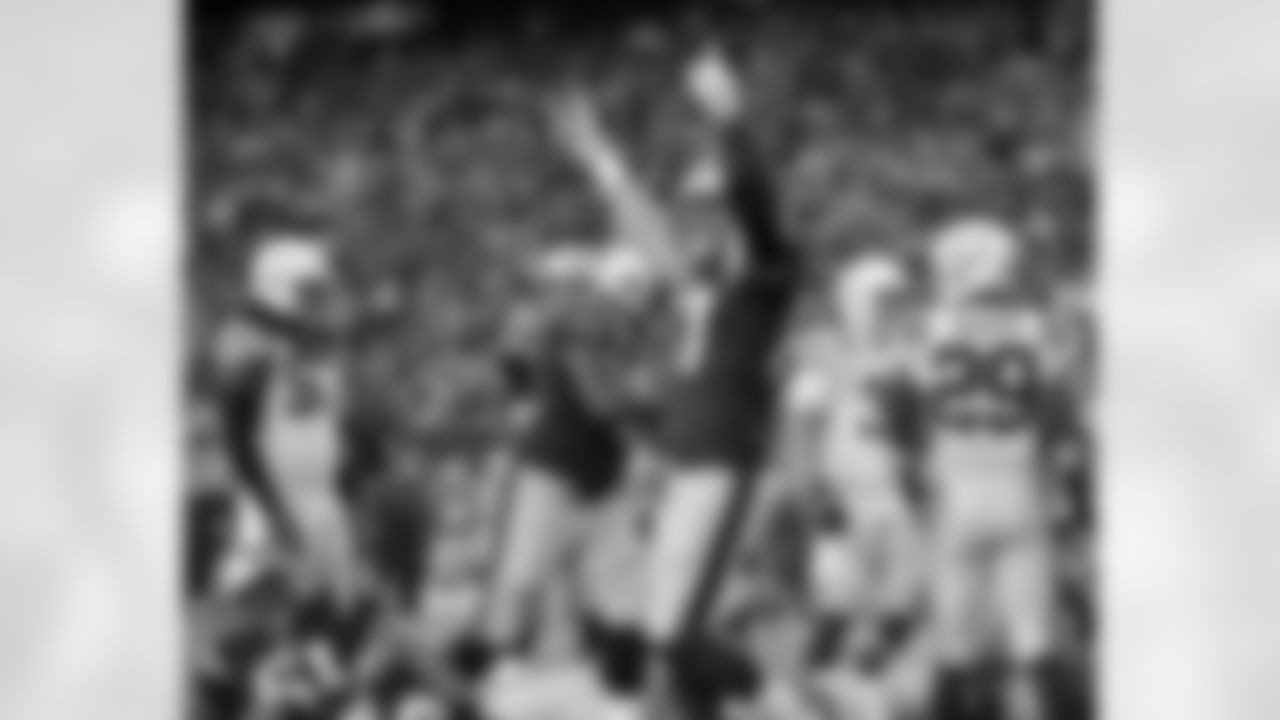
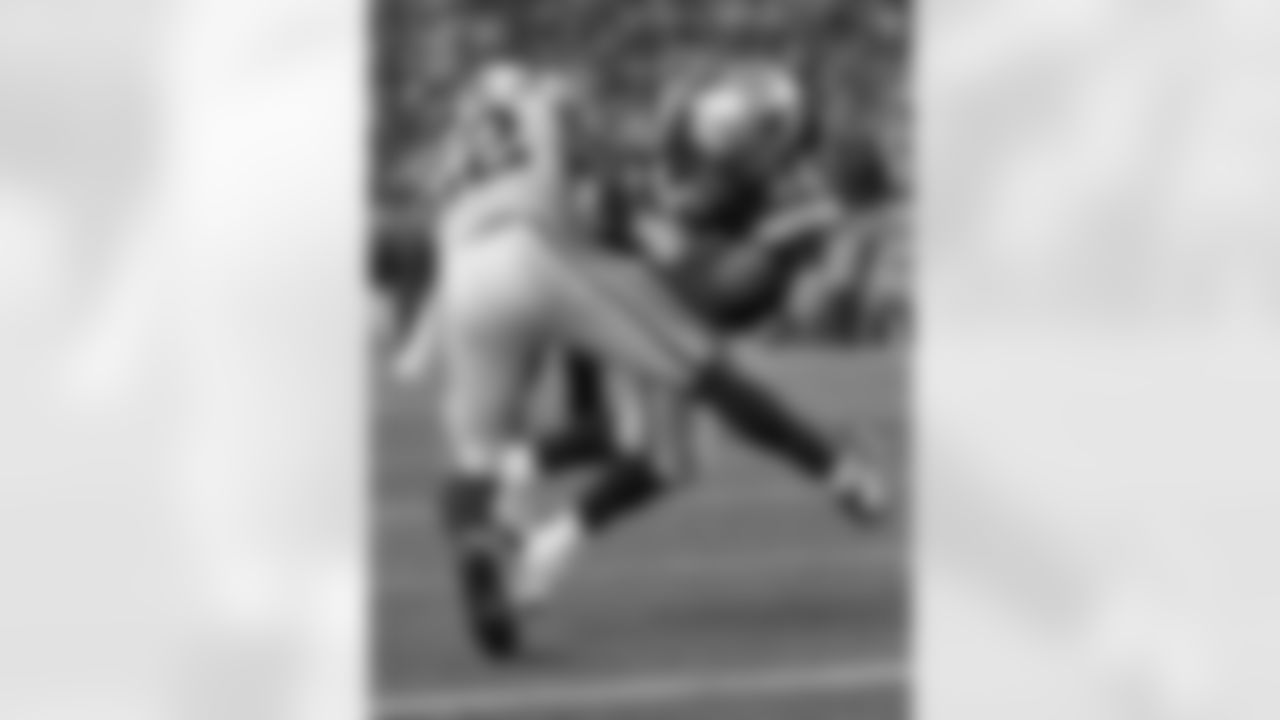
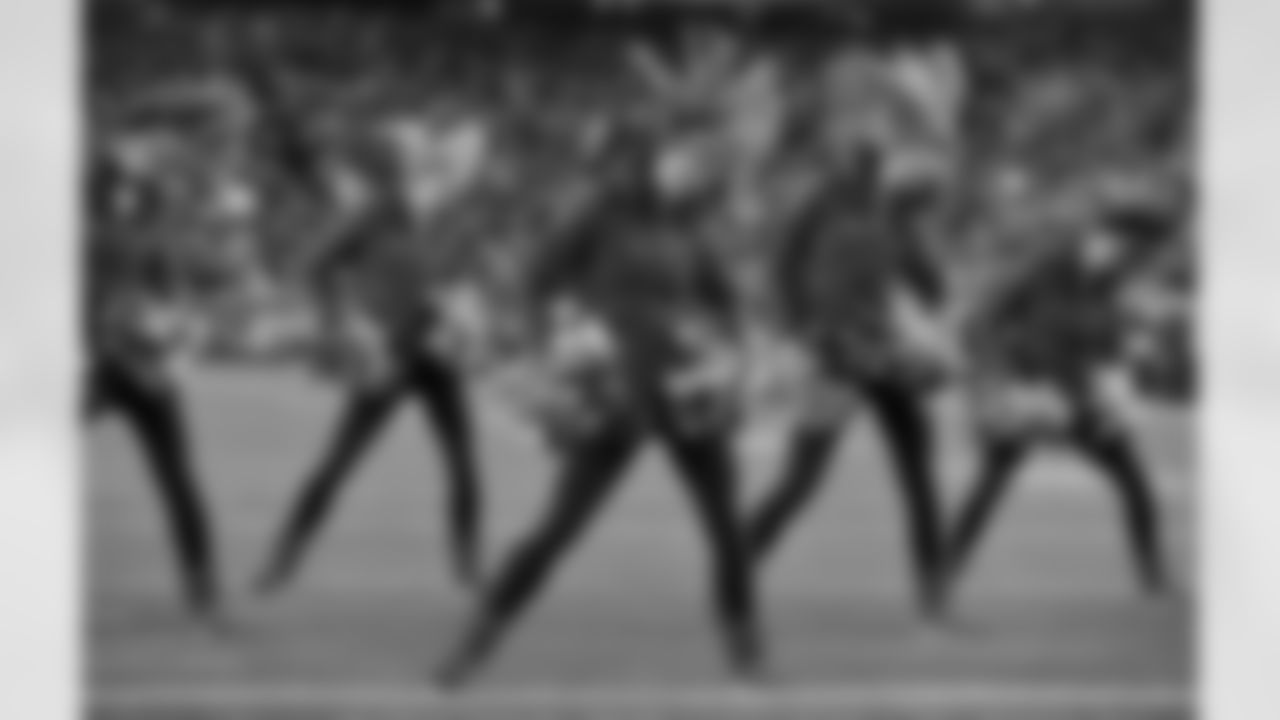
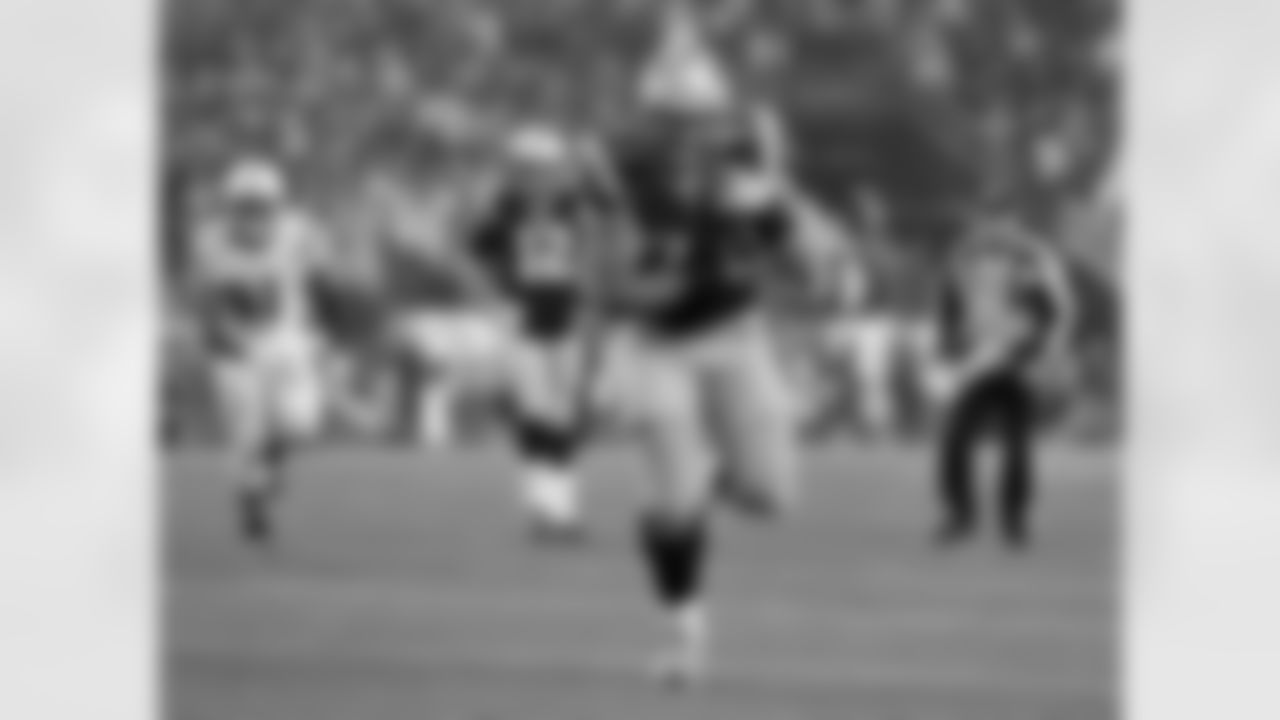
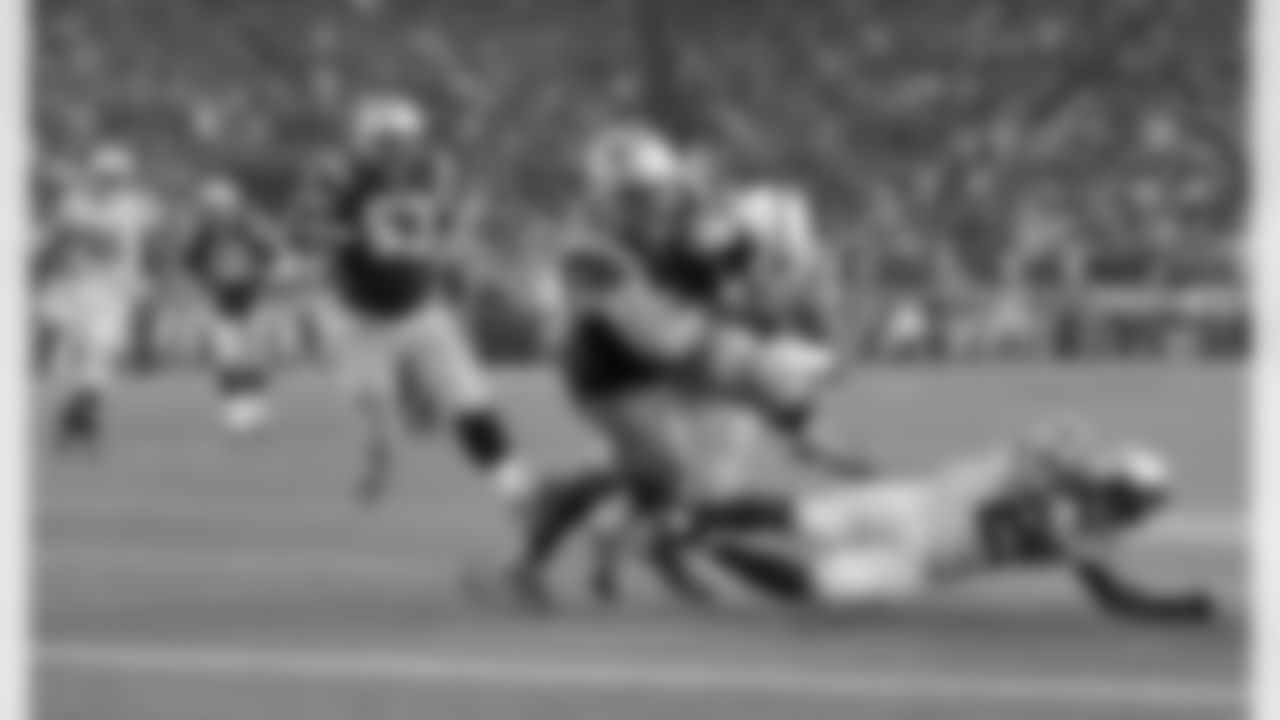
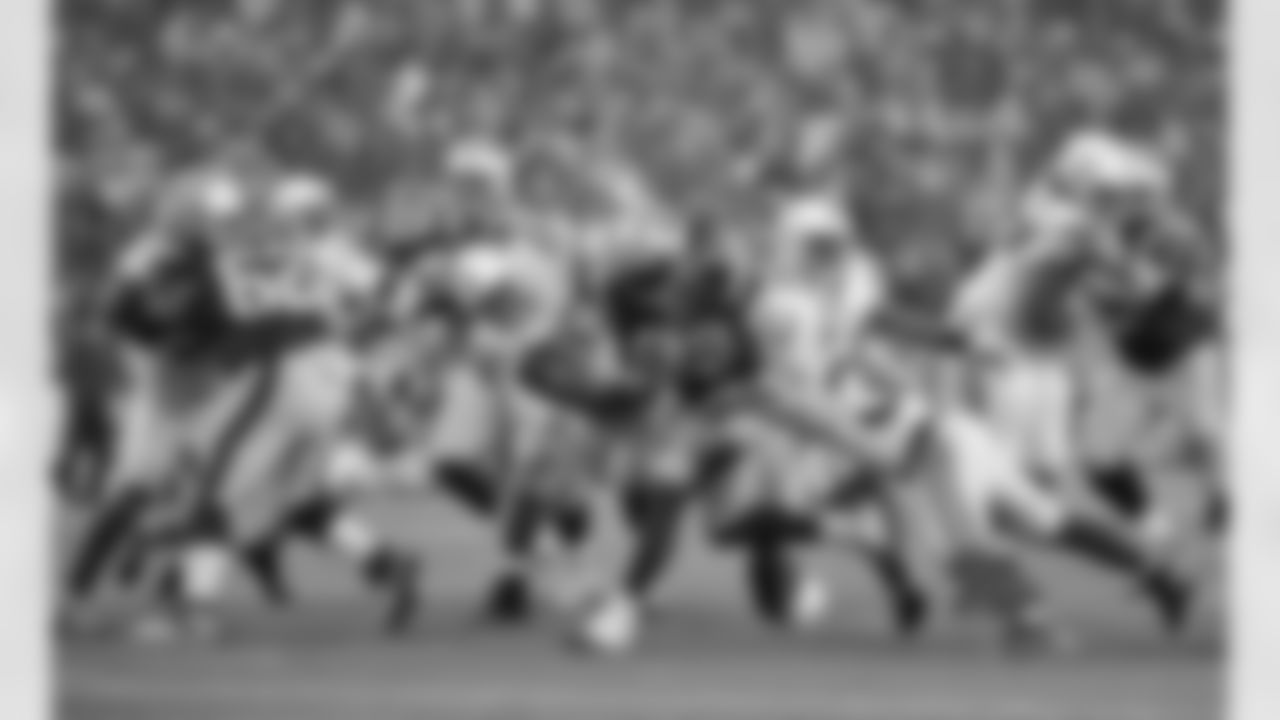
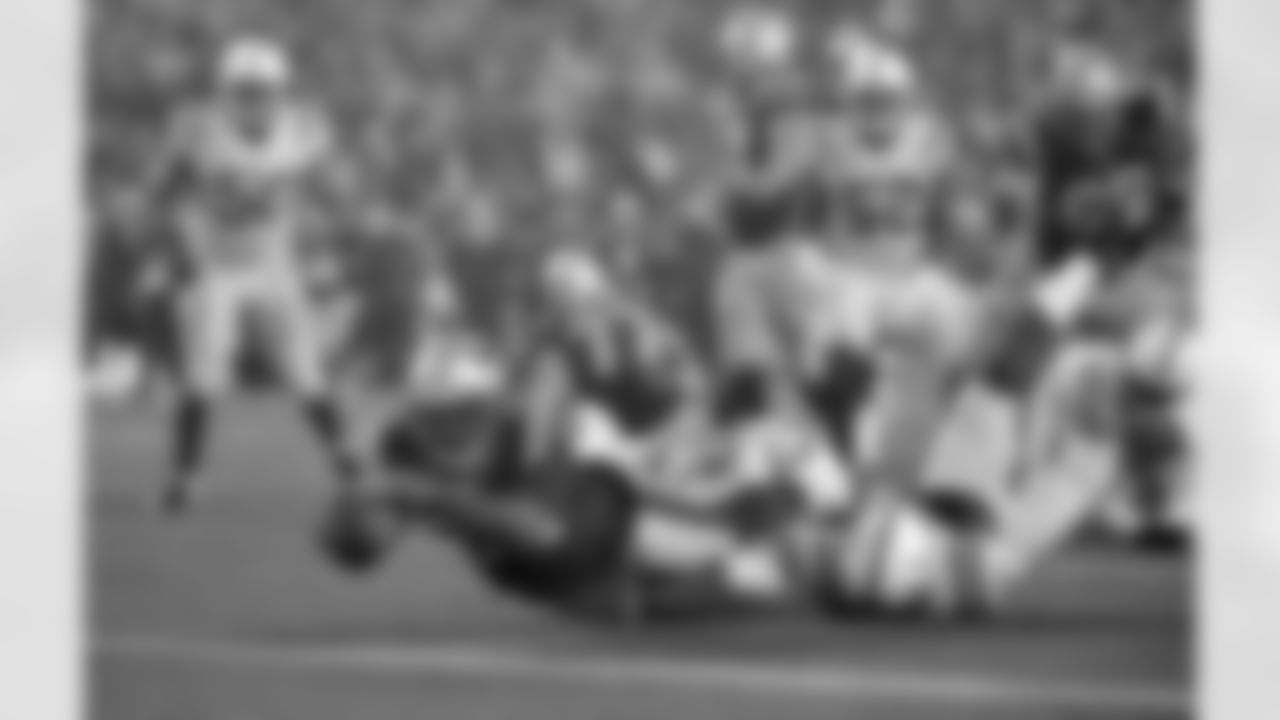
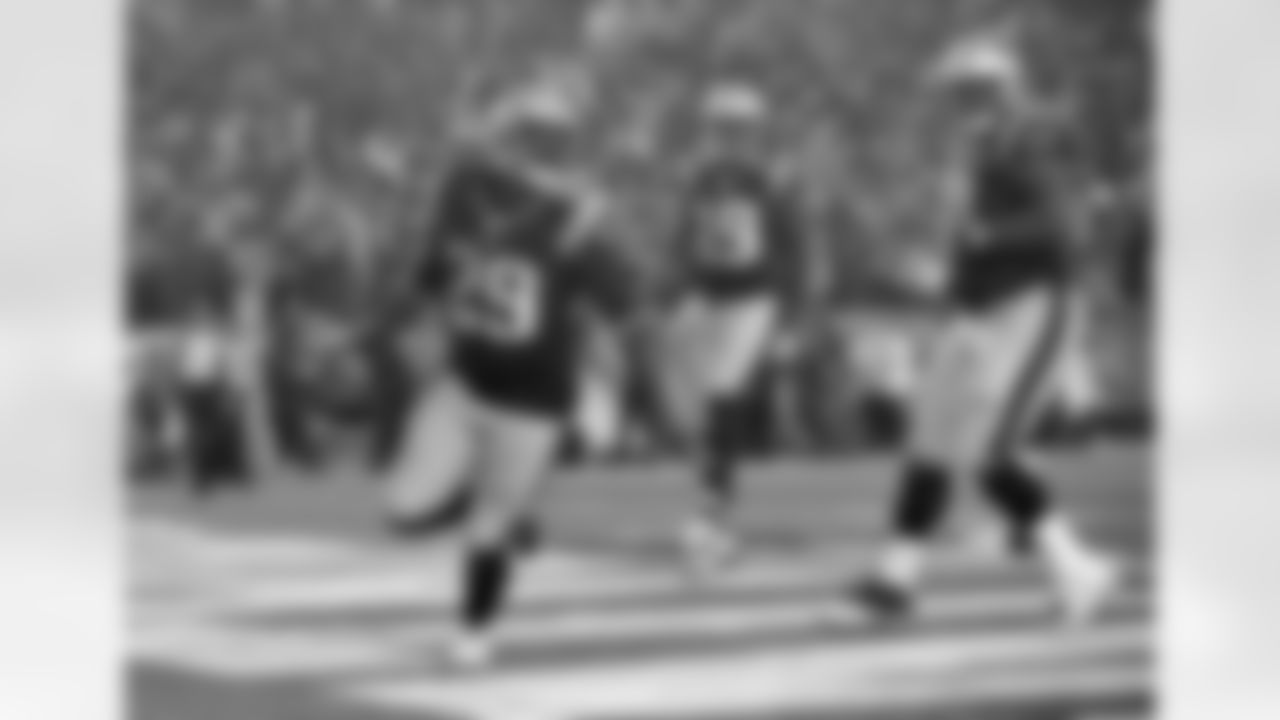
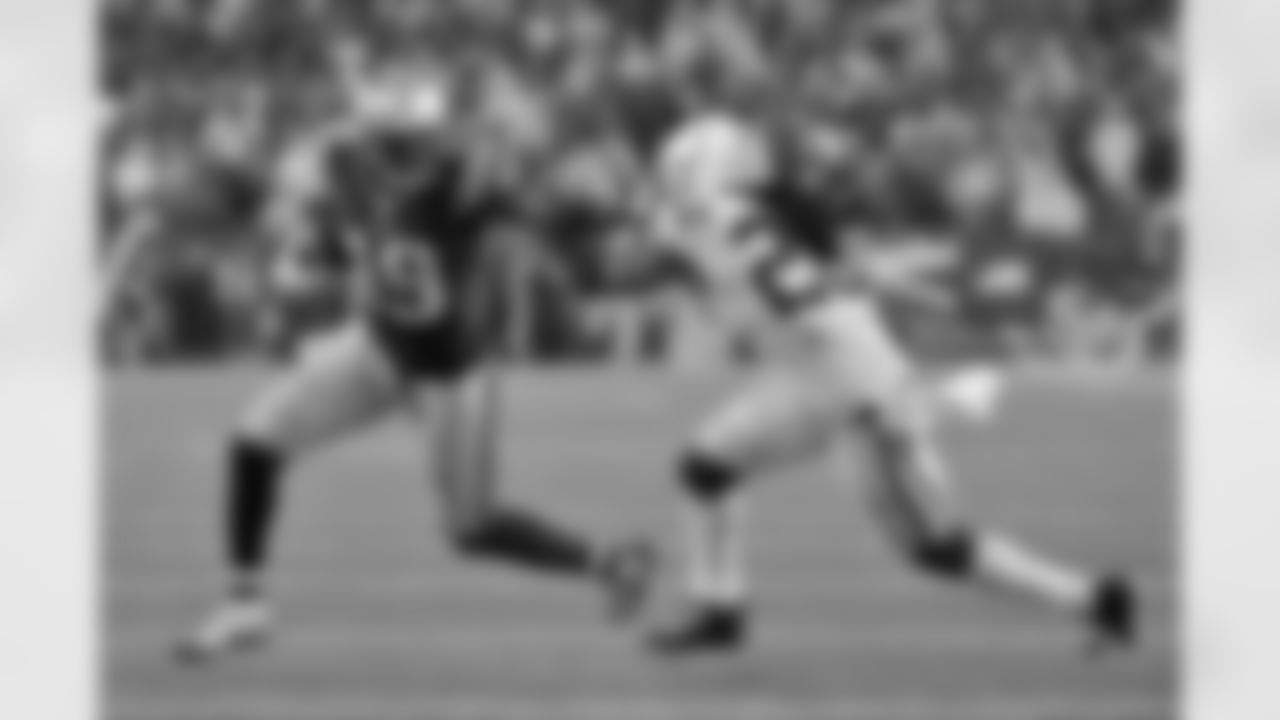
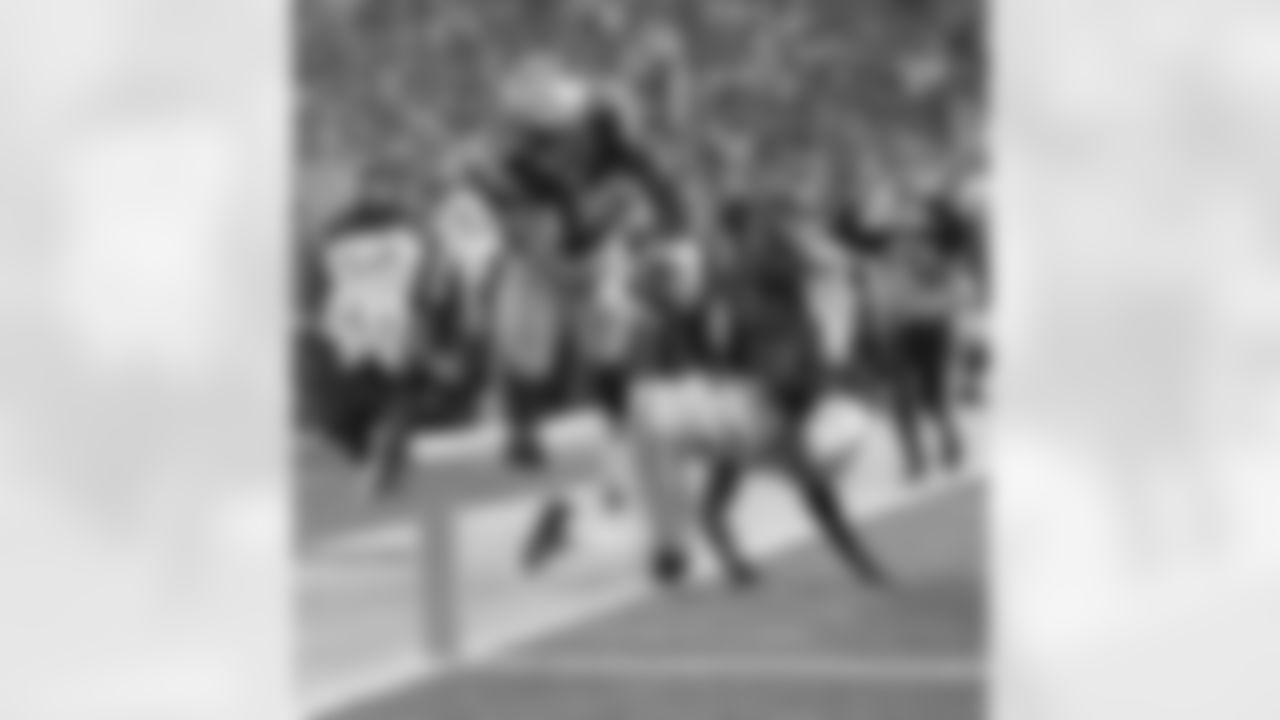
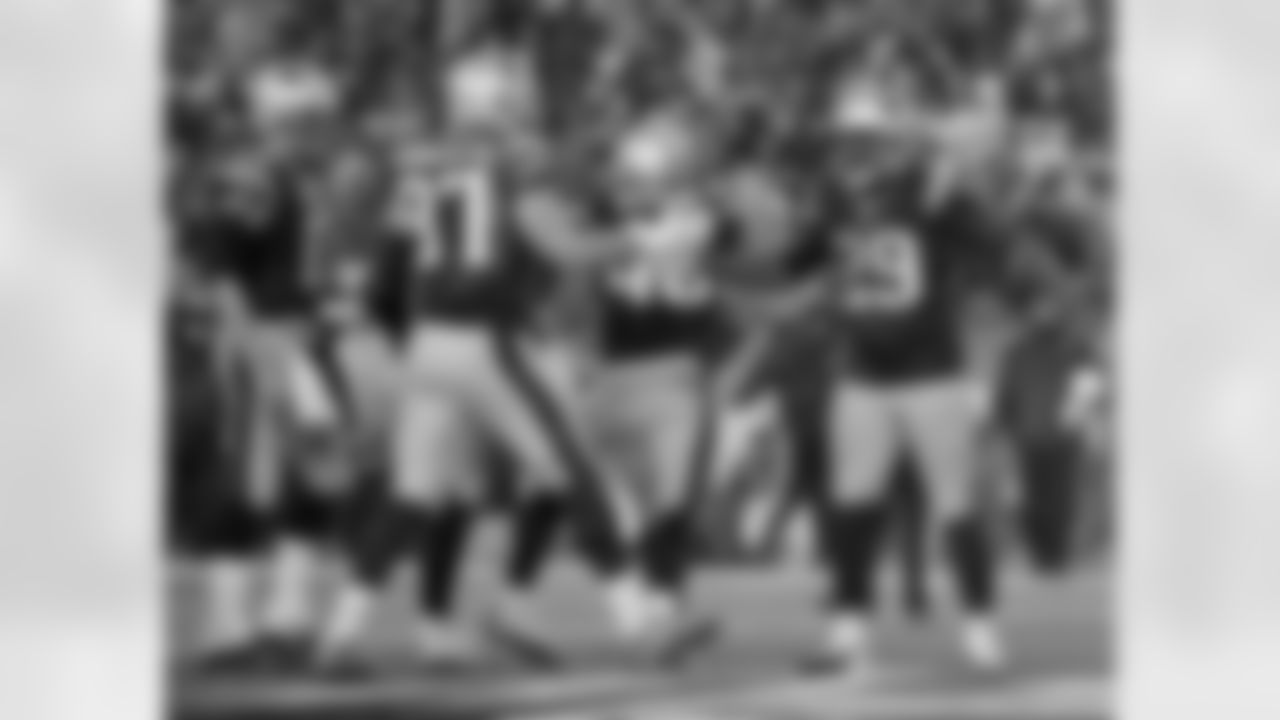
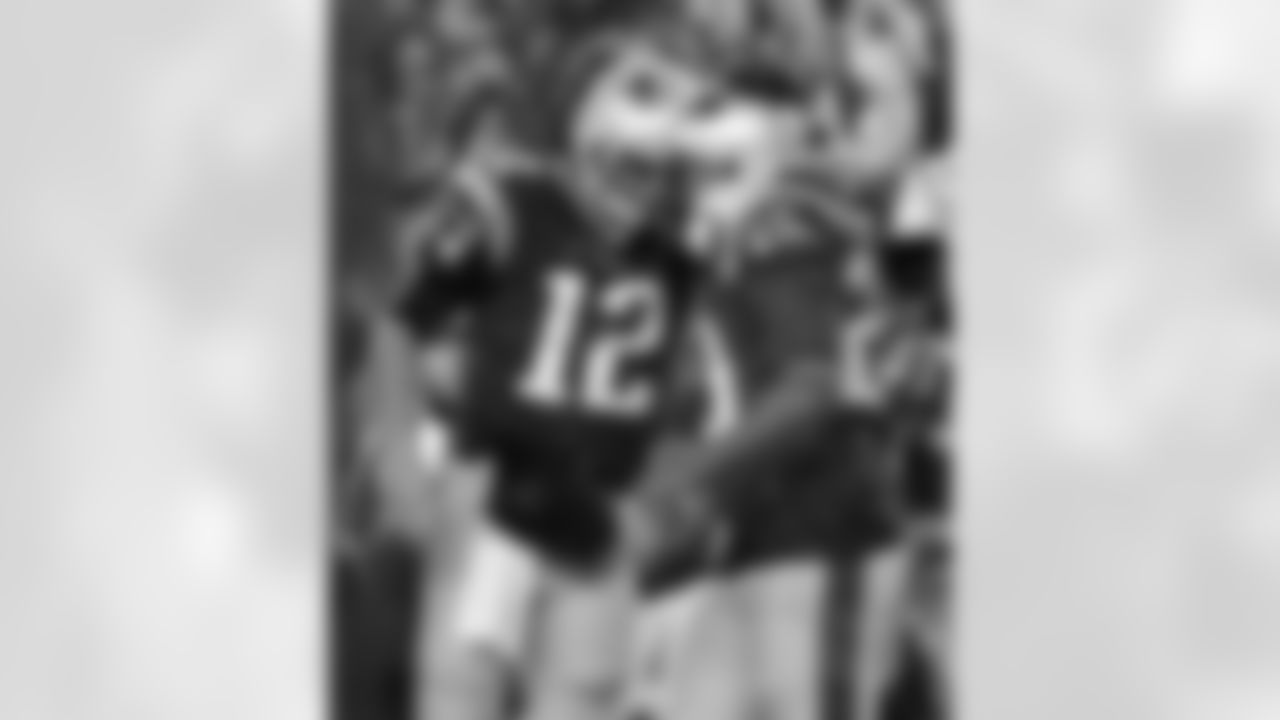
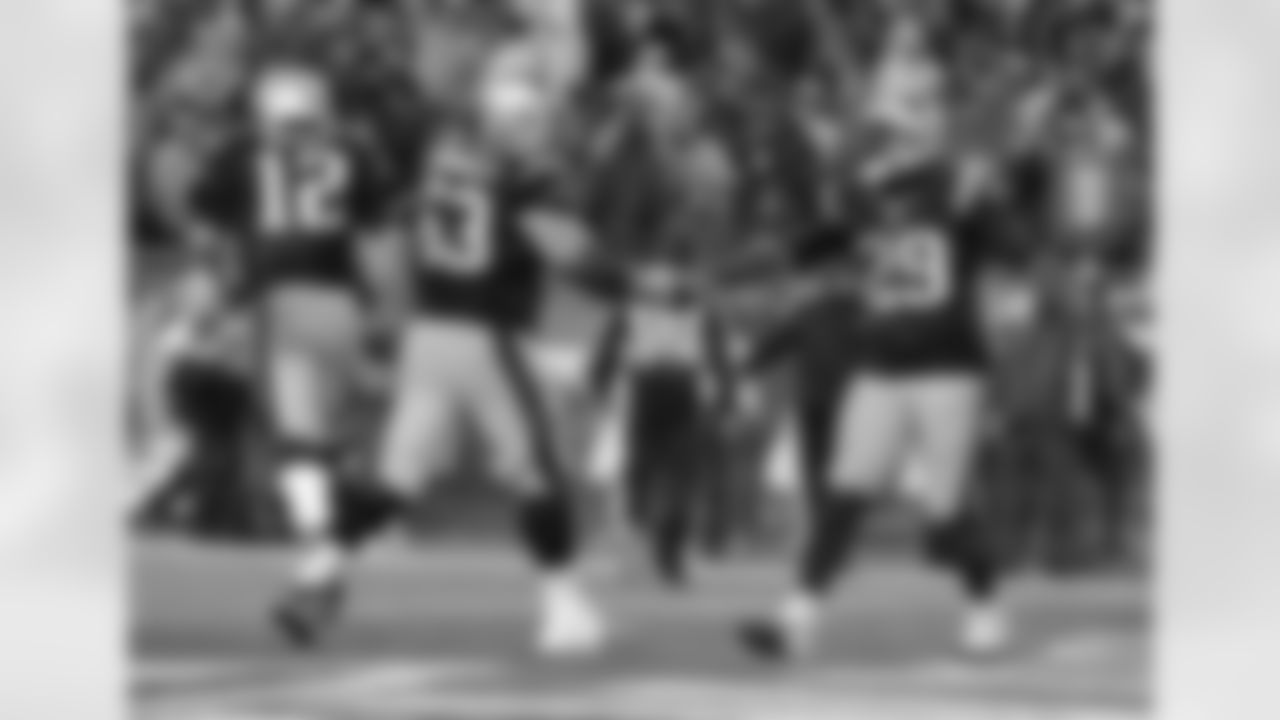
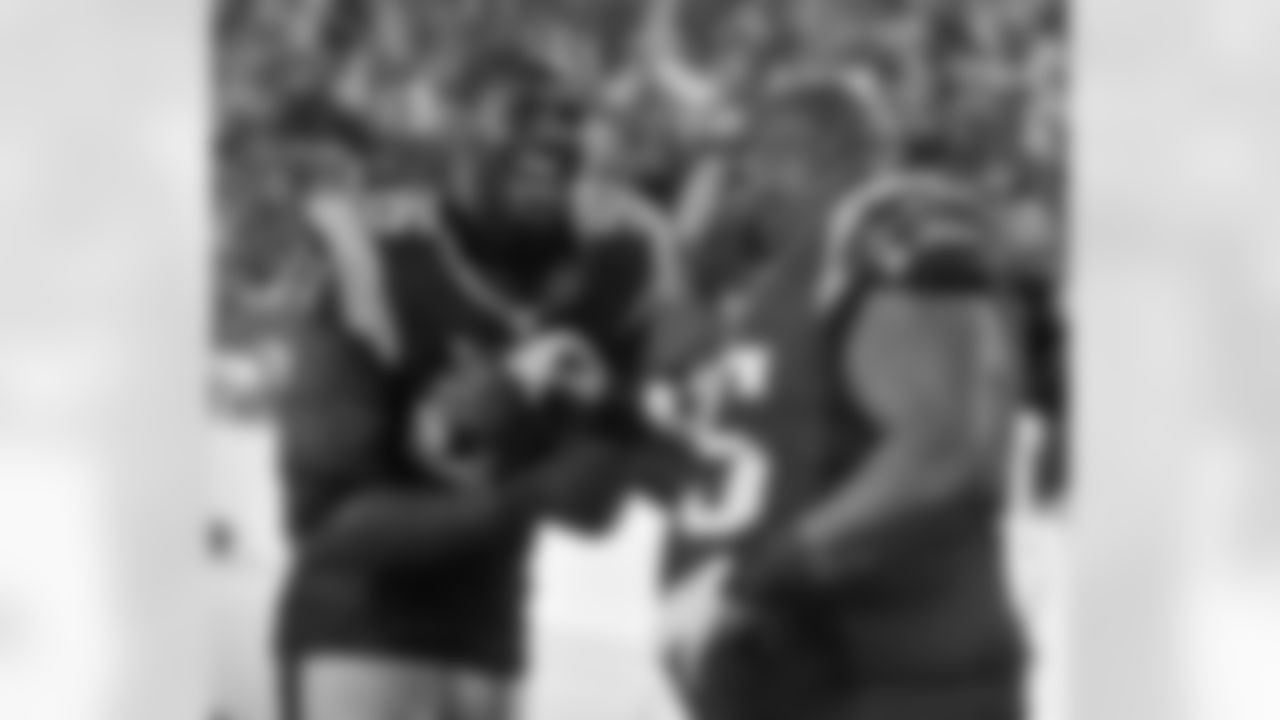
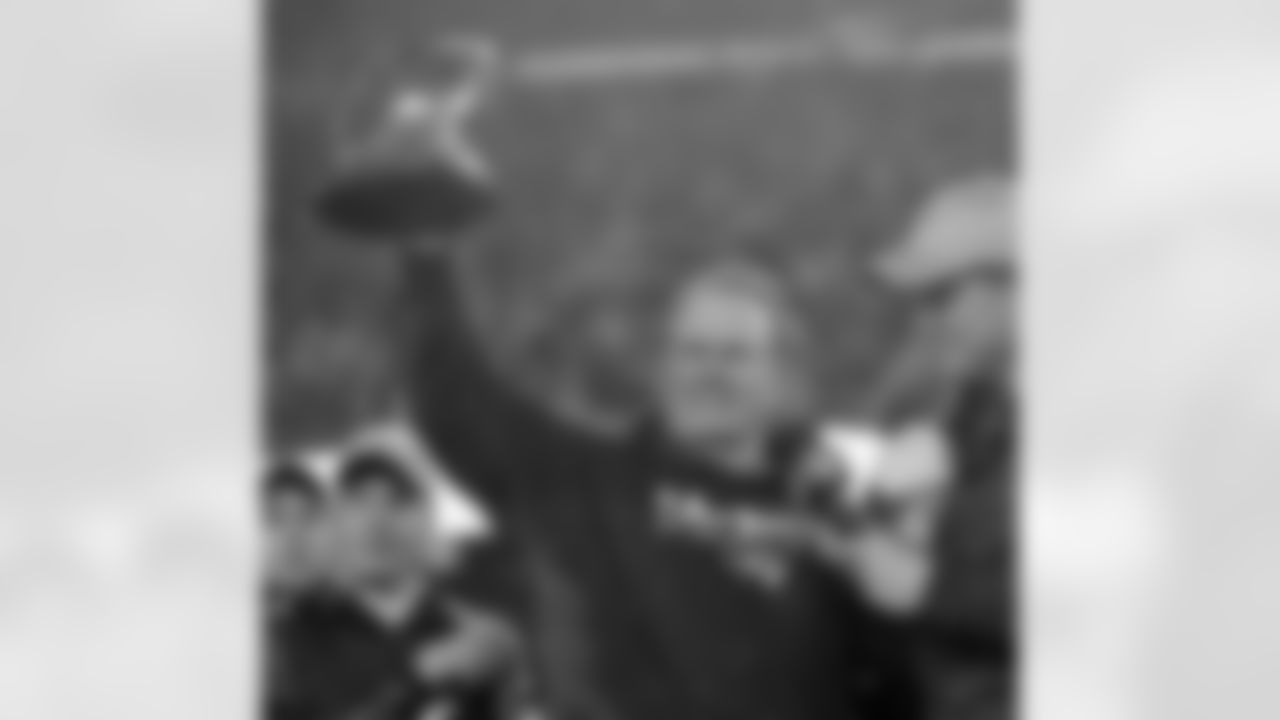
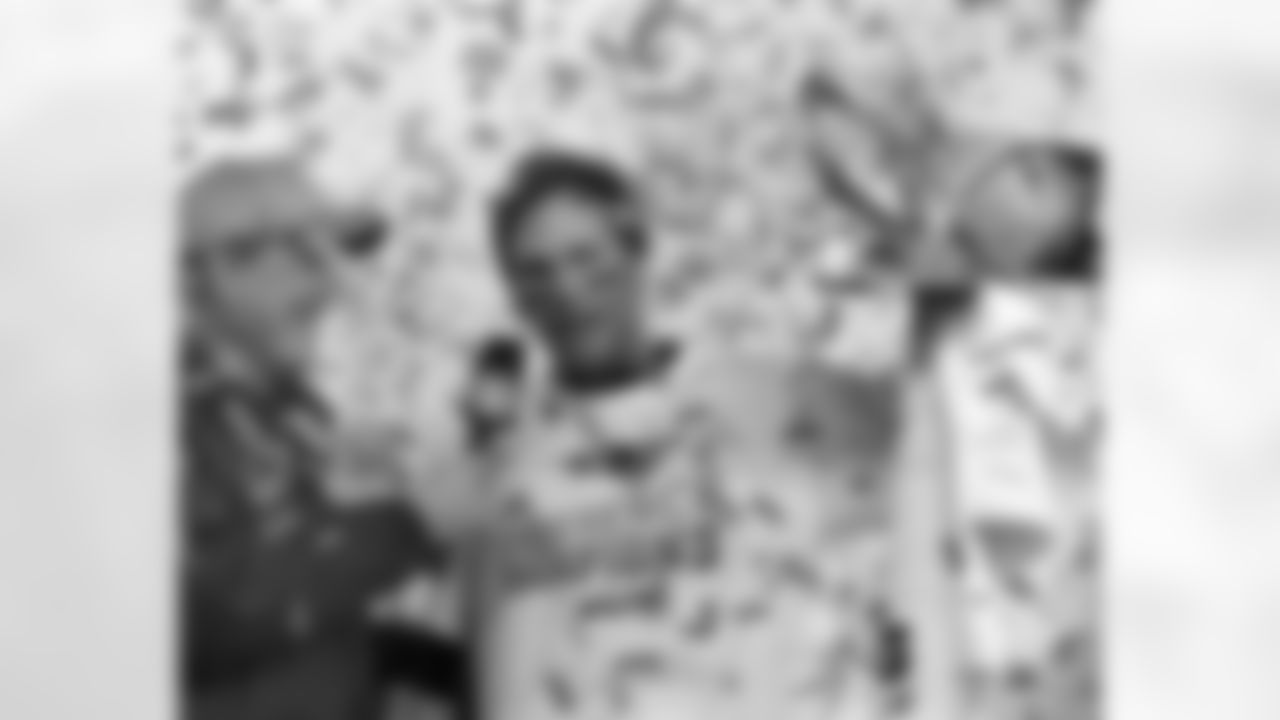
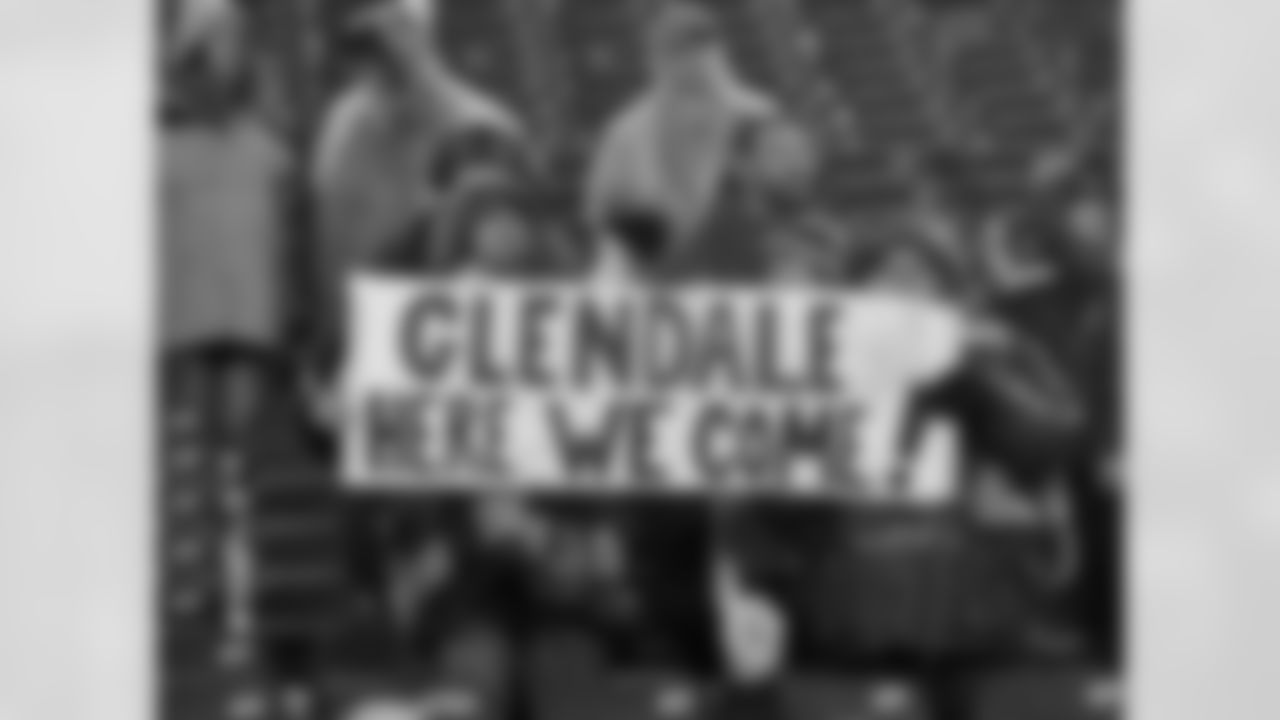
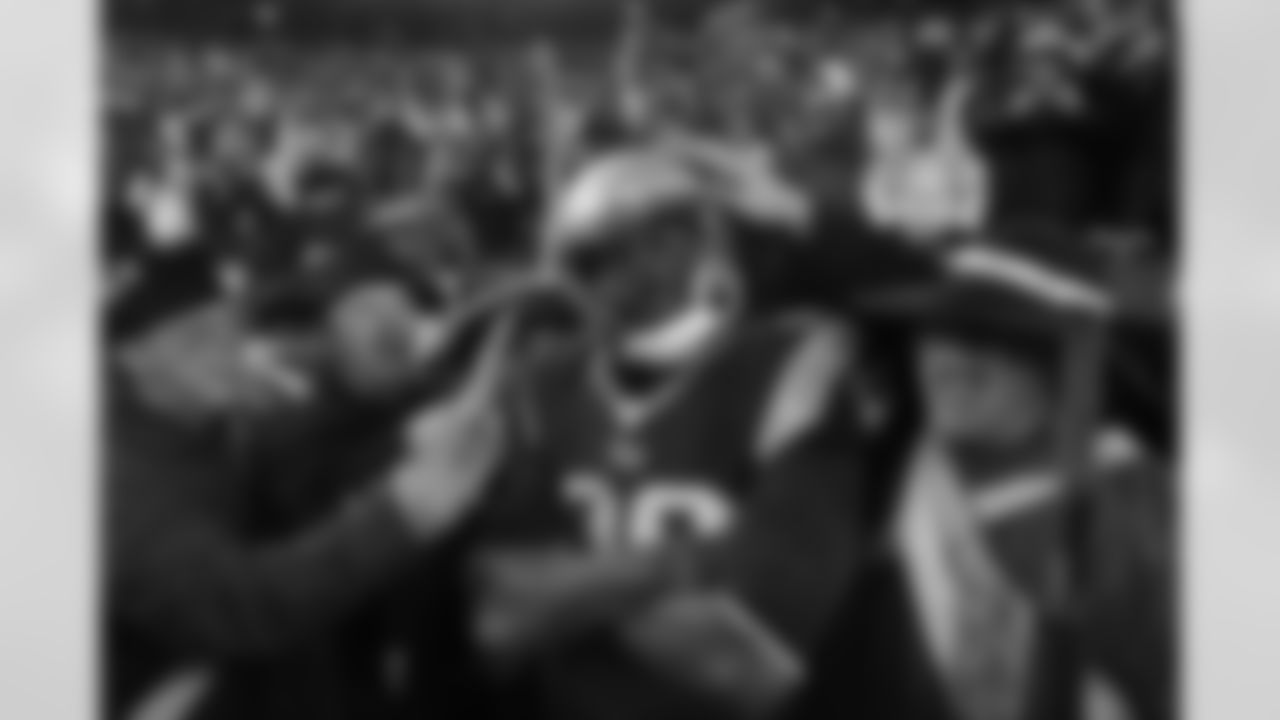
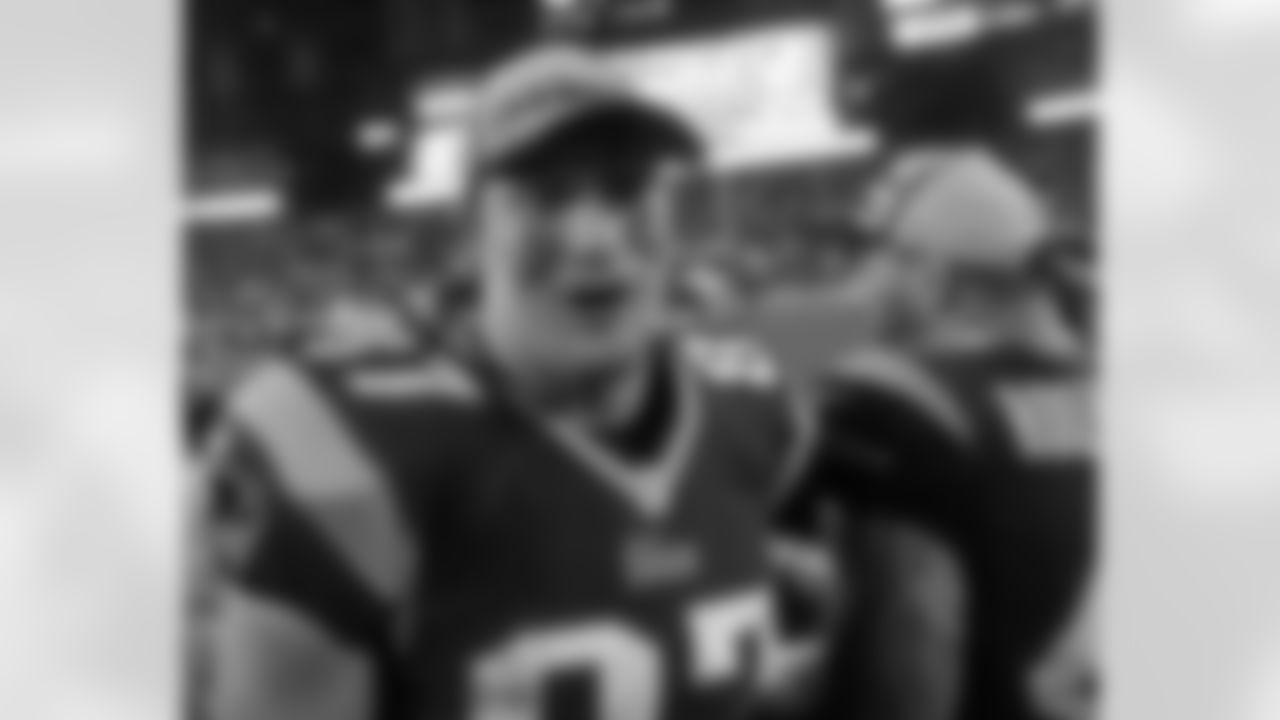
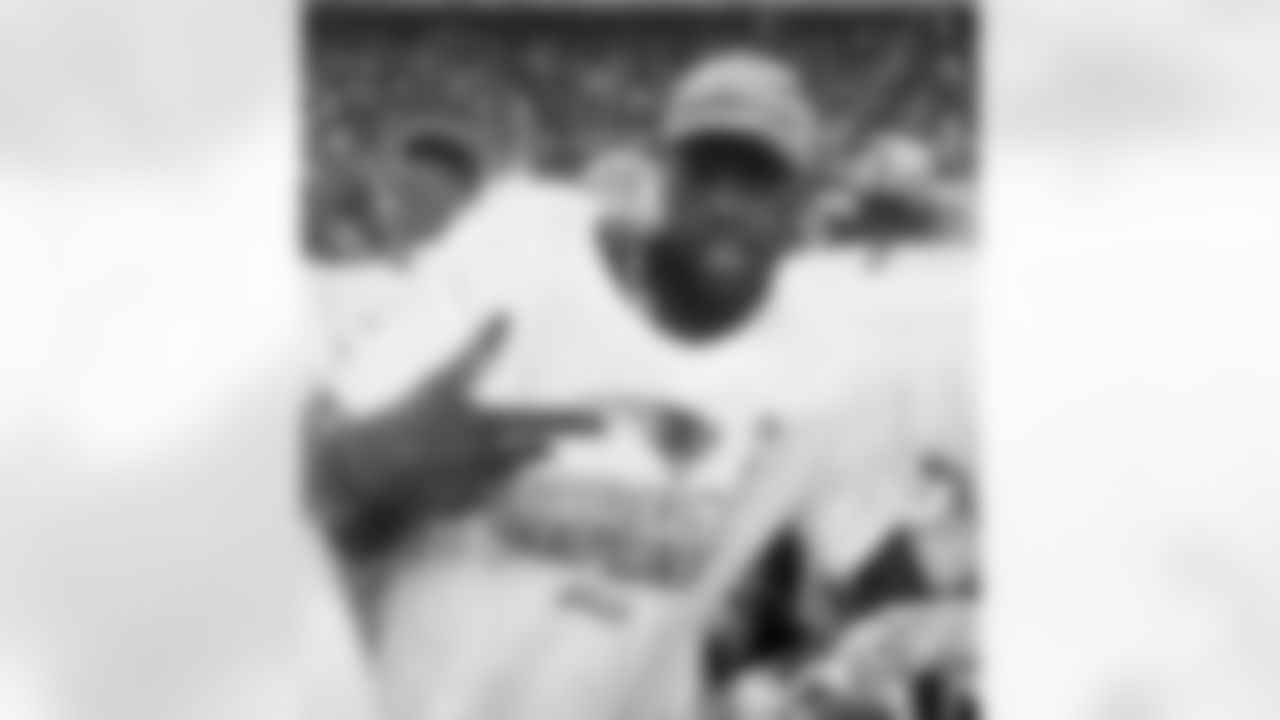
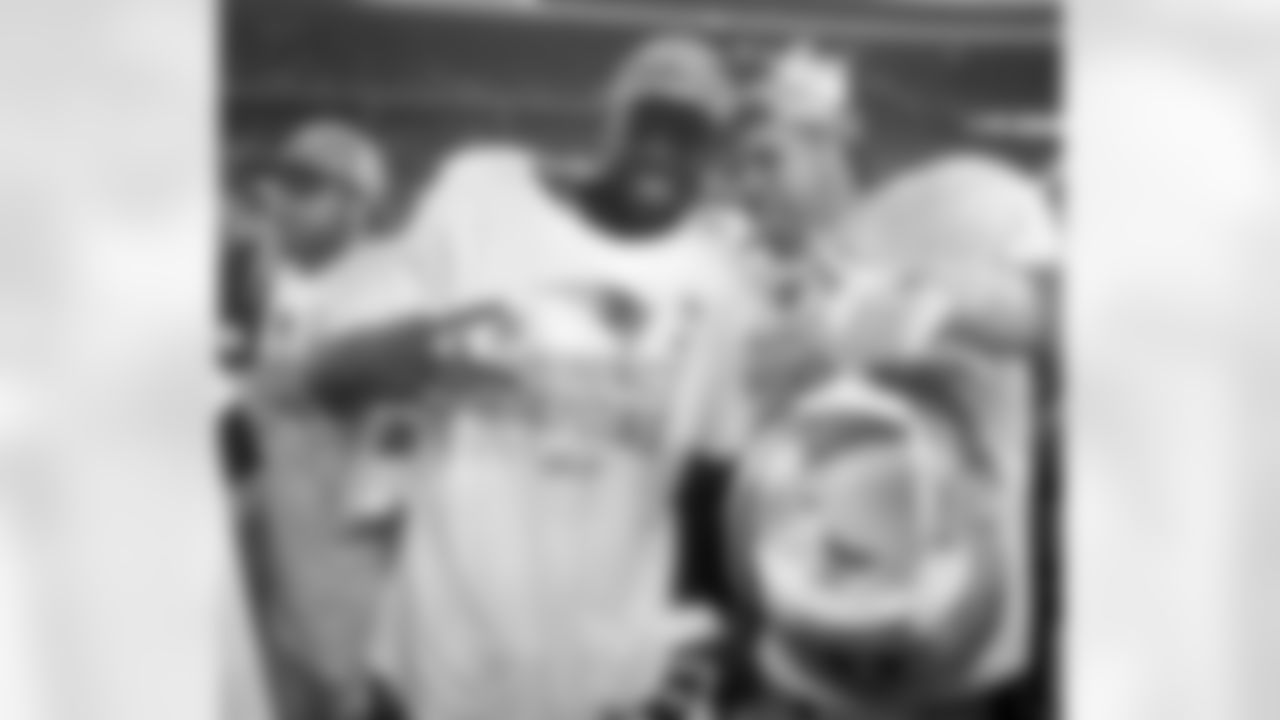
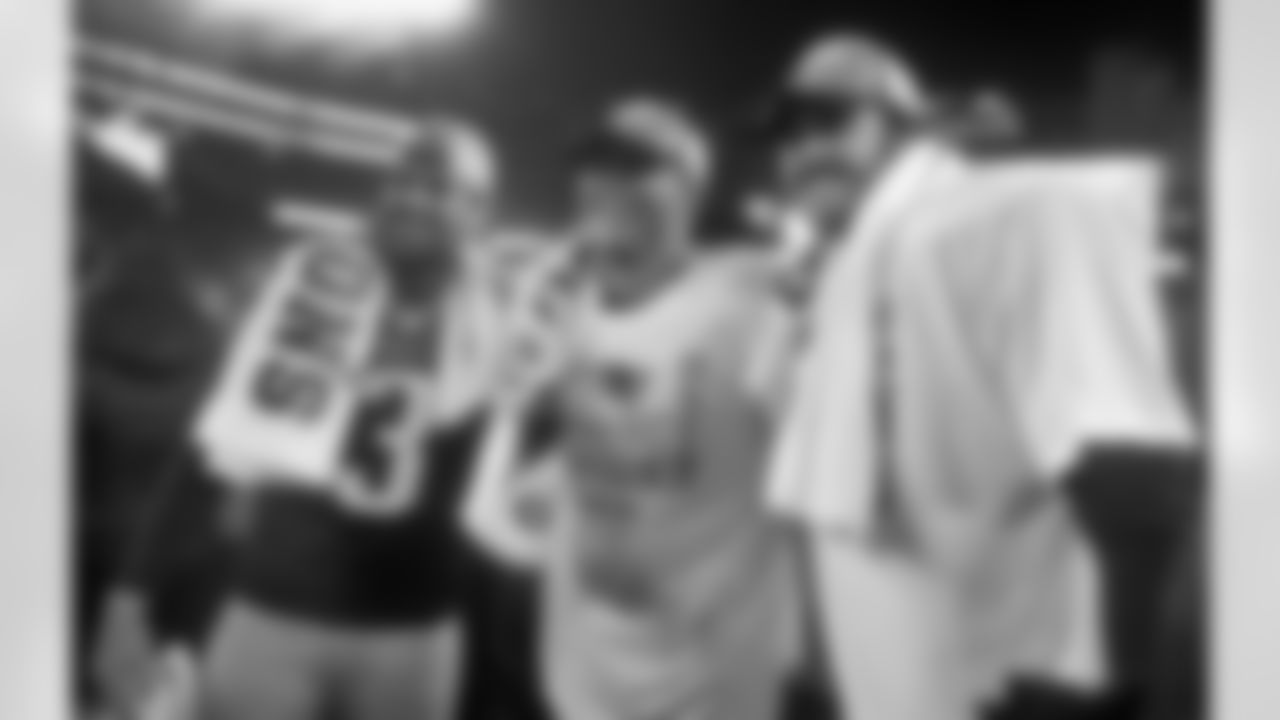
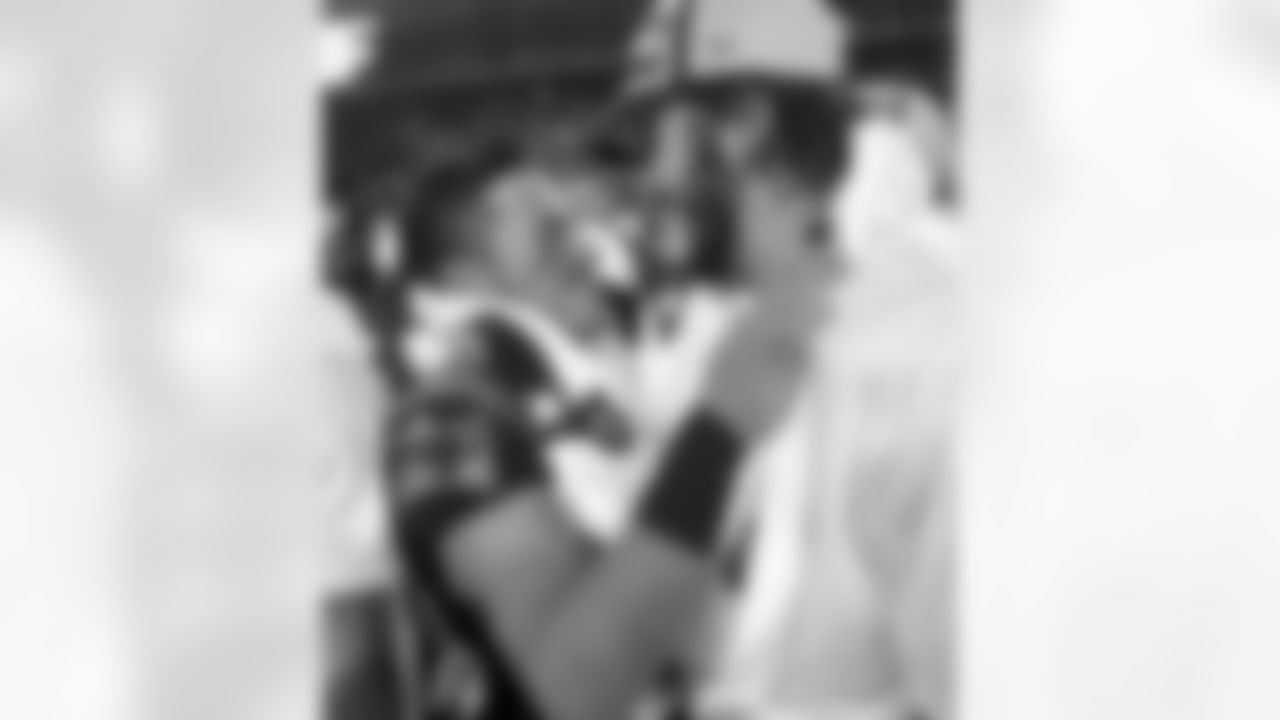
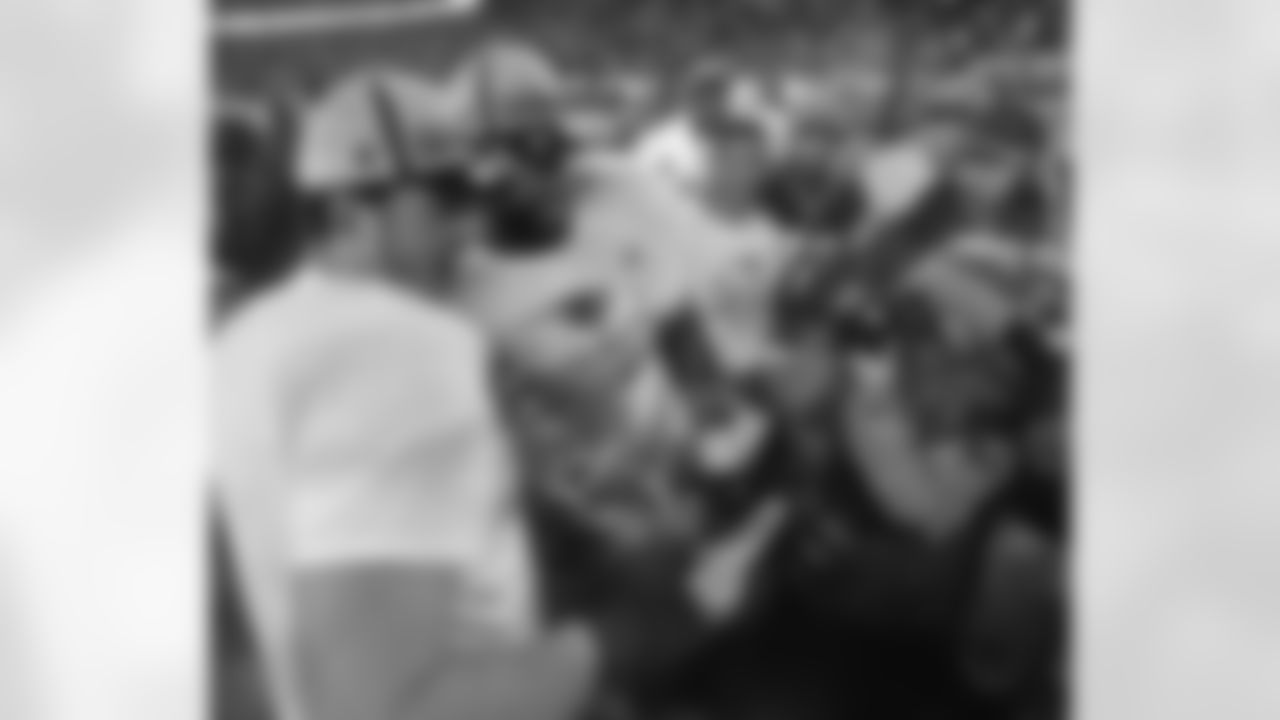


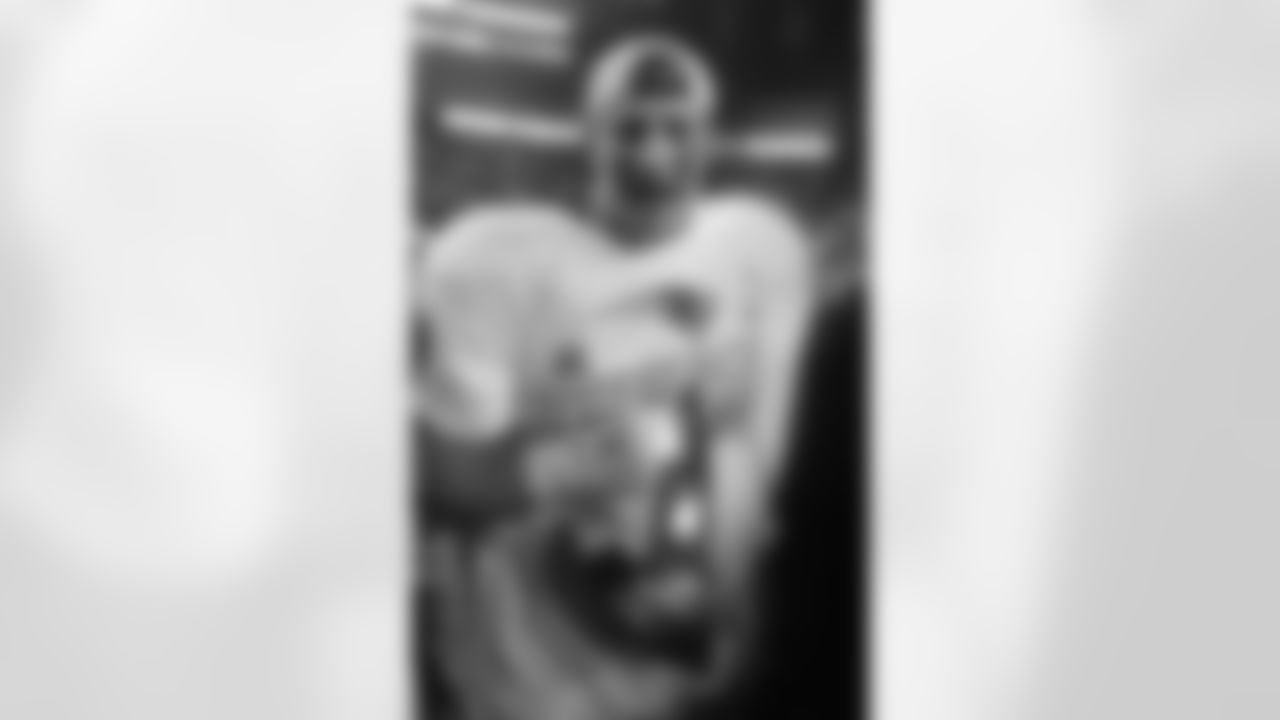
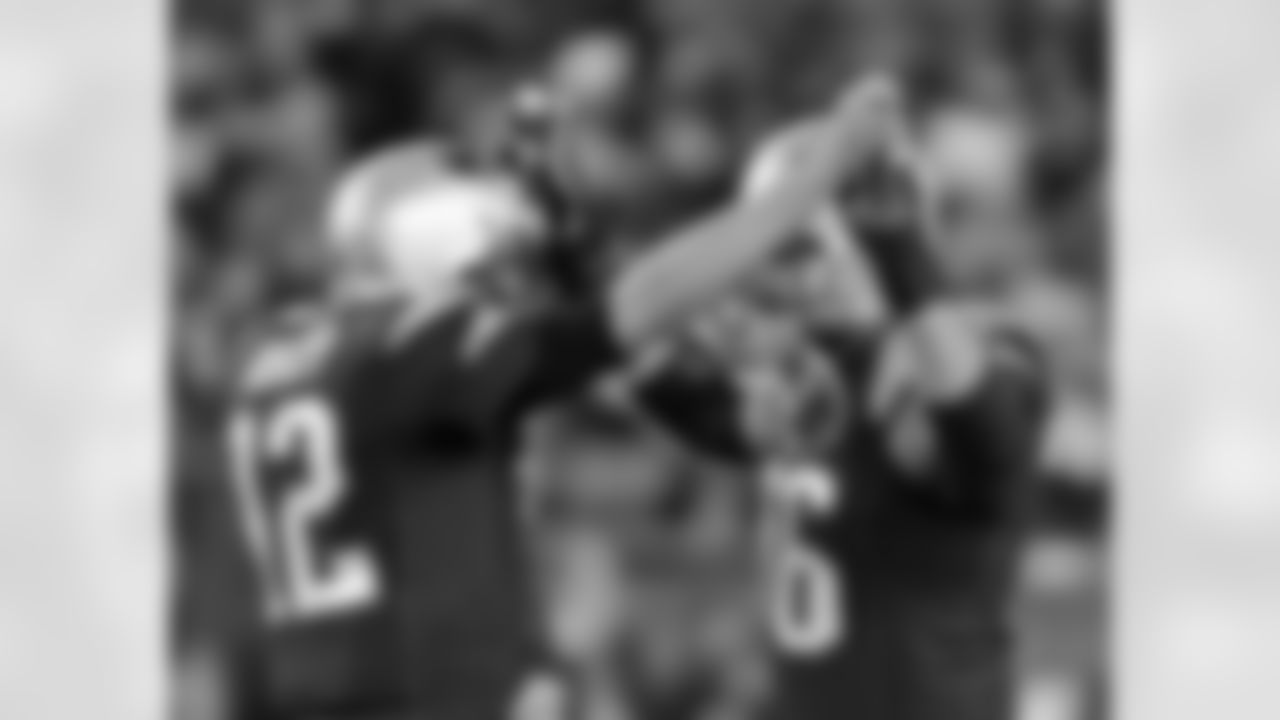
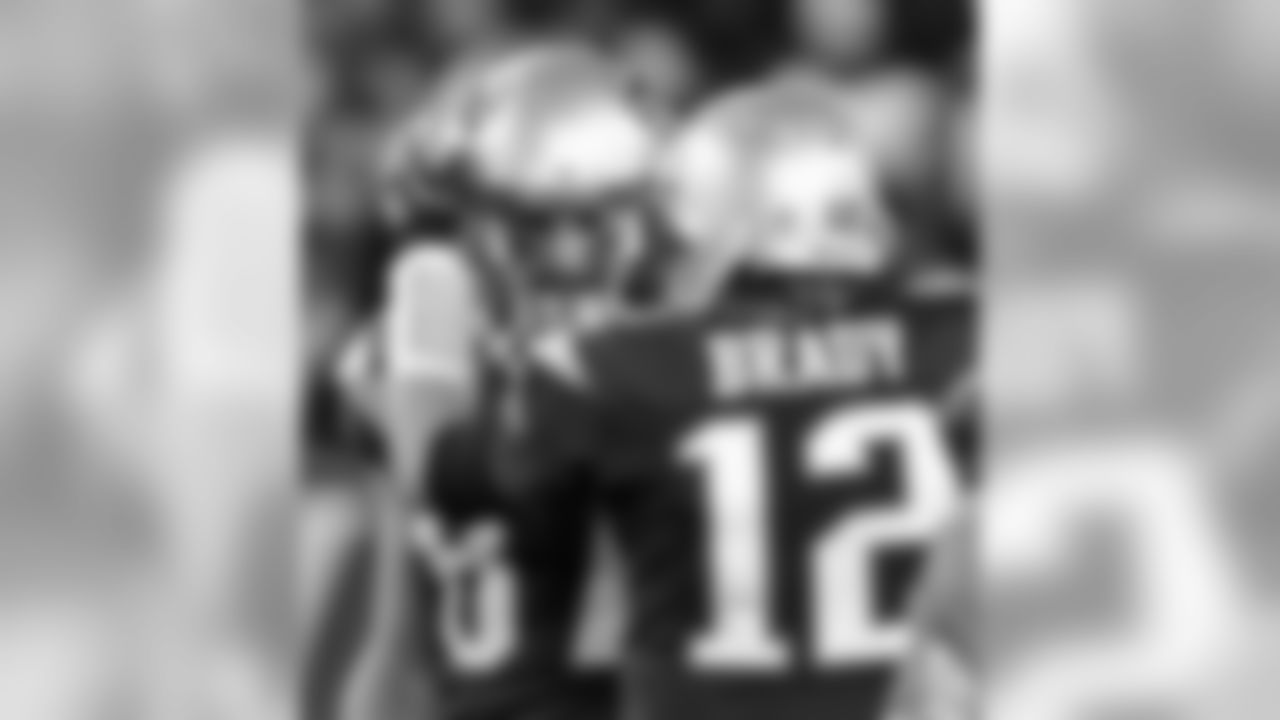
New England Patriots vs Indianapolis Colts in the AFC Championship Game at Gillette Stadium, January 18, 2015.
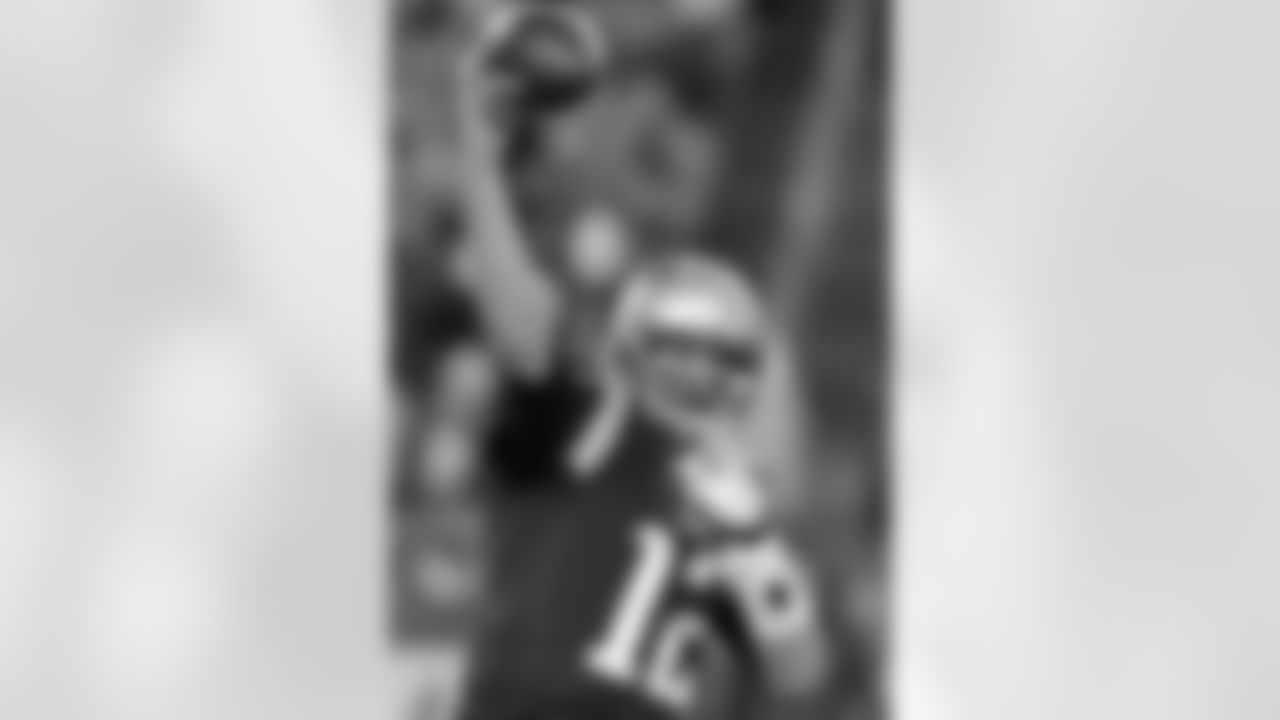
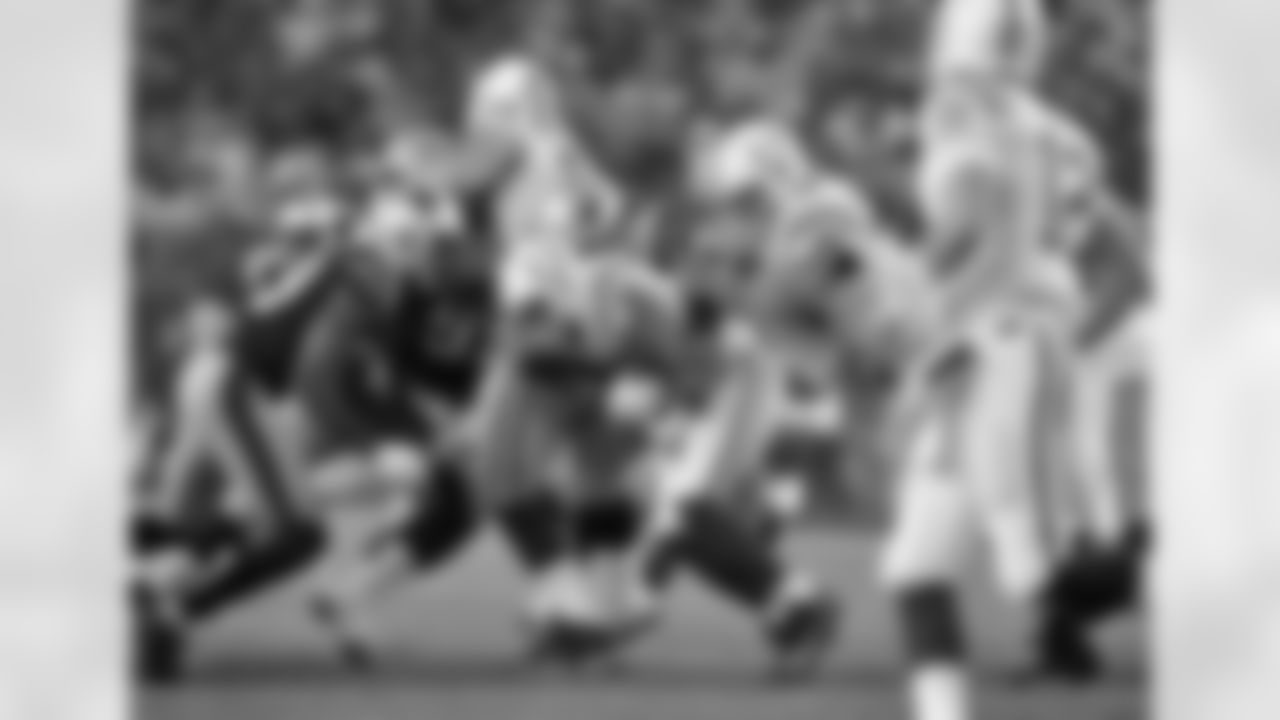
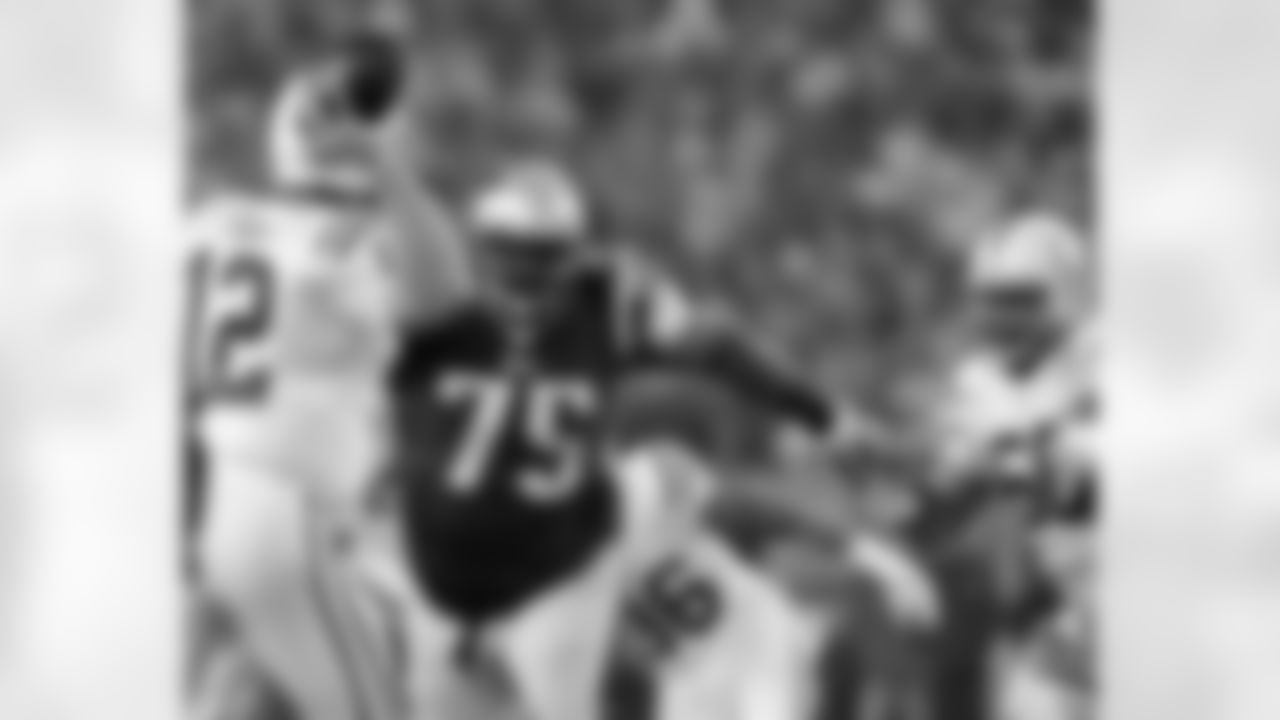
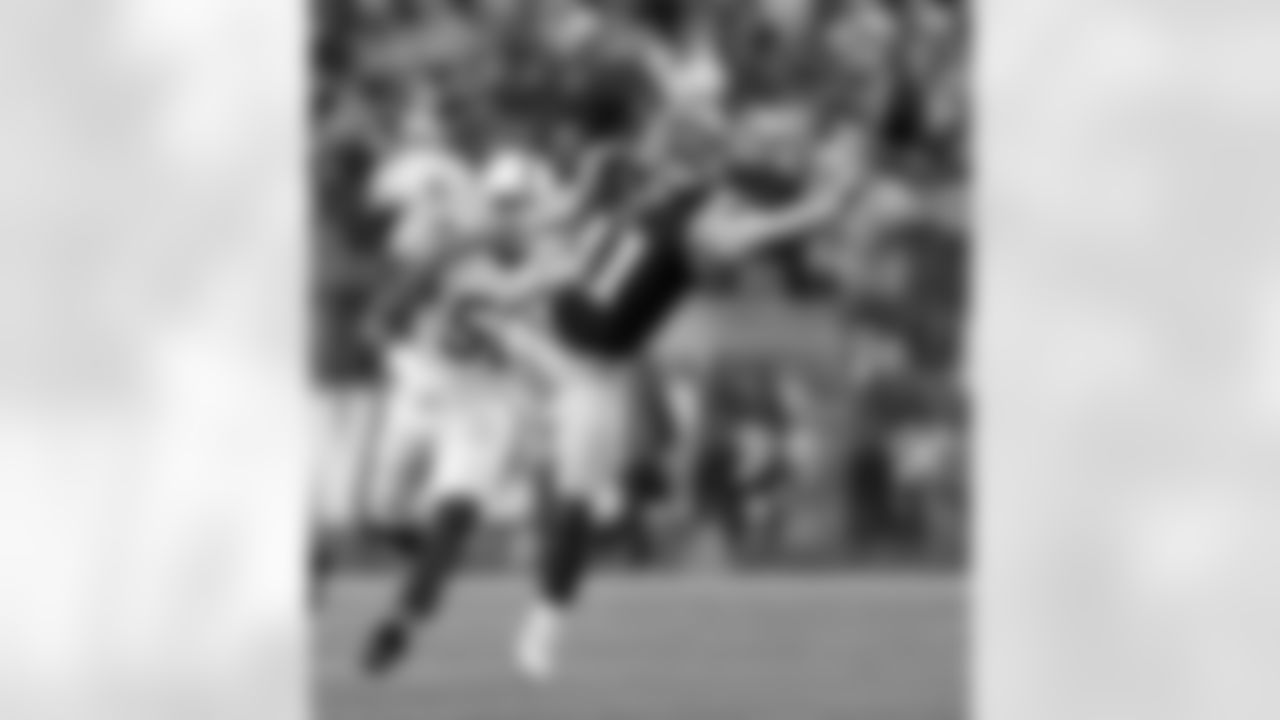
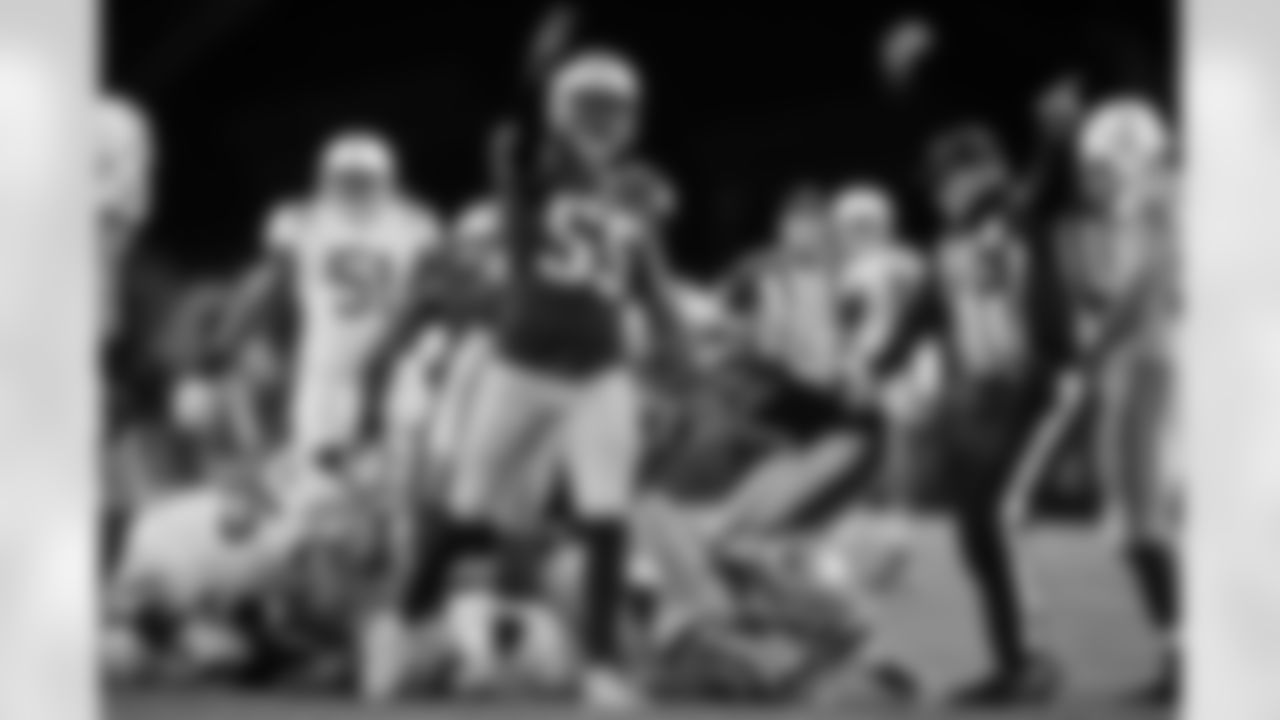
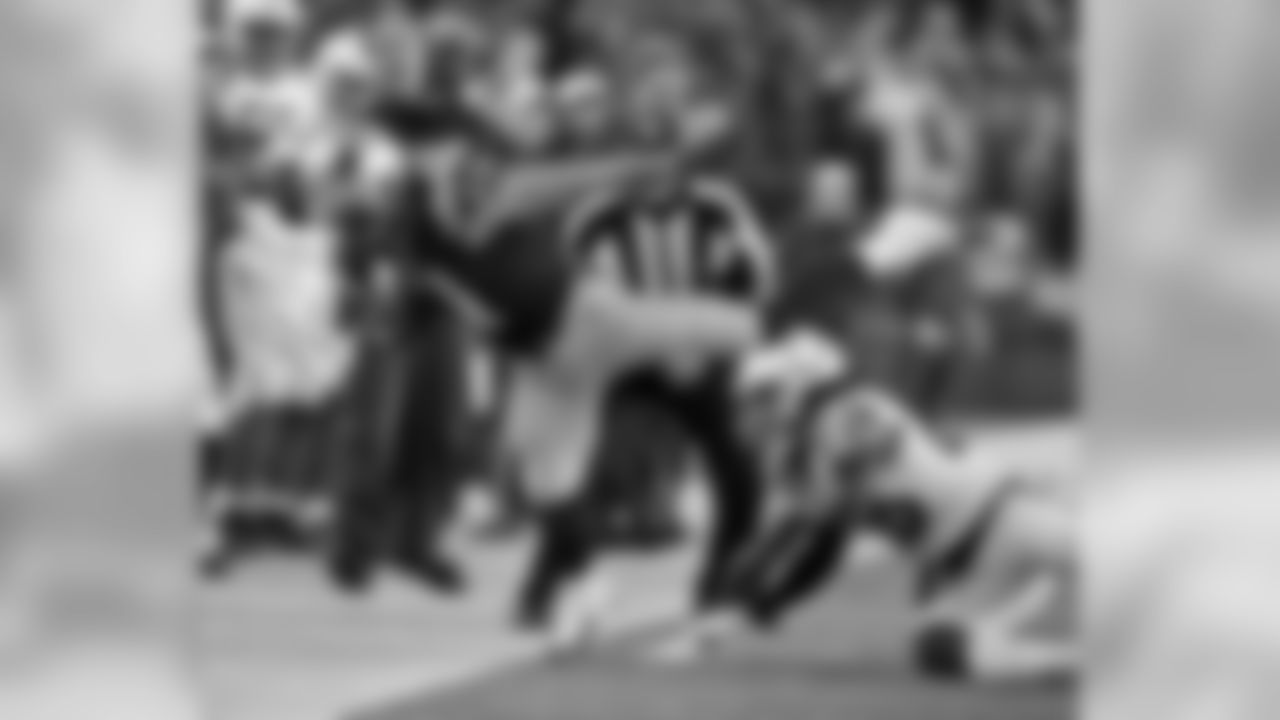
New England Patriots vs Indianapolis Colts in the AFC Championship Game at Gillette Stadium, January 18, 2015.
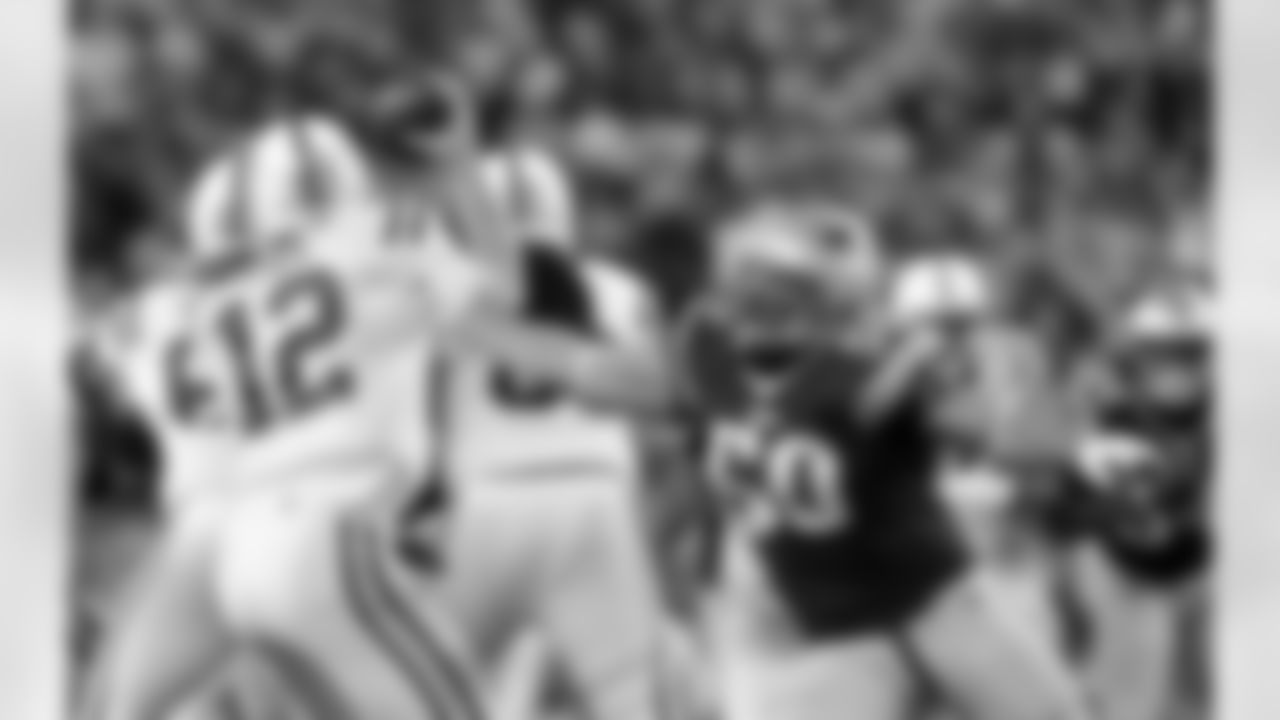
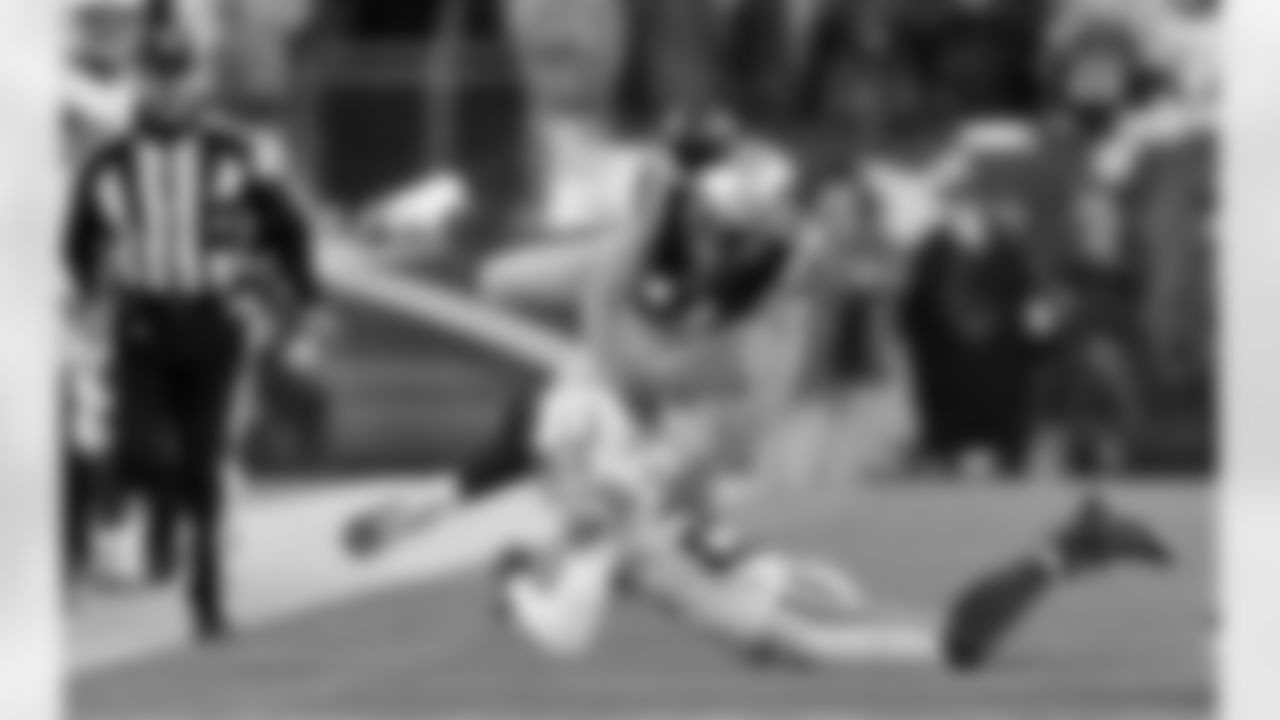
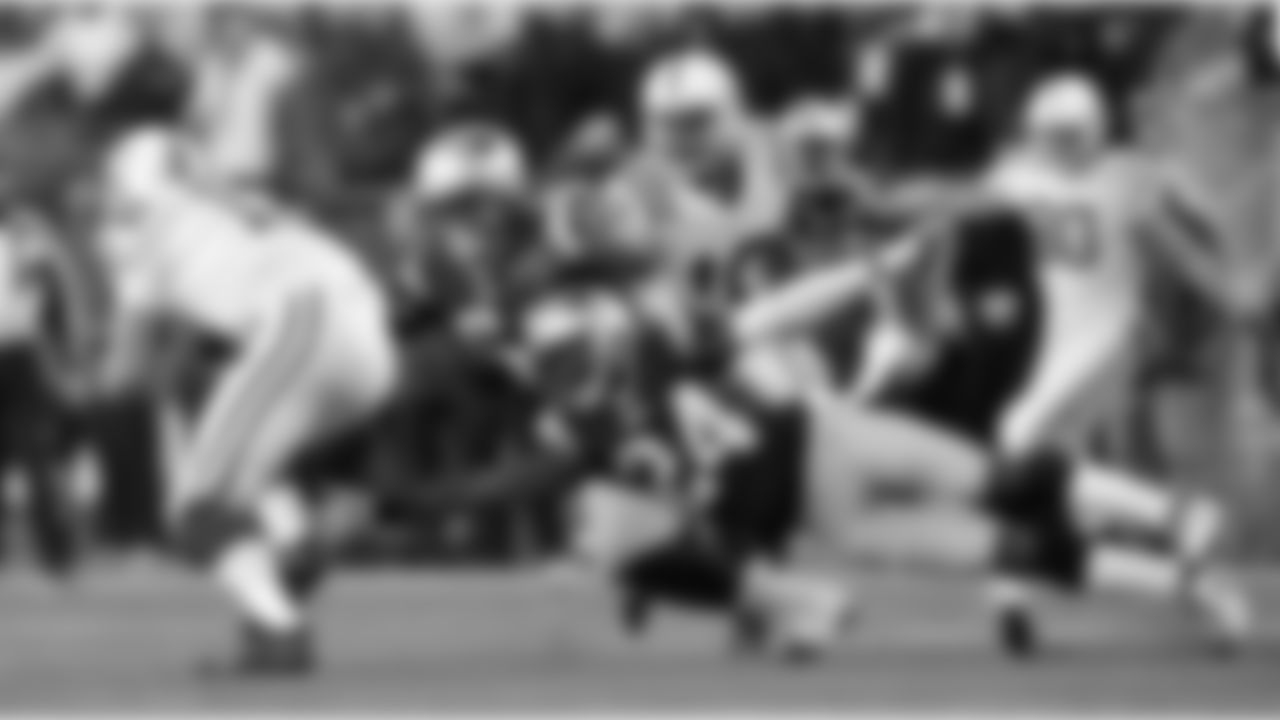
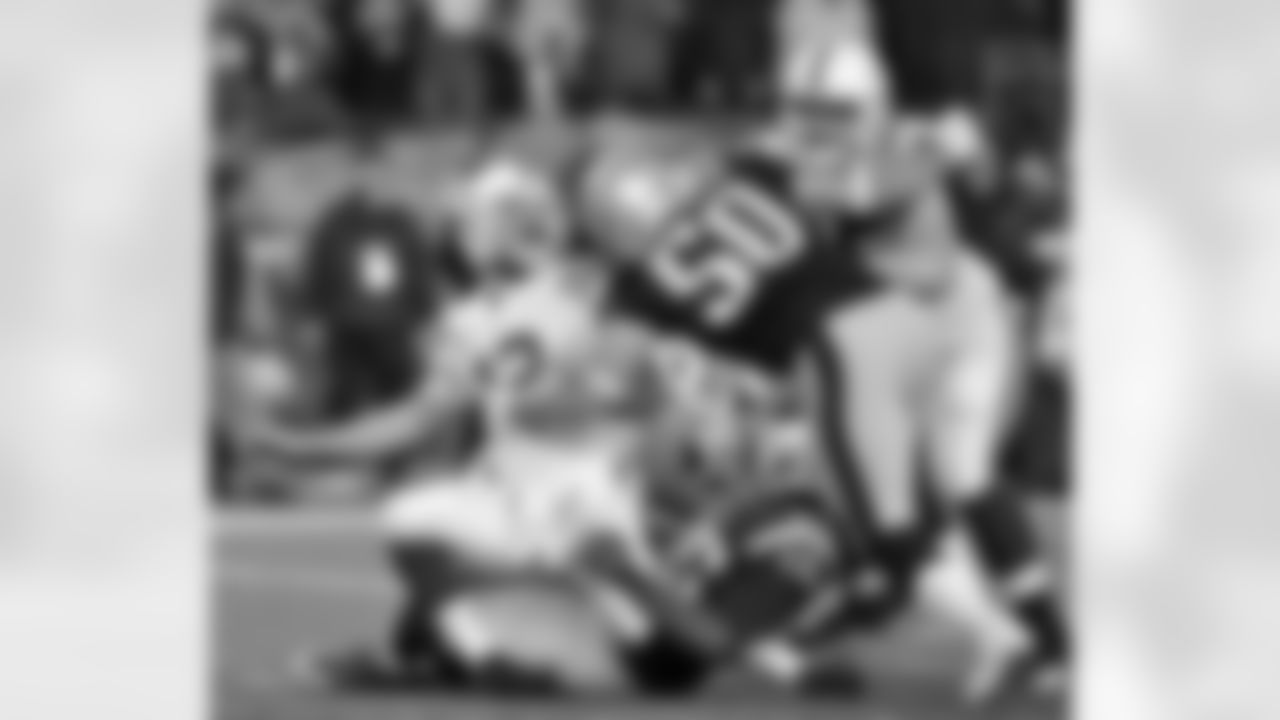
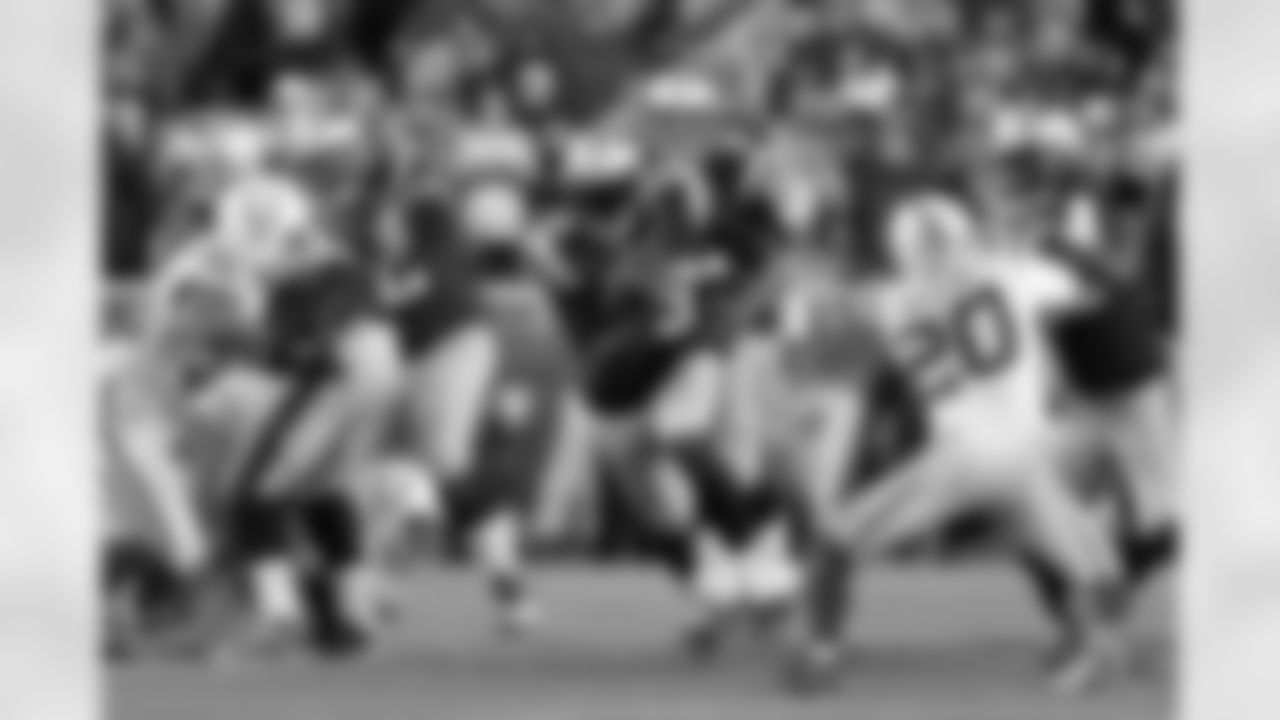
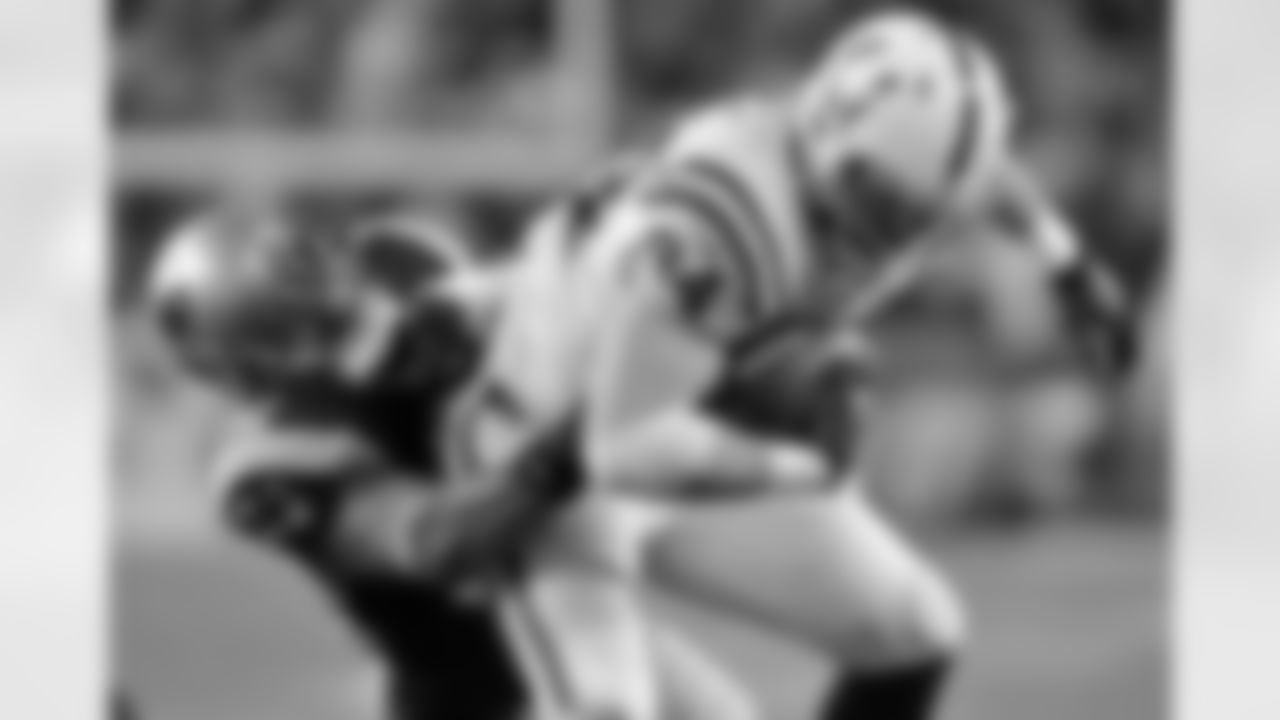
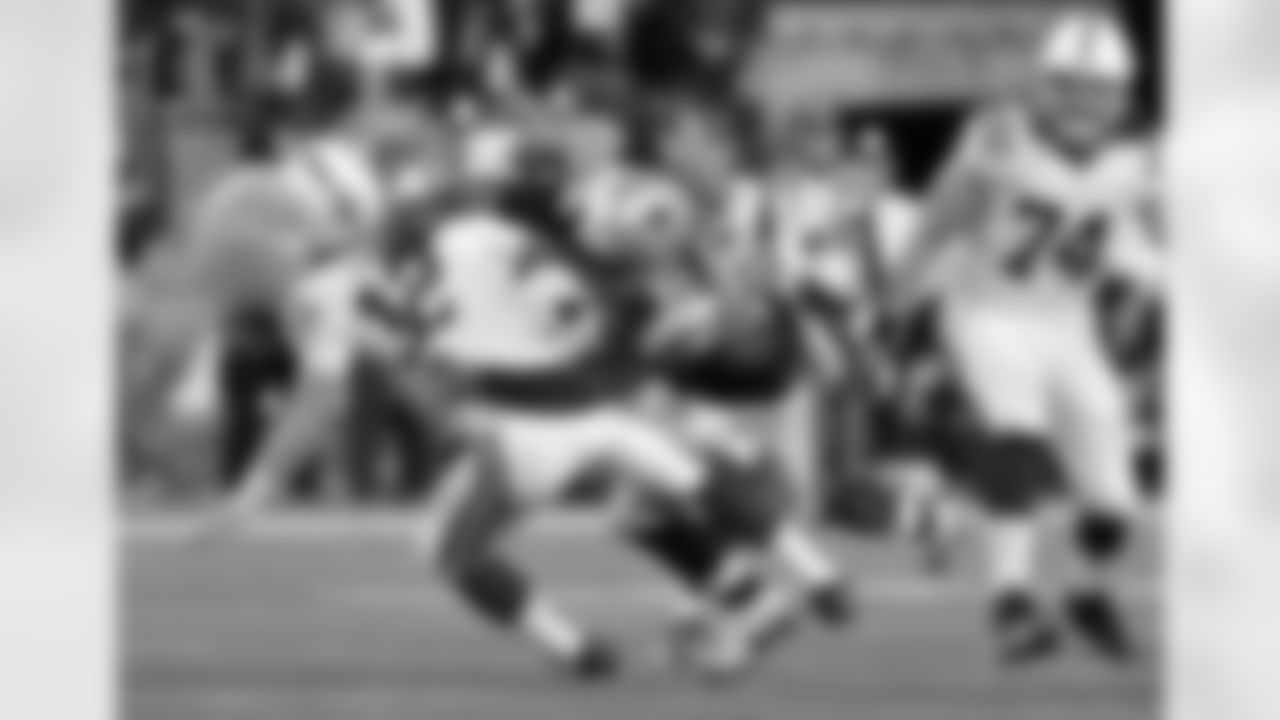
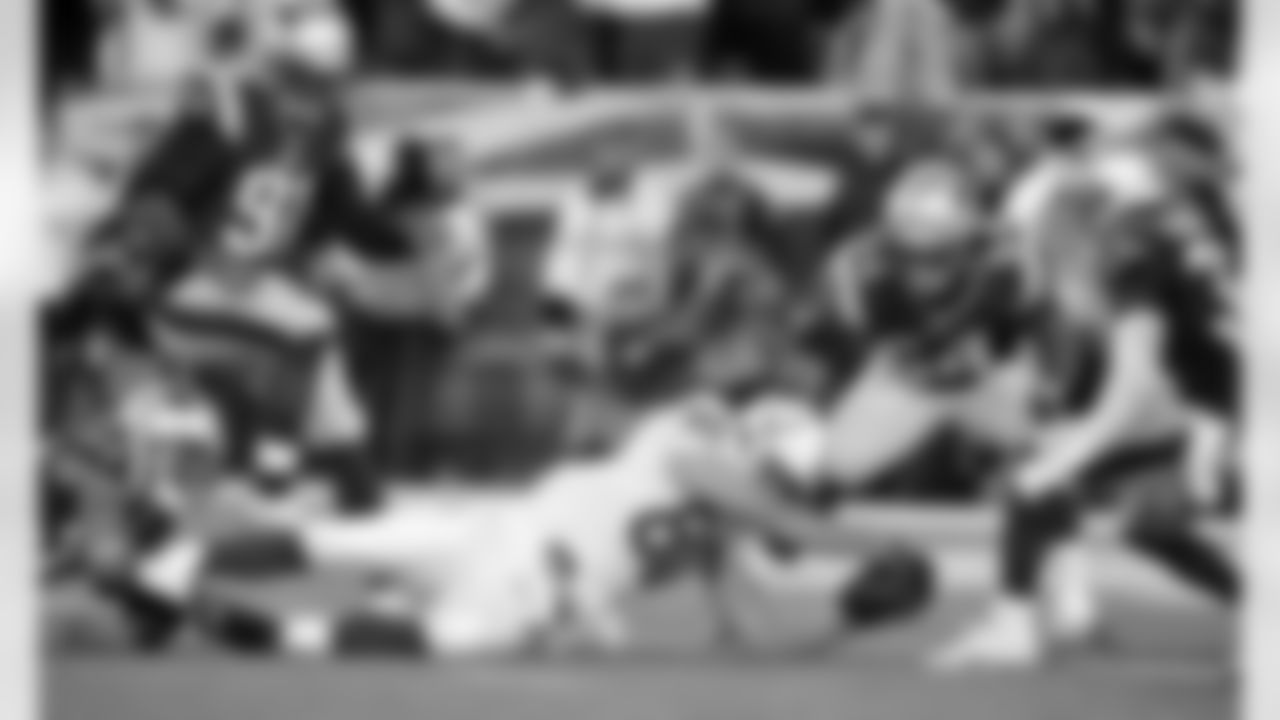

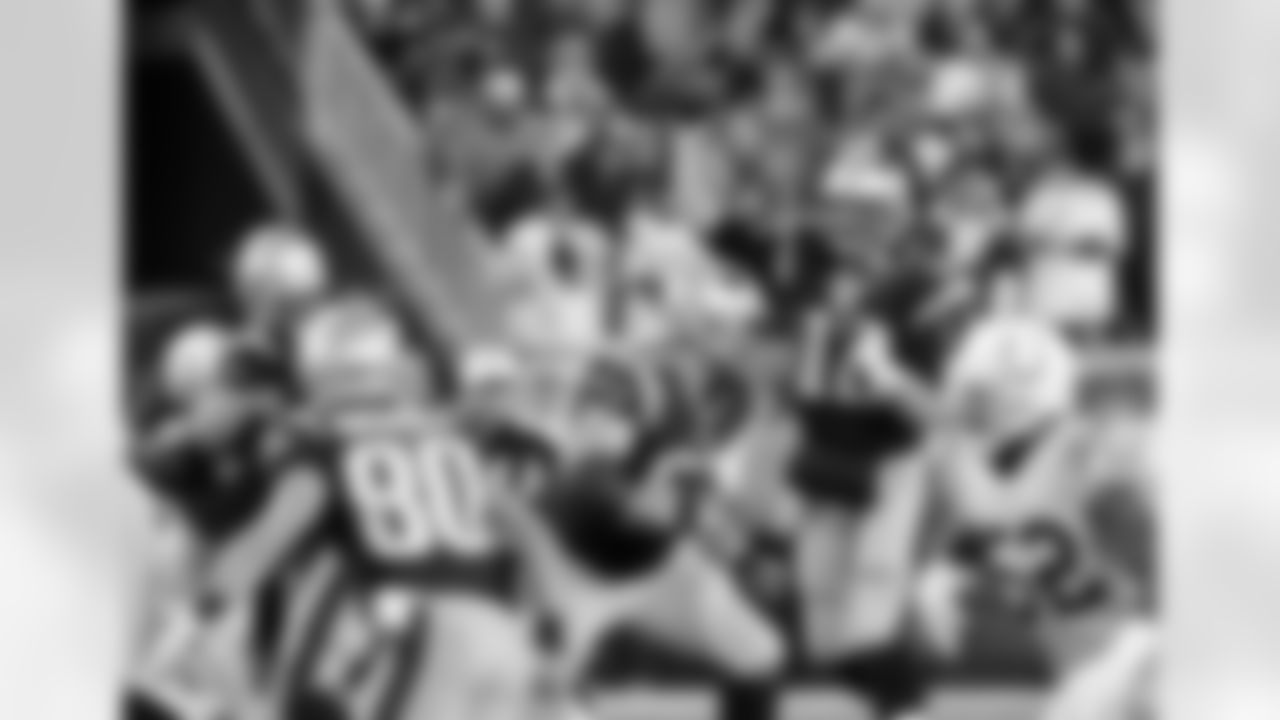
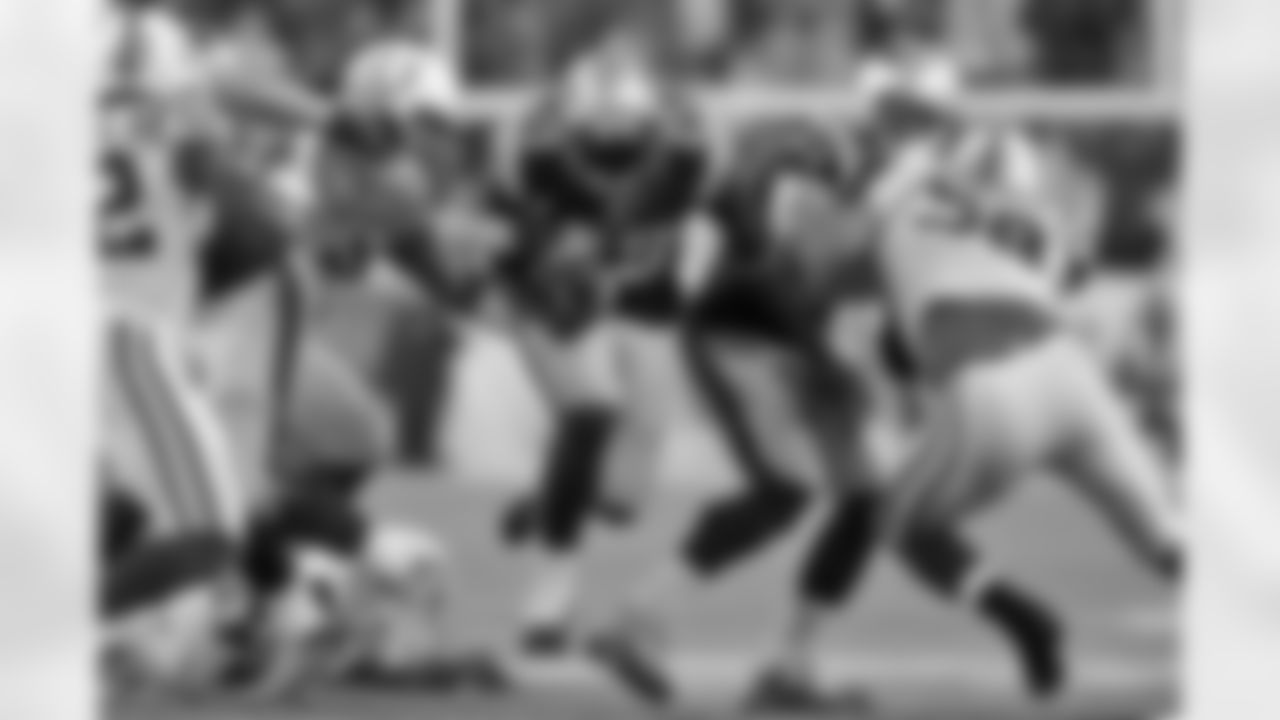
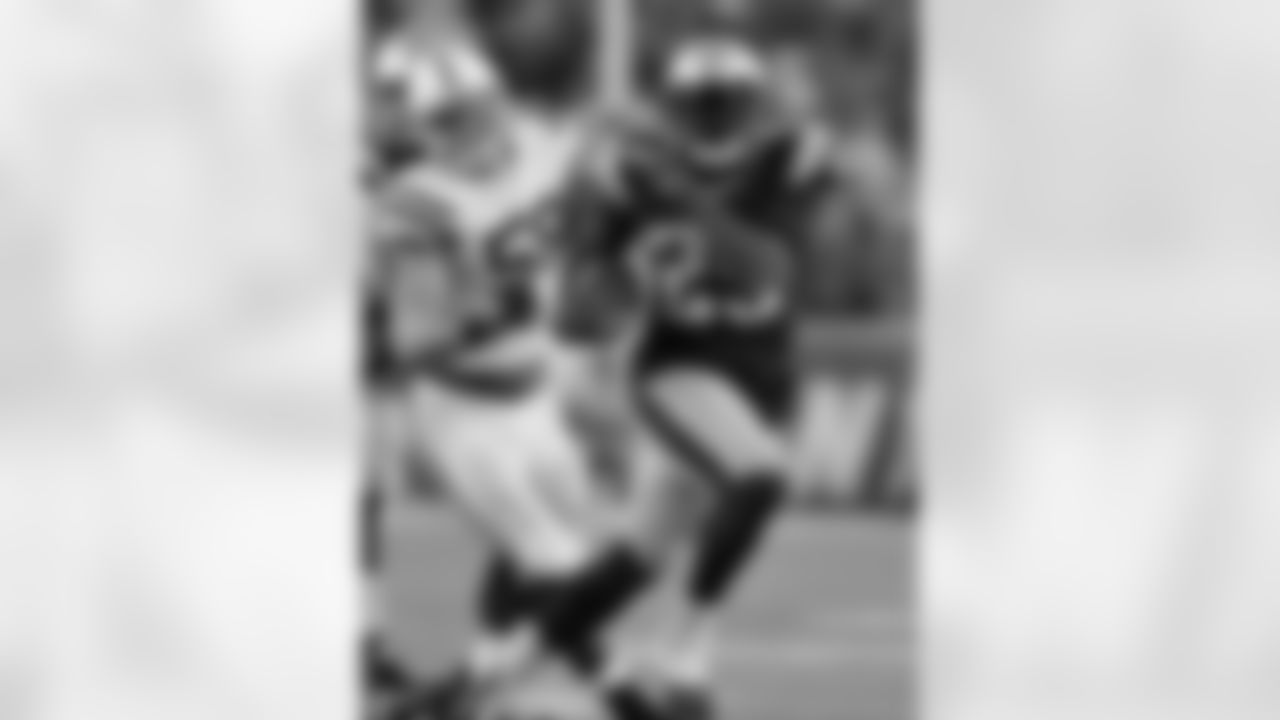
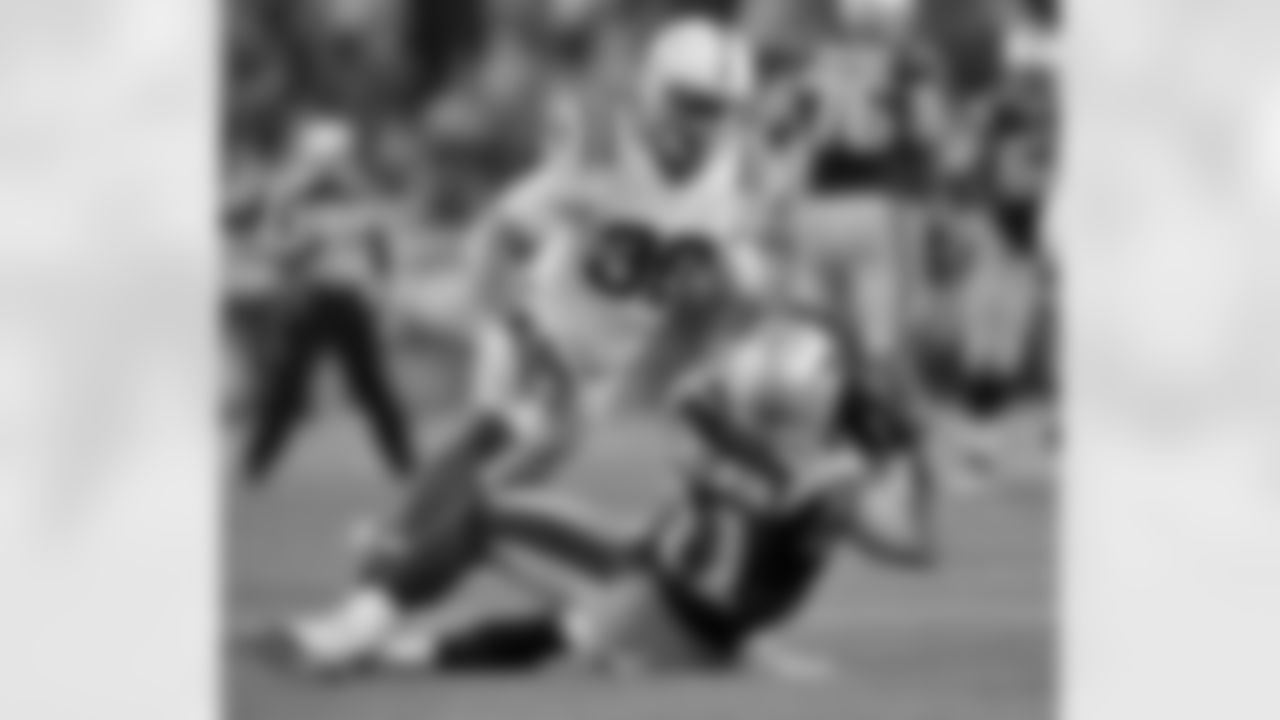
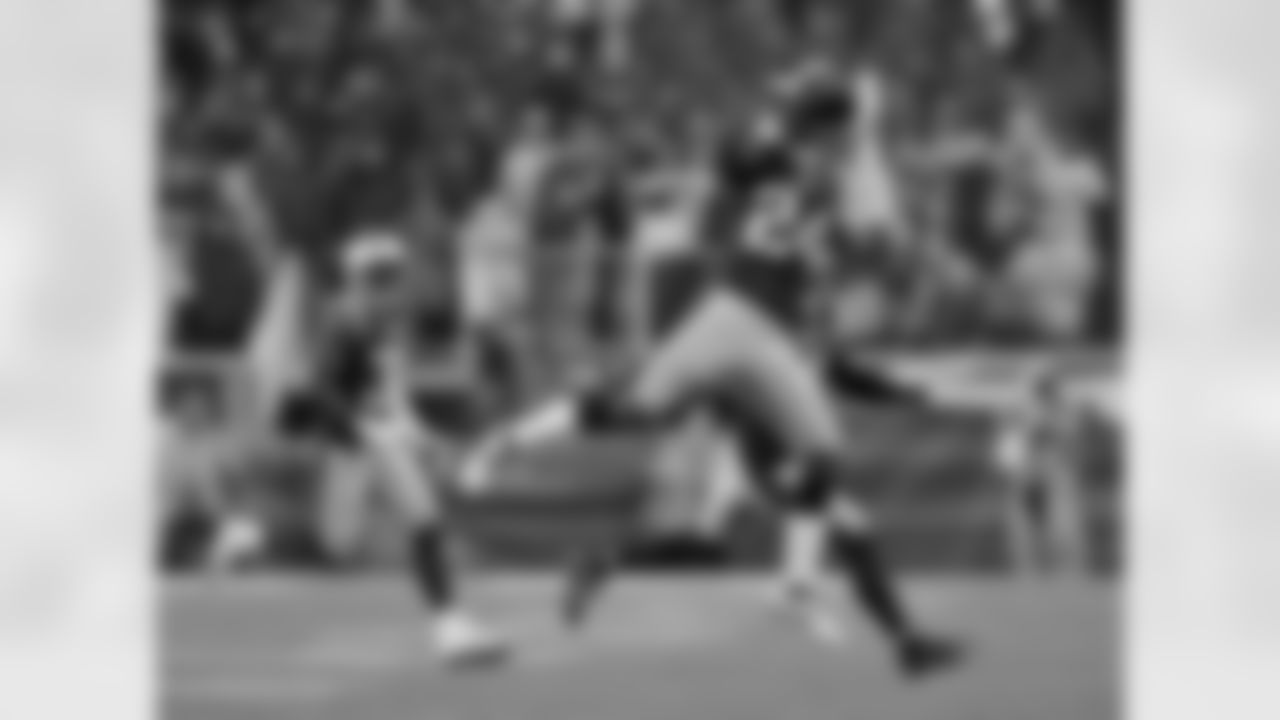
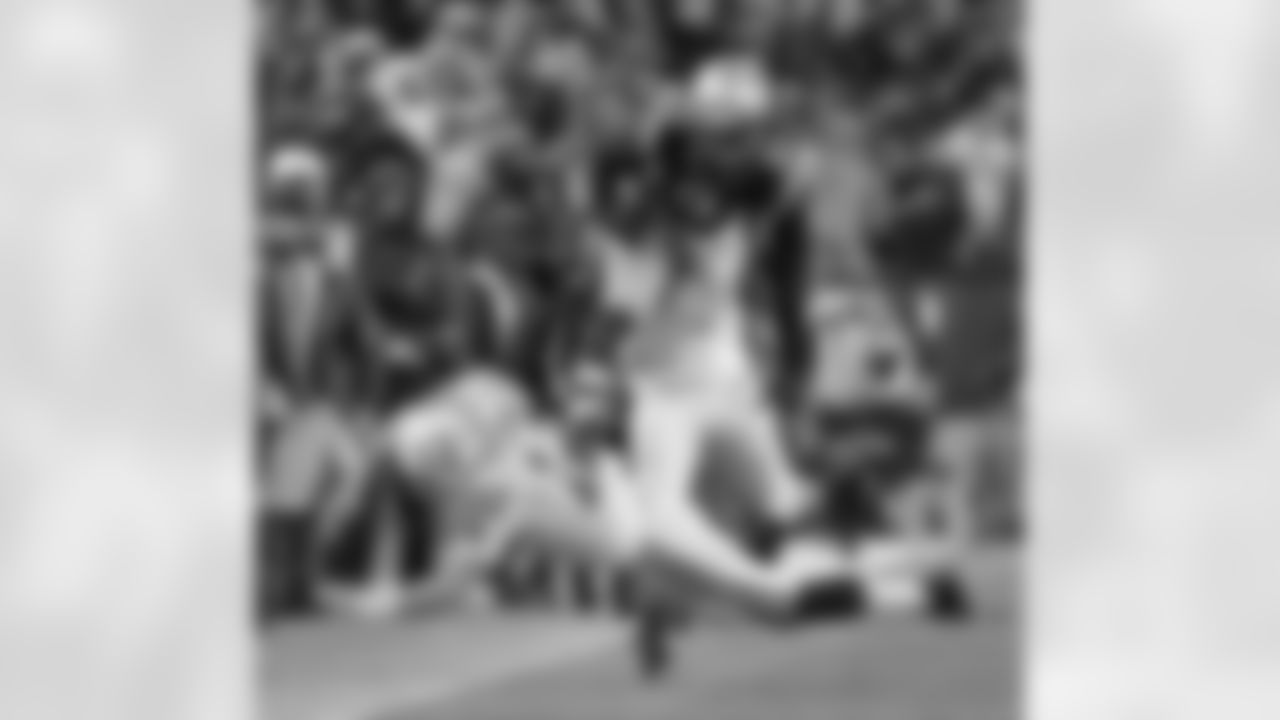
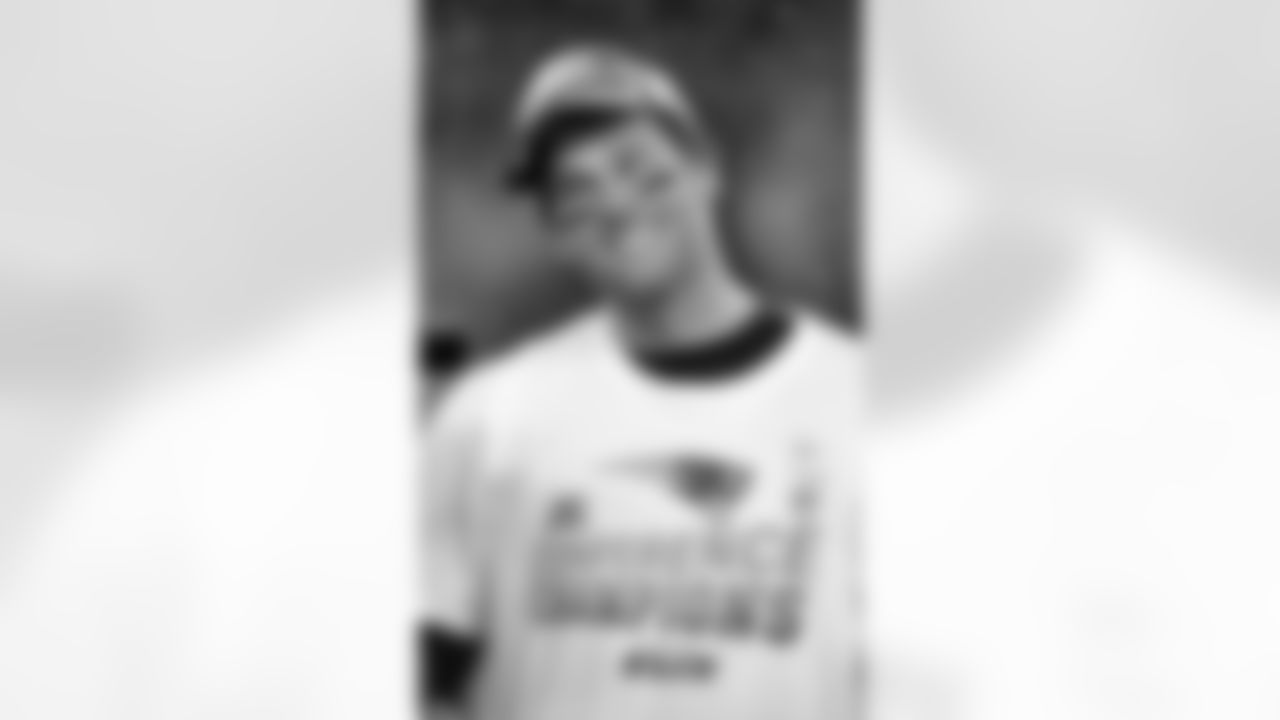
This team was the best team in the AFC in the regular season. We won two games in the playoffs against two good football teams. The best team in the postseason, that's what this team is. I know that because I've been with them every day and I'm proud of this team.
I just want to share with you what I've learned over the past week. I'm embarrassed to talk about the amount of time that I put into this relative to the other important challenge in front of us. I'm not a scientist. I'm not an expert in footballs; I'm not an expert in football measurements. I'm just telling you what I know. I would not say that I'm Mona Lisa Vito of the football world, as she was in the car expertise area, alright?
At no time was there any intent whatsoever to try to compromise the integrity of the game or to gain an advantage. Quite the opposite, we feel like we followed the rules of the game to the letter in our preparations, in our procedures, alright, and in the way that we handled every game that we competitively played in as it relates to this matter. We try to do everything right. We err on the side of caution. It's been that way now for many years. Anything that's close, we stay as far away from the line as we can. In this case, I can say that we are, as far as I know and everything that I can do, we did everything as right as we could do it. We welcome the league's investigation into this matter. I think there are a number of things that need to be looked into on a number of levels, but that's not for this conversation. I'm sure it will be taken up at another point in time.
This is the end of this subject for me for a long time, OK? We have a huge game, a huge challenge for our football team and that's where that focus is going to go. I've spent more than enough time on this and I'm happy to share this information with you to try to tell you some of the things that I have learned over the last week, which I've learned way more than I ever thought I would learn. The process, the whole thing is much more complex – there are a lot of variables that I was unaware of. It sounds simple, and I'm not trying to say that we're trying to land a guy on the moon, but there are a lot of things here that are a little hard to get a handle on. Again, there's a variance in so many of these things, alright? So, I'll take a couple questions and then I'm moving on.
Q: Did the NFL share with you the pregame documented PSI?
BB: You would have to talk to the NFL about anything they did or didn't do.
**
Q:** You don't know if they documented it?
BB: Look, we could sit here and talk about some of this stuff for two hours, alright? If you want to ask the league any questions about what they do or don't do you should ask the league. I'm just telling you what I've learned and the study that we've done and the experience that I've had over the last few days in looking into this matter. That's all I can tell you. I'm not a scientist and I'm not a league official.
Q: Do you feel like after the amount of work and research you've put into this this week you'll be exonerated from all this?
BB: I just told you what I think. That's what I think right there.
Q: Has your game preparation been compromised at all? I know you usually spend this week in game planning.
BB: Well, I've spent a lot of the week in game planning – a lot of this week, yeah.
**
Q:** Do you feel like any of it has been compromised?
BB: Look, I told you: I thought this was an important issue and we addressed it, so we did.
Q: It sounds like according to your simulation, it's a combination of atmospheric or weather conditions and then trusting that the officials did inflate the footballs to 12.5 PSI. Is that correct?
BB: Well, look, you can take the atmospheric conditions out of it because if the footballs are measured in the same atmospheric conditions then it's a non-factor. But if you measure a football in a controlled condition like this and you measure a football on, let's say, the night we played Baltimore, there's no way they're the same. You take that football and you set it outside and the football becomes accustomed to those climatic conditions and those temperatures, there's no way it's the same. Now if you take it out and bring it back in and let it sit for X amount of time, then it probably is the same. So no, that's not the issue. But depending on where footballs were measured and how they were measured, that's a whole other discussion. No, the situation is the preparation of the football caused the football to, I would say, be artificially high in PSI when it was set to the regulation, regulated level. And then it reached its equilibrium at some point later on, an hour, two hours into the game into the pregame, whatever it was – and that level was below what was set in this climatic condition. I think that's exactly what happened. And I think that anybody who wants to do those experiments should go ahead and do them themselves. Don't take my word for it. But I'm telling you, we're trying to get an answer to this and that's what we have.
**
Team photographer, Keith Nordstrom, offers his best photos from the Patriot divisional playoff game against the Baltimore Ravens at Gillette Stadium on Saturday, January 10, 2015.
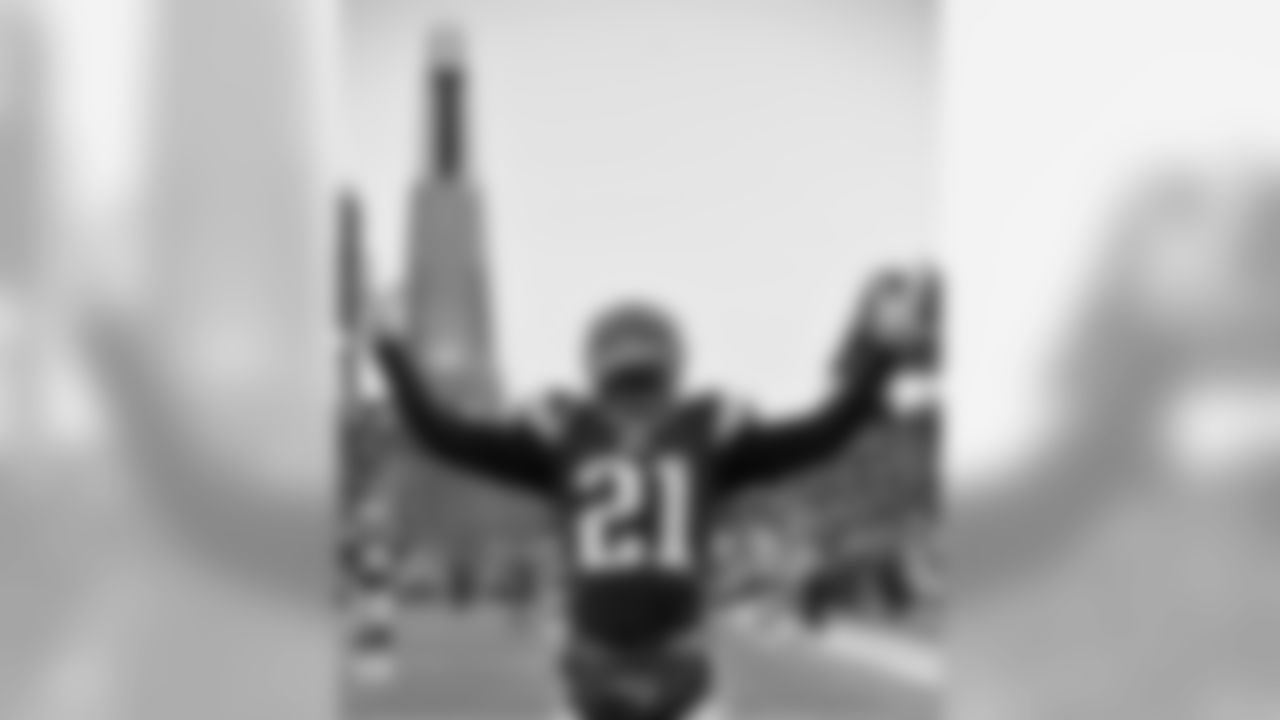
Rob Goon, Gordie Gronkowski, Jr., Ted Dziuba, Rob Gronkowski and Dan Bonato
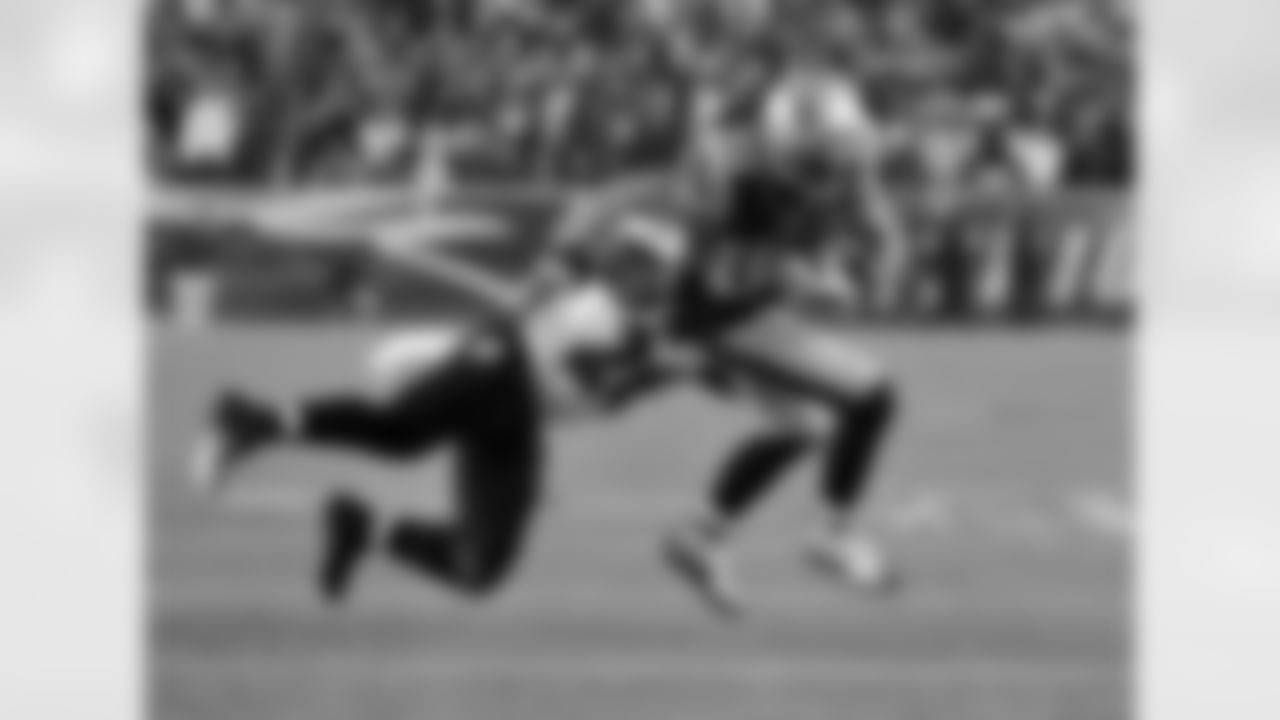
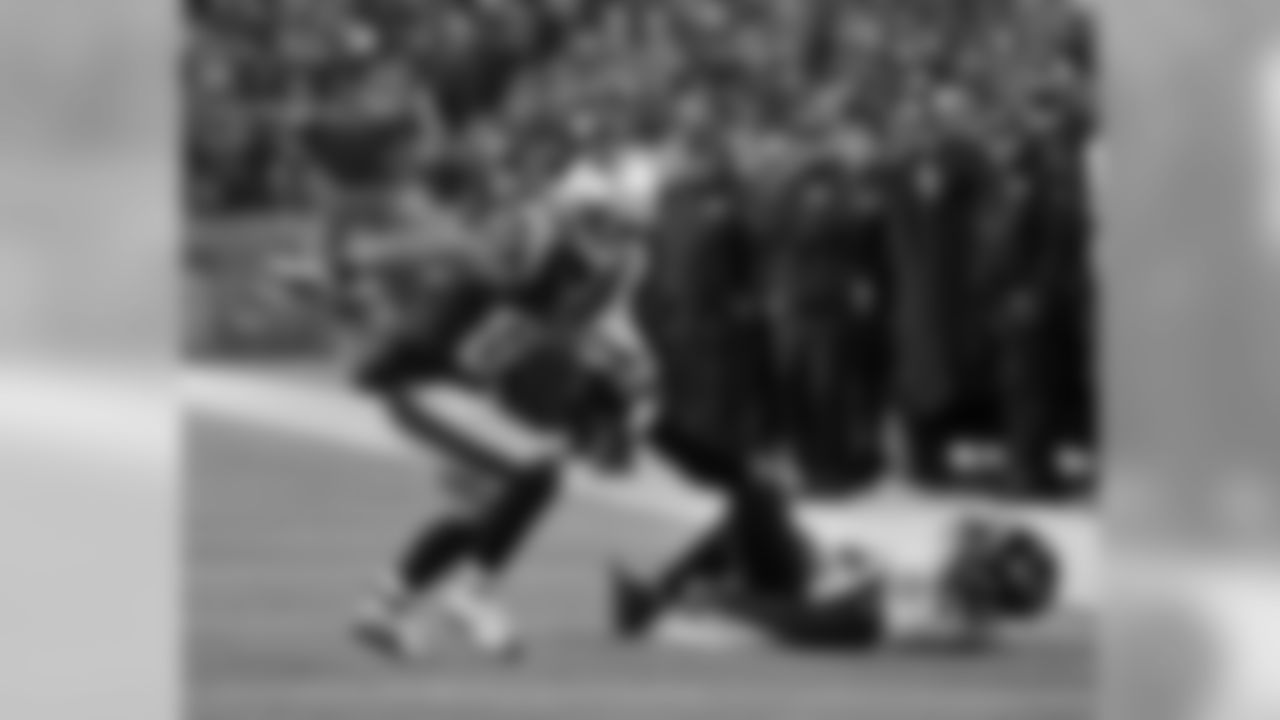
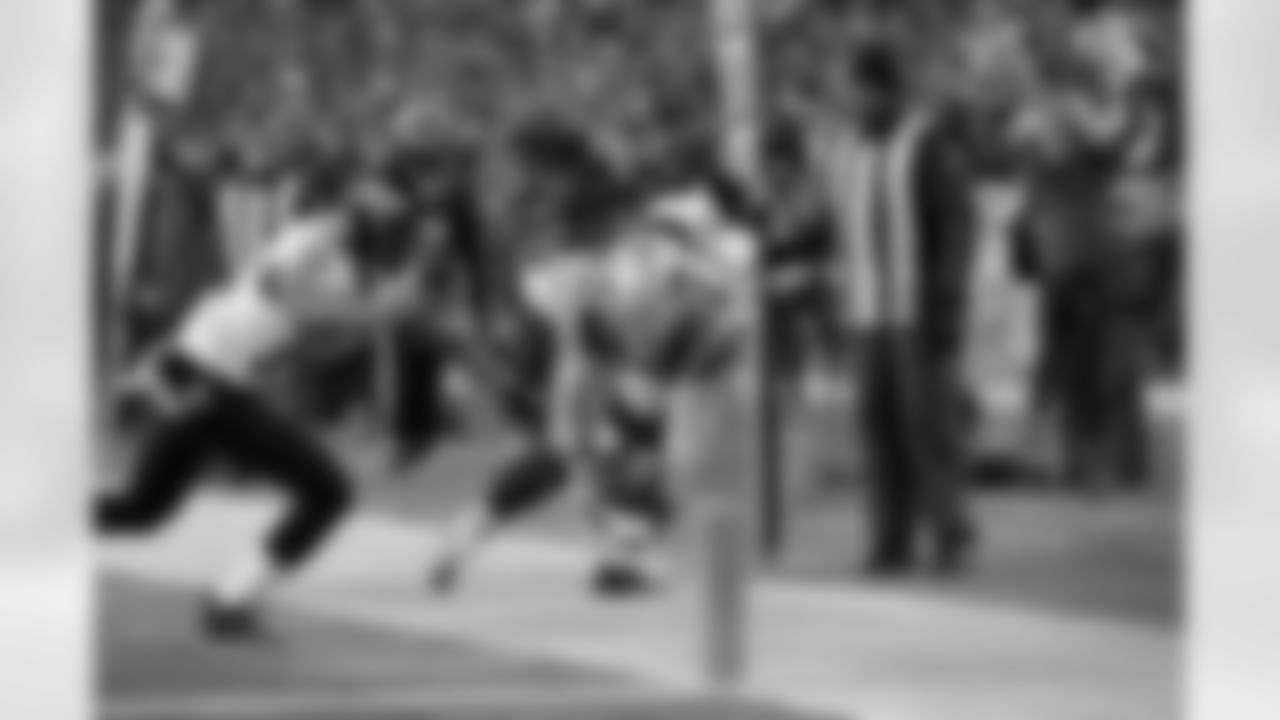
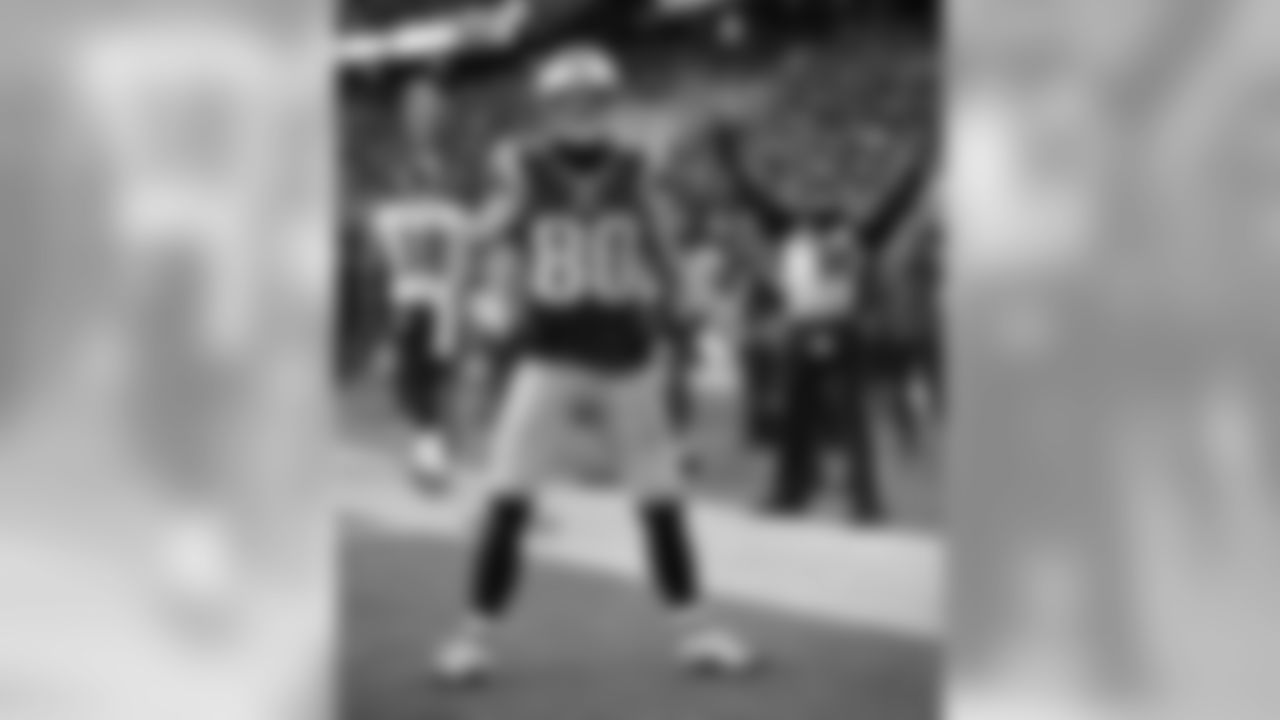
Gordie Gronkowski, Jr., Dan Bonato, Rob Gronkowski, Ted Dzibua and Rob Goon.
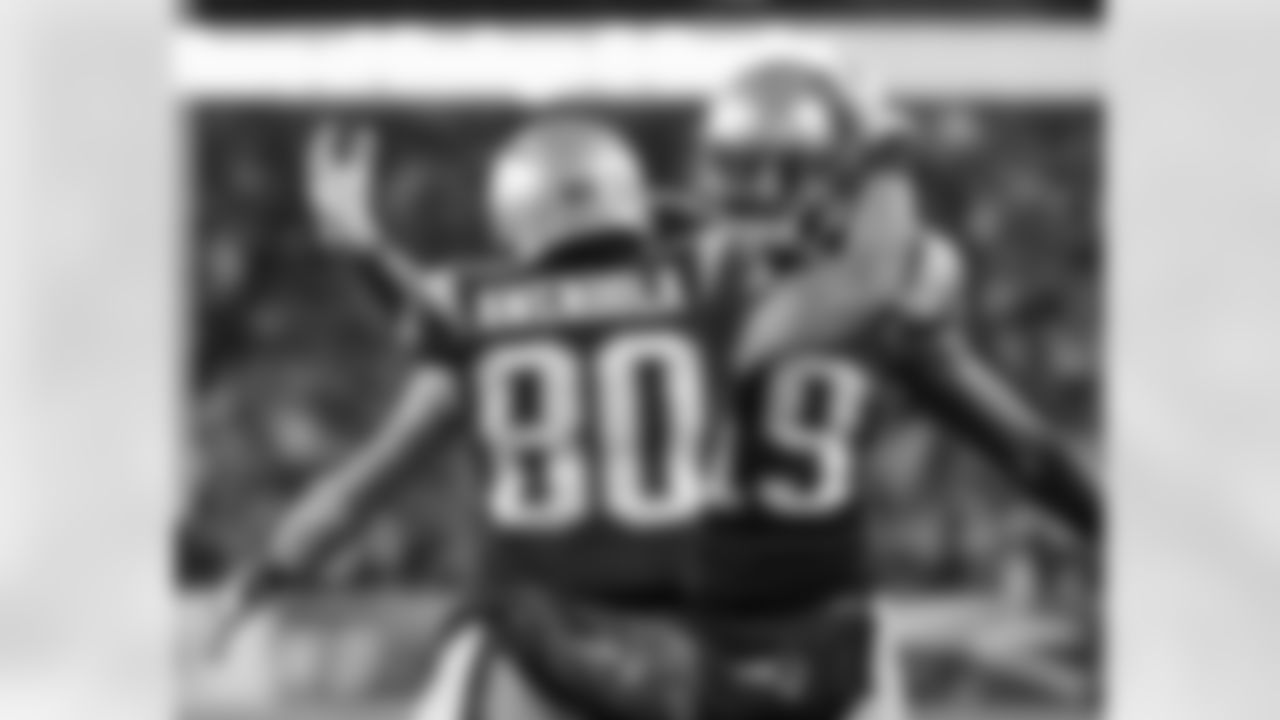
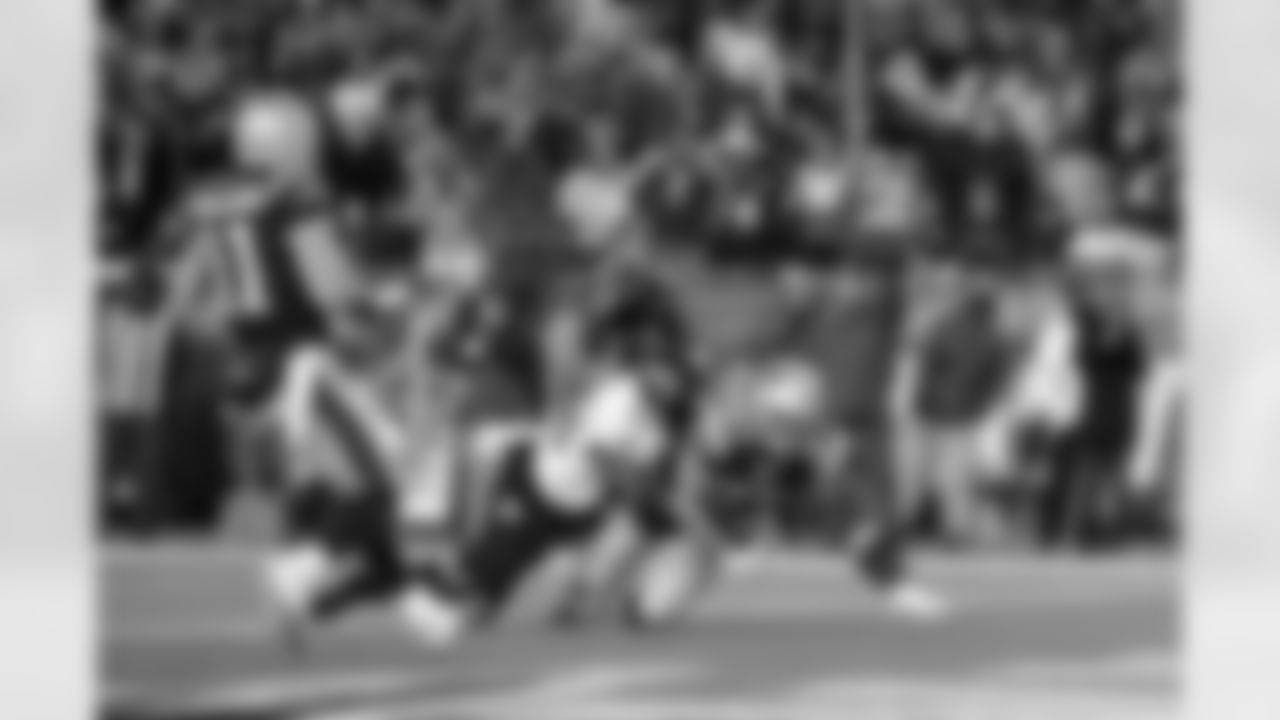
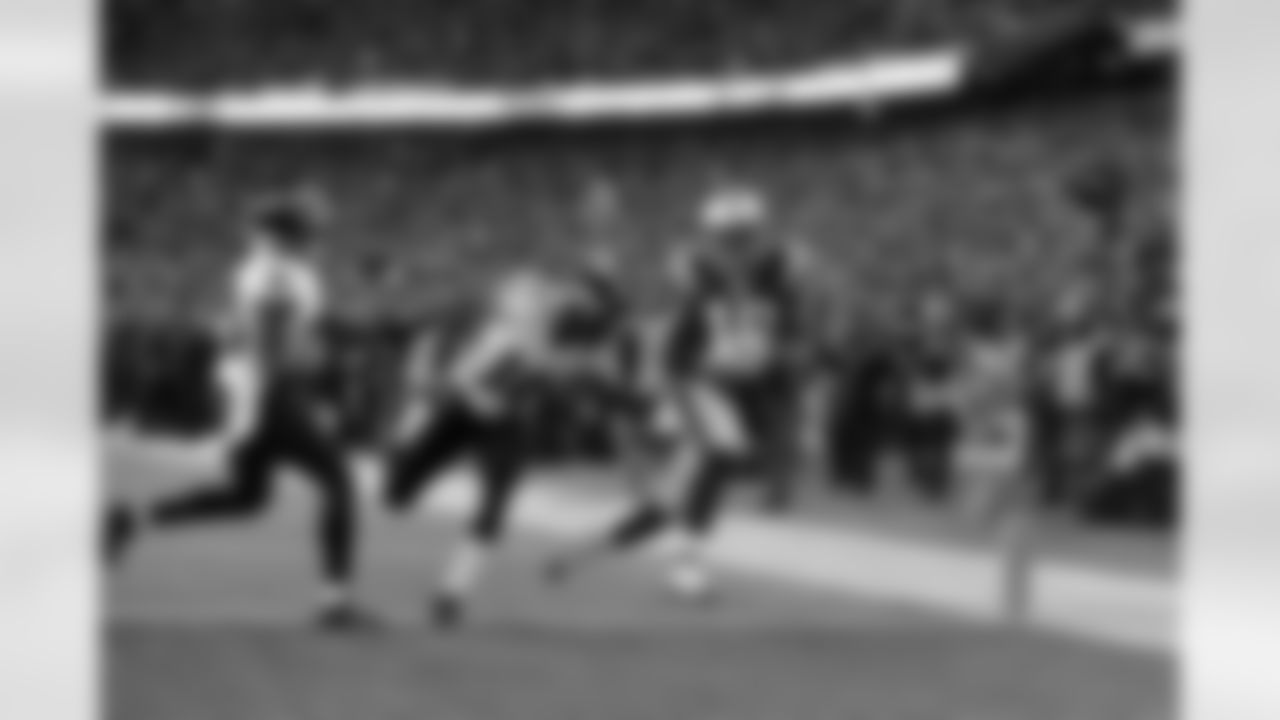
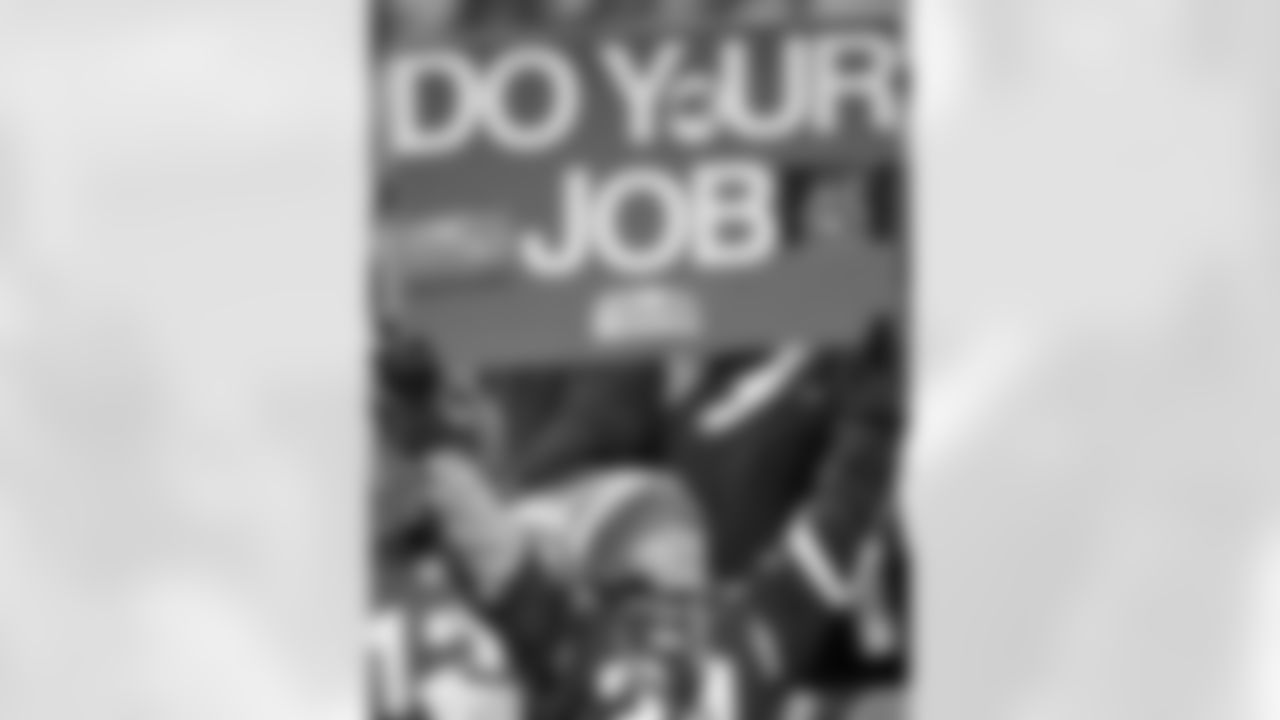
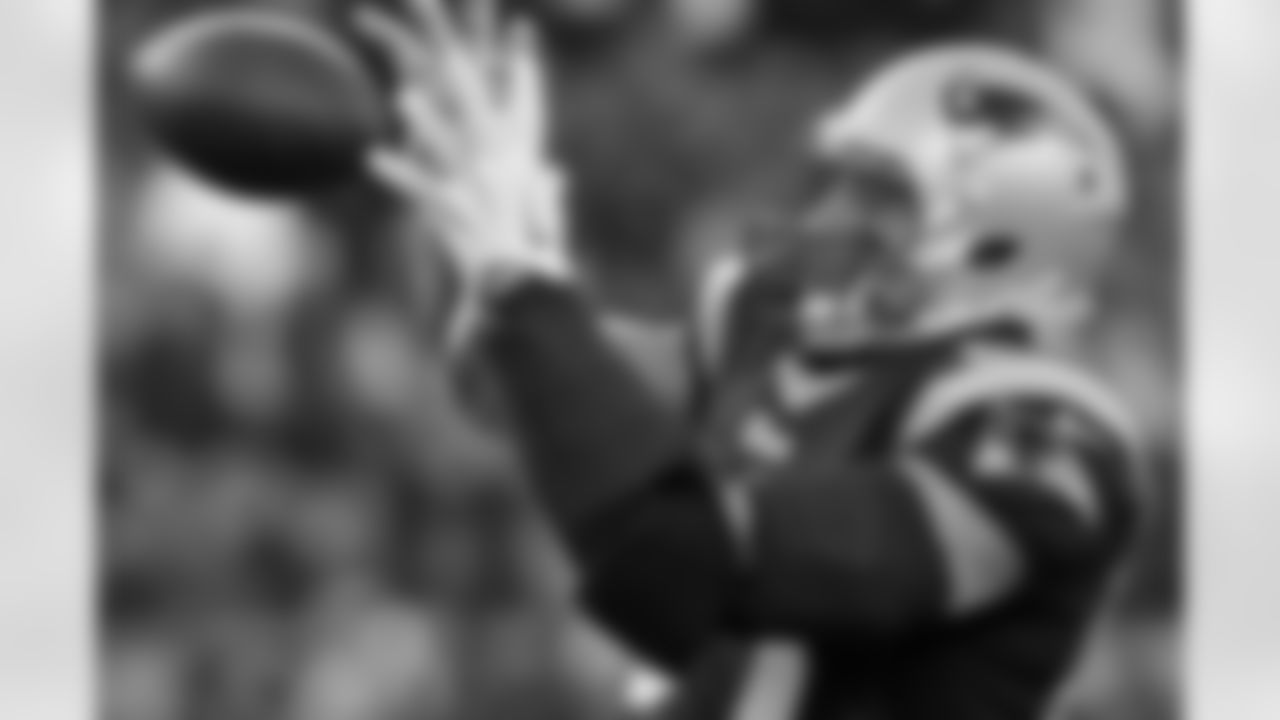
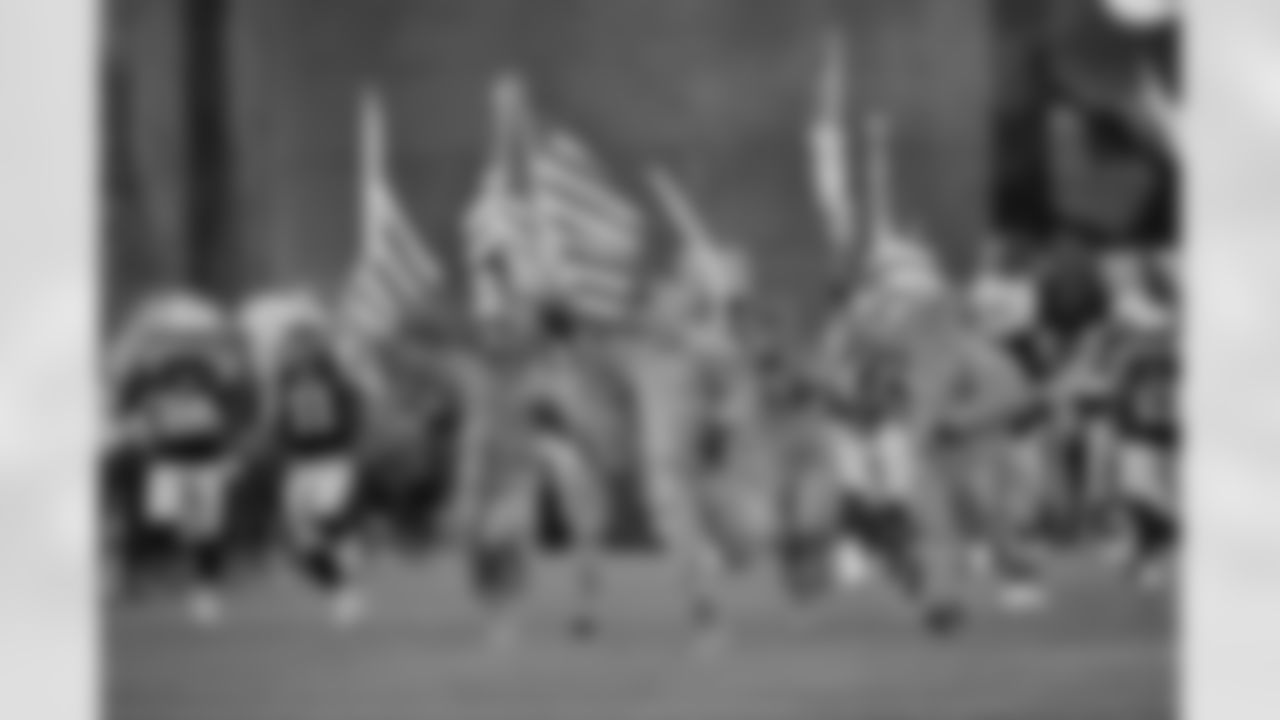
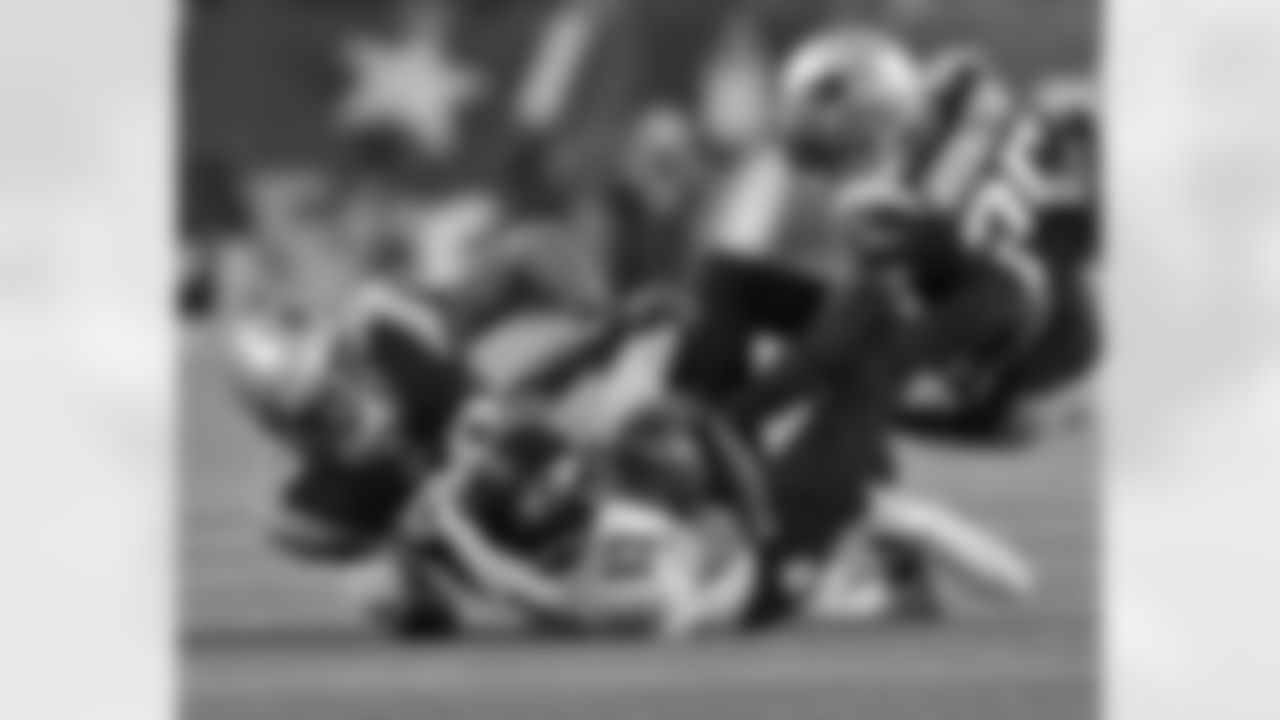
Nate Solder
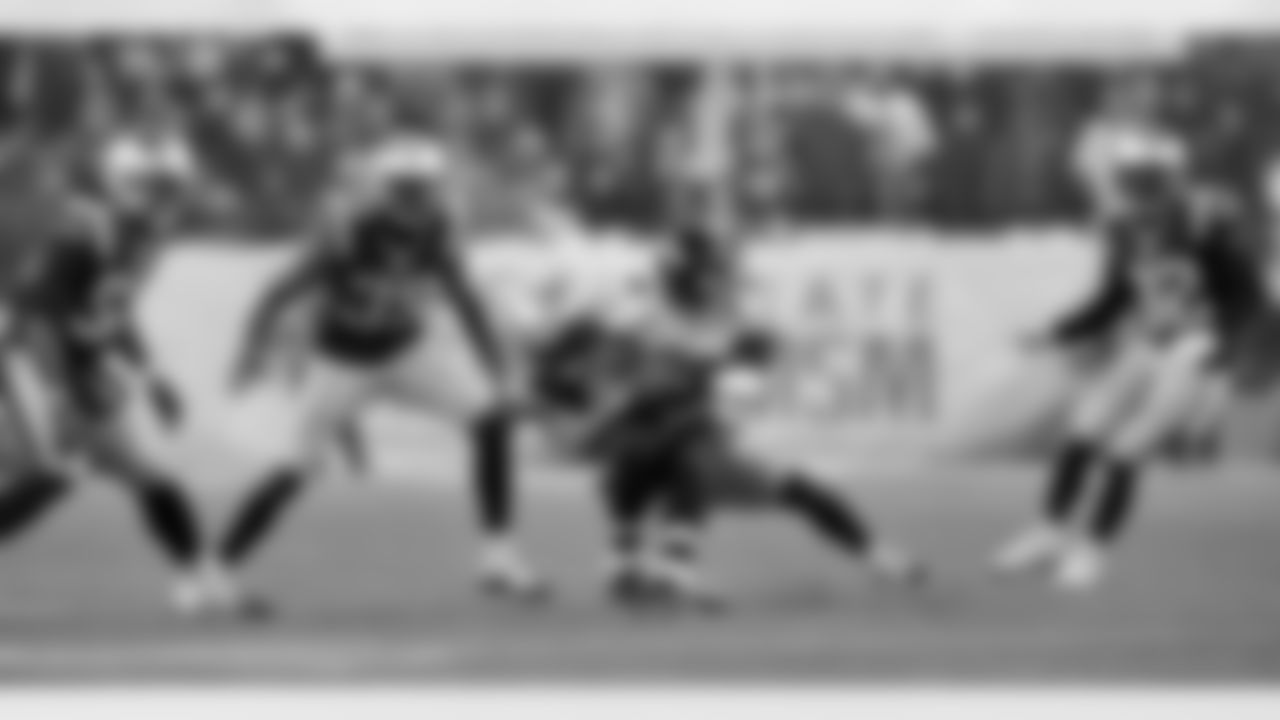
Nate Solder
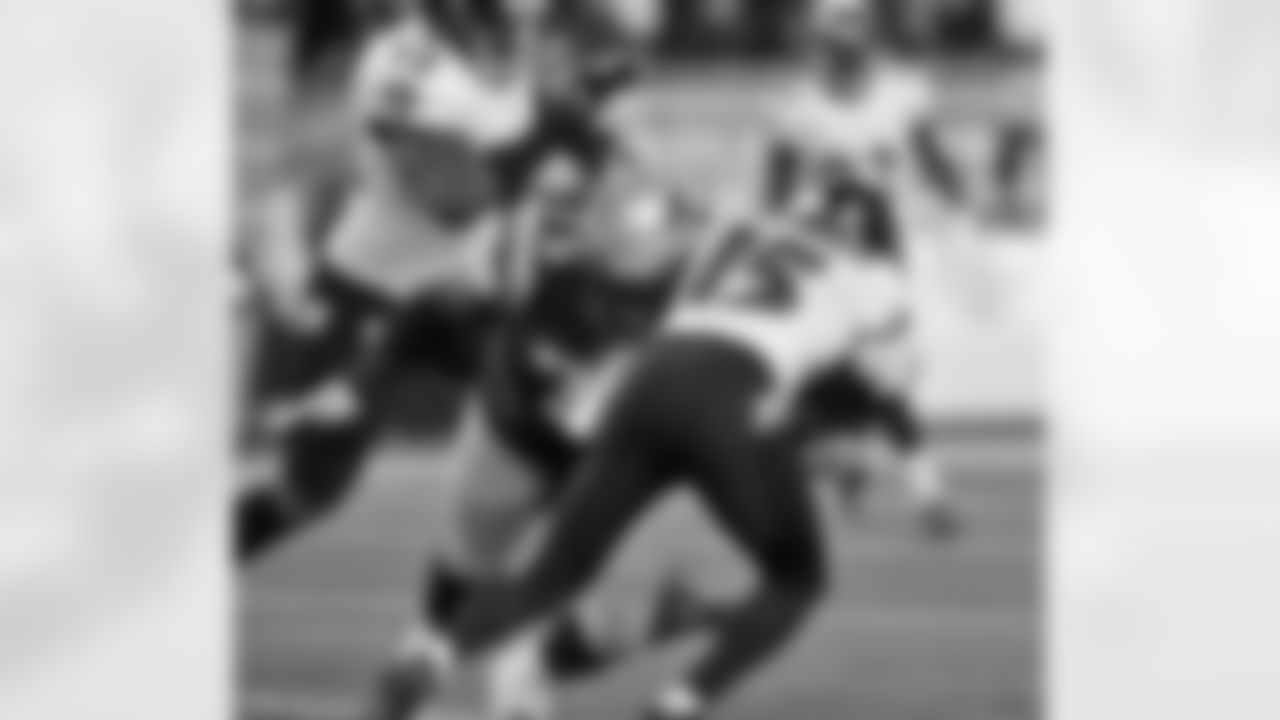
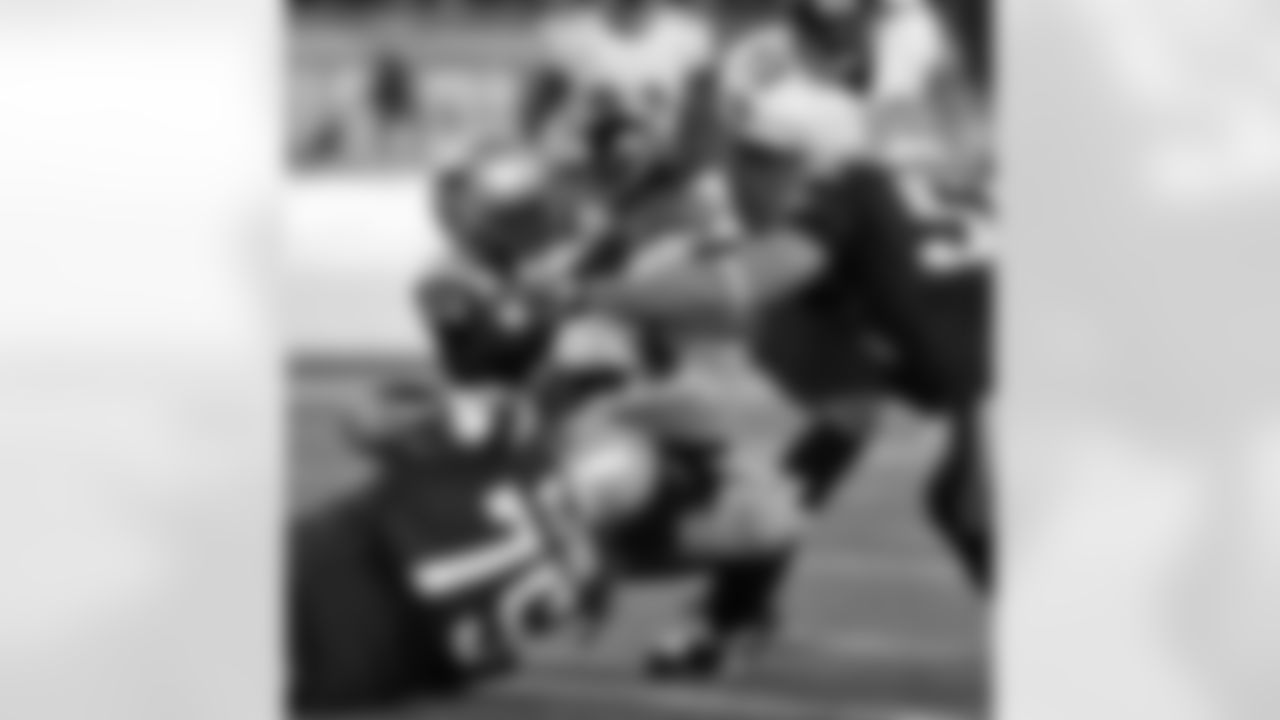
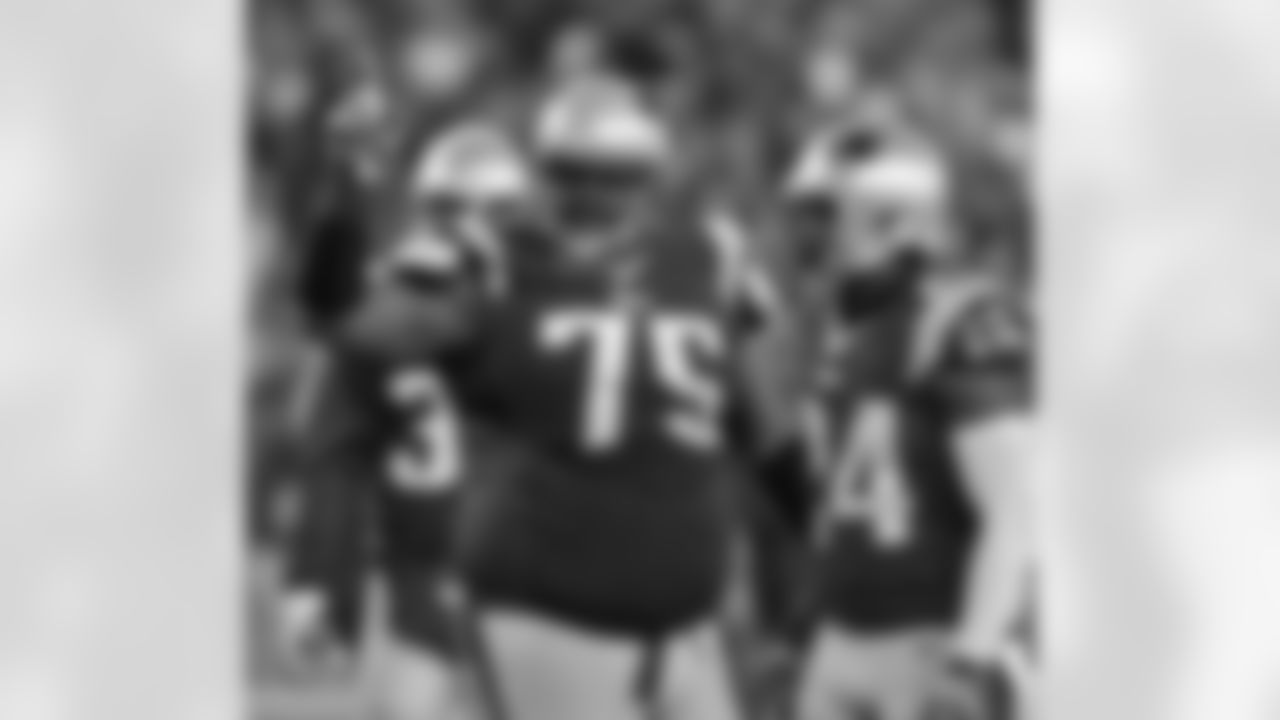
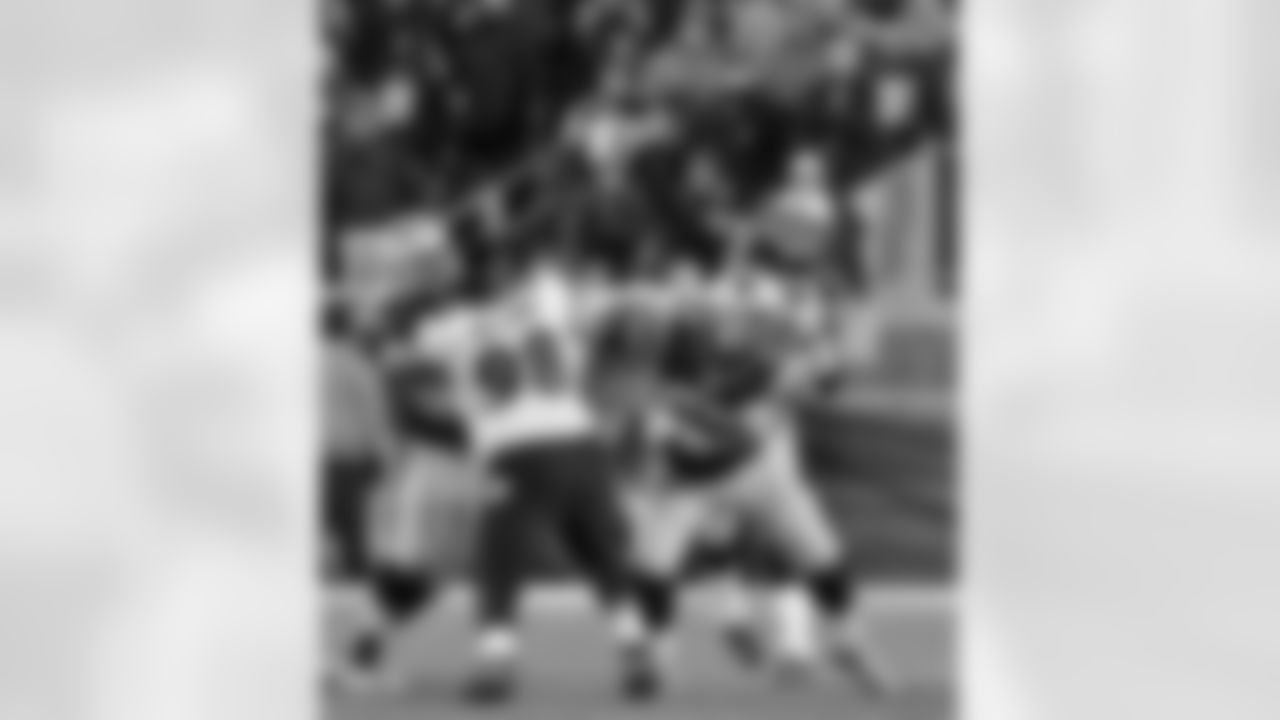
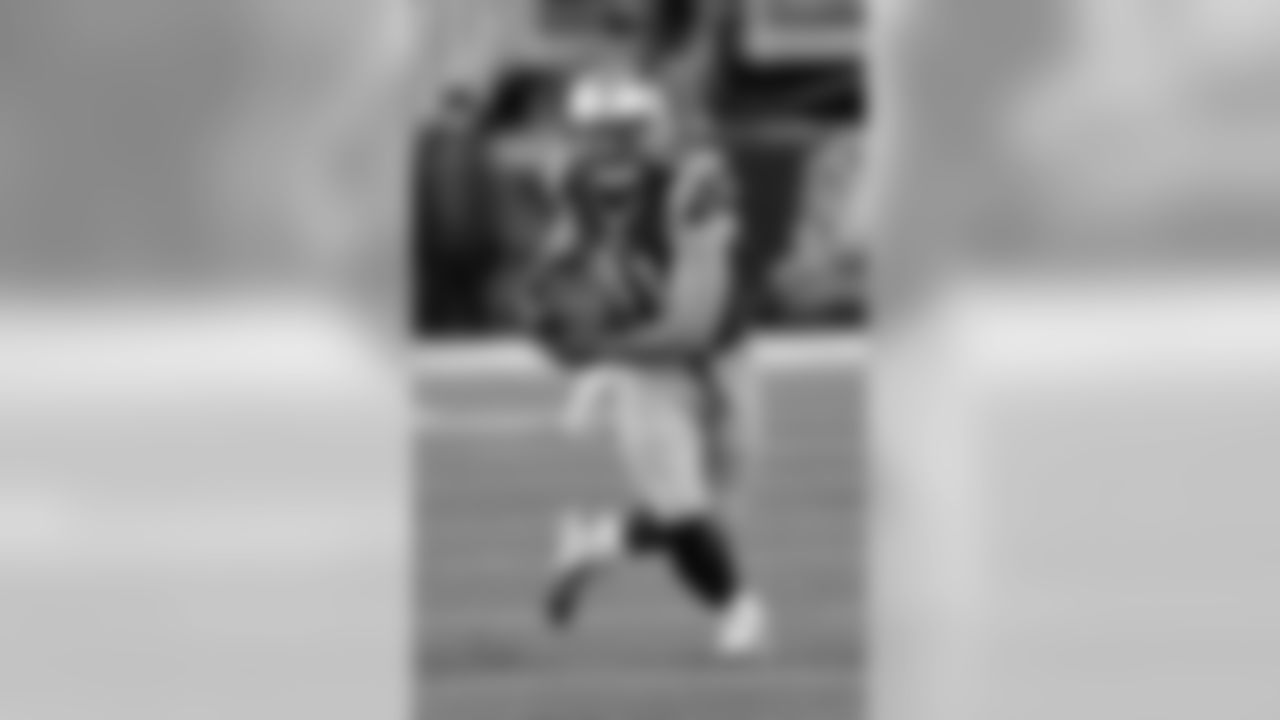
New England Patriots vs Baltimore Ravens in NFL Divisional playoff game at Gillette Stadium, January 10, 2015.

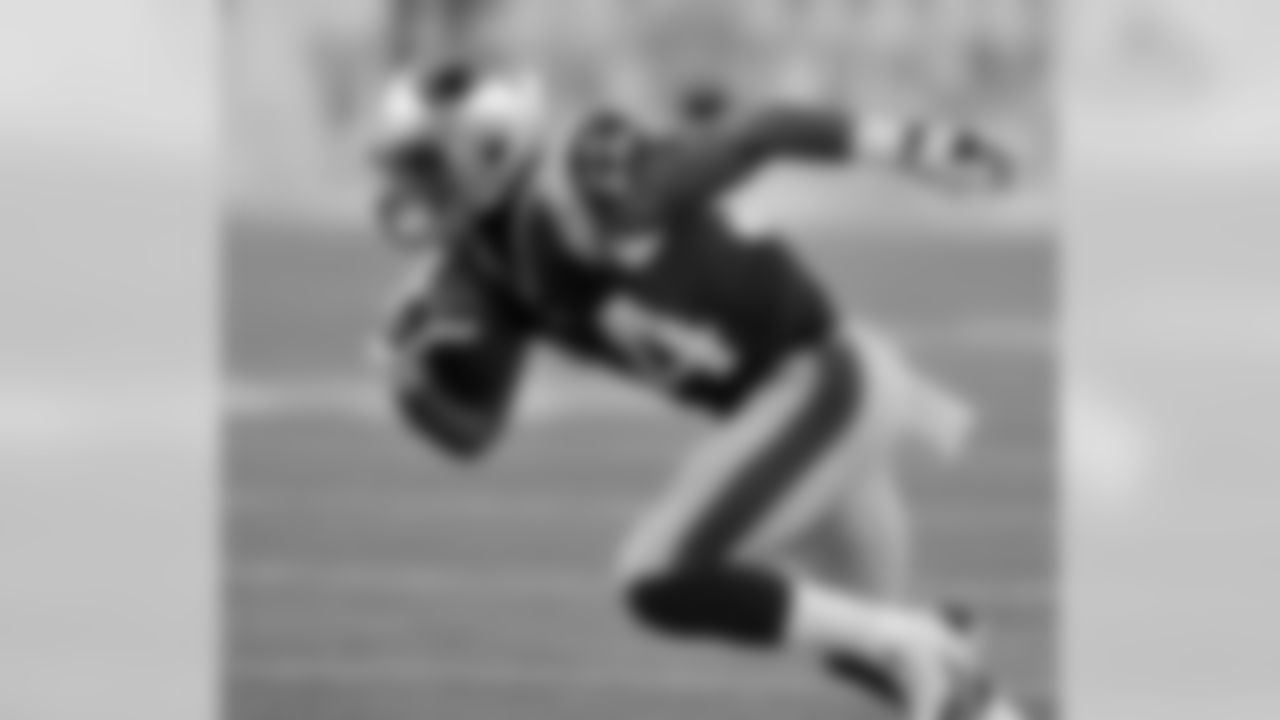
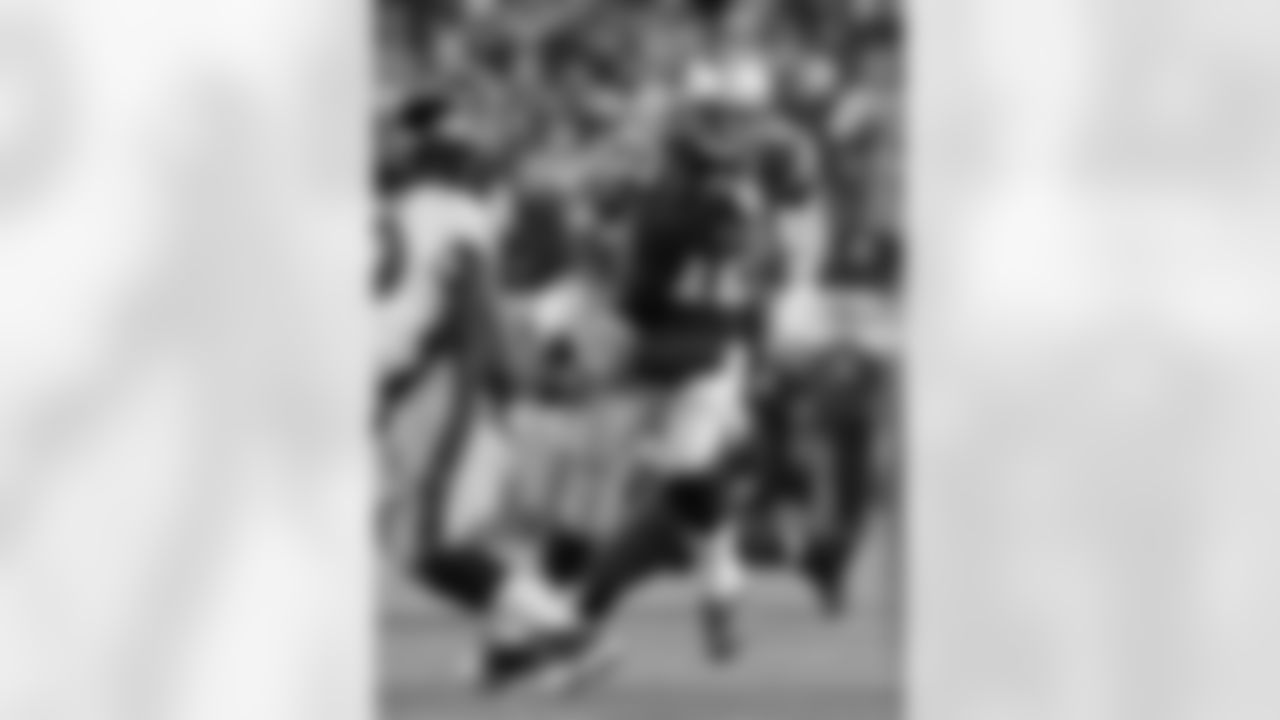
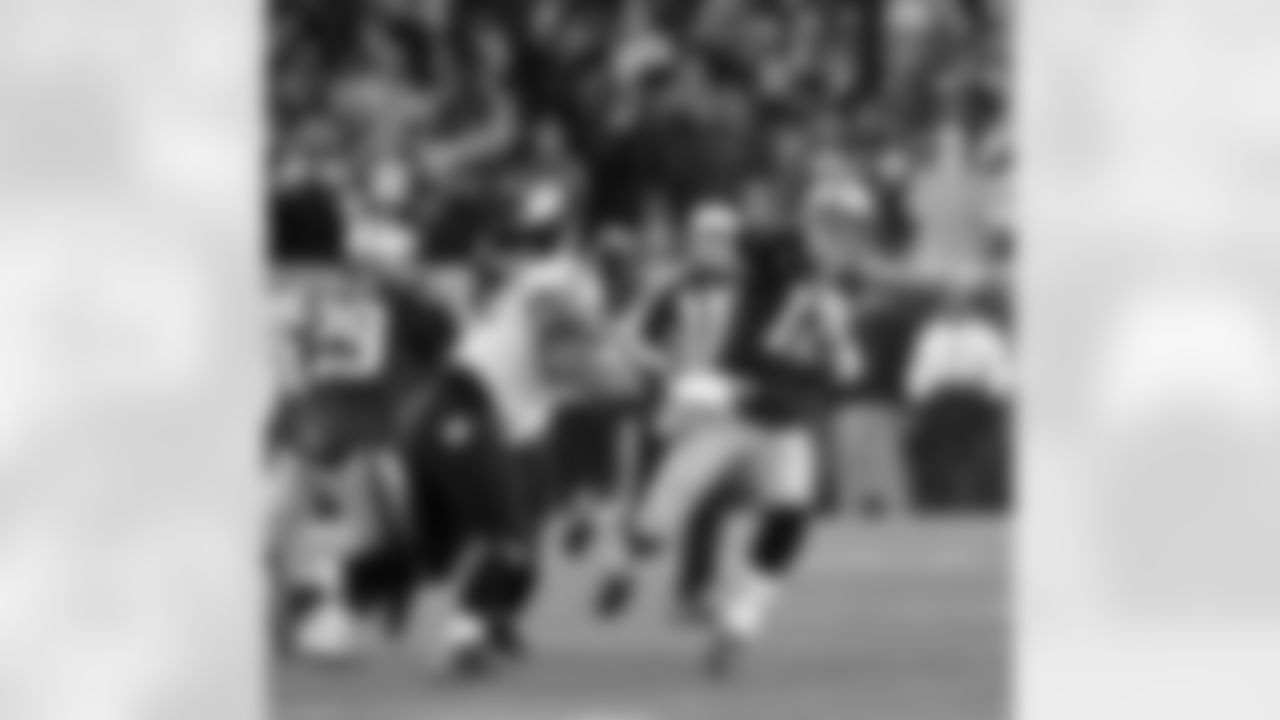
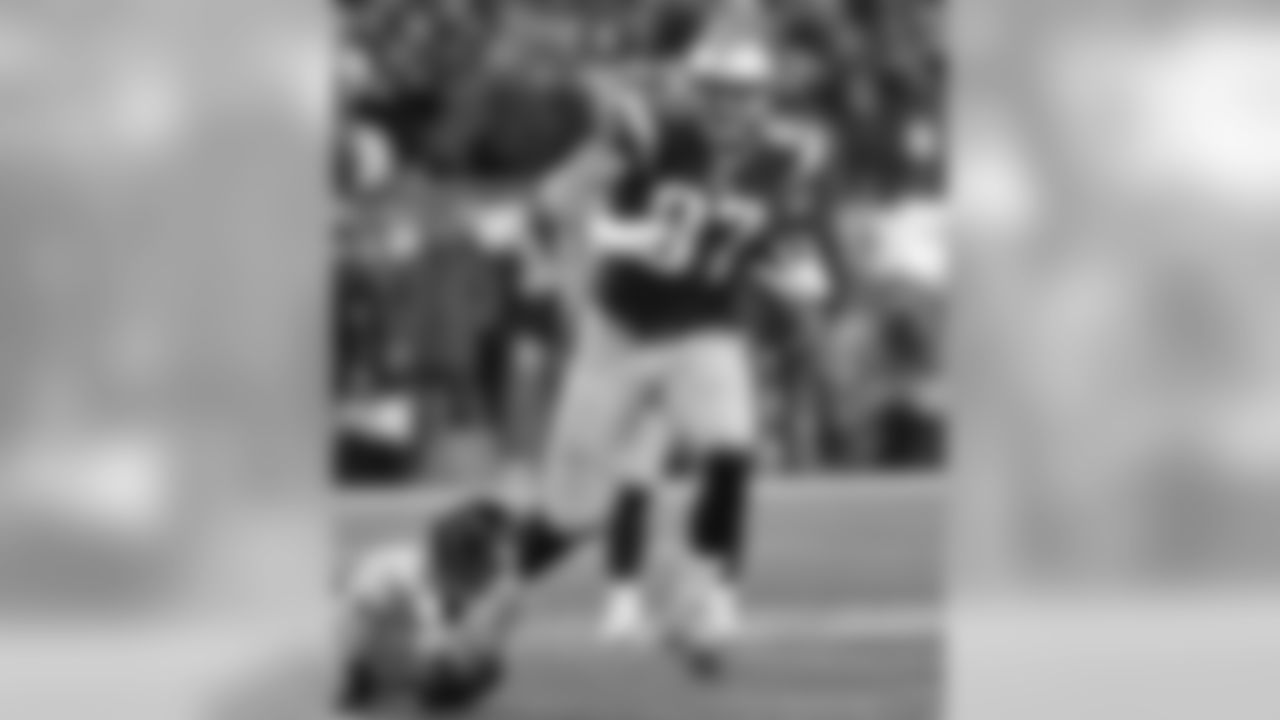
New England Patriots vs Baltimore Ravens in NFL Divisional playoff game at Gillette Stadium, January 10, 2015.
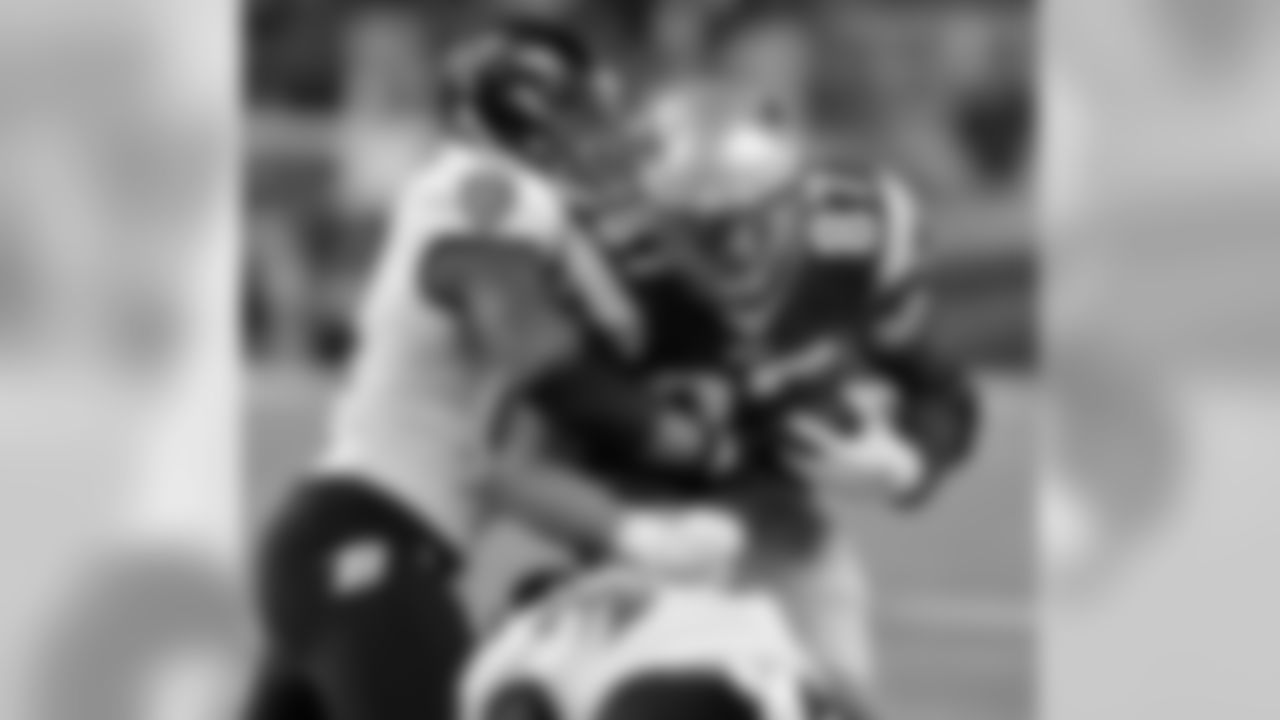
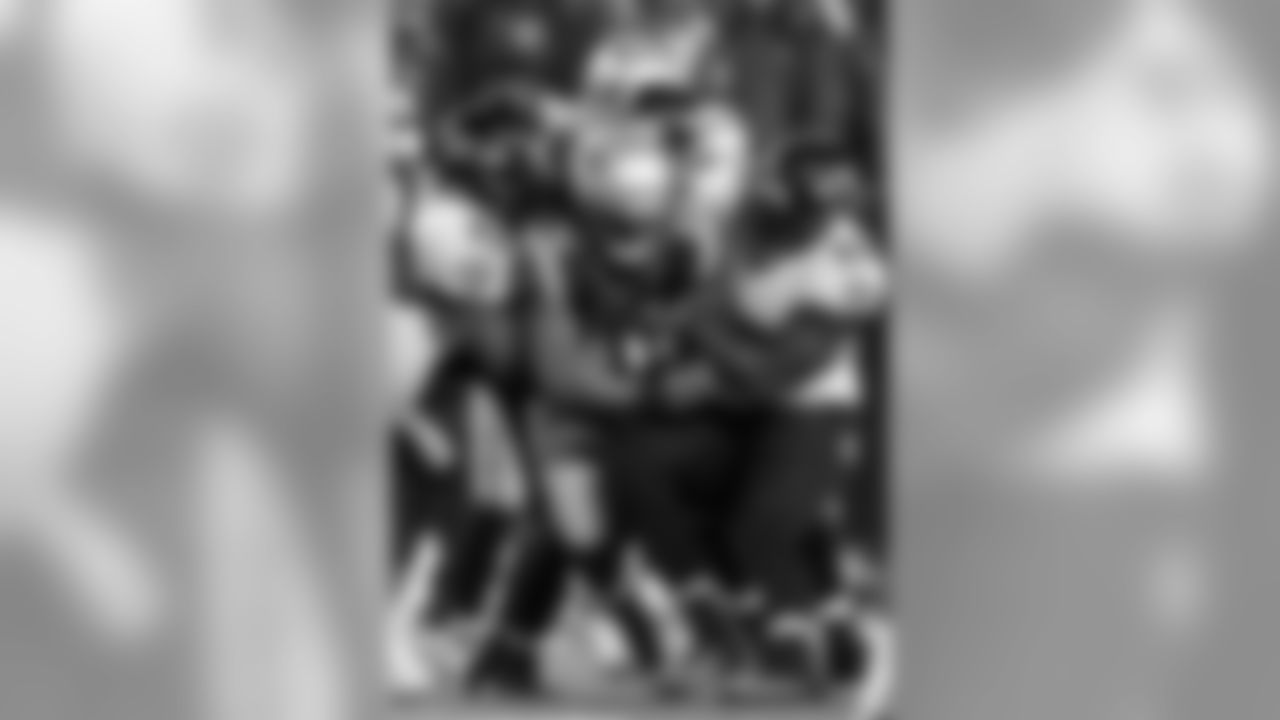
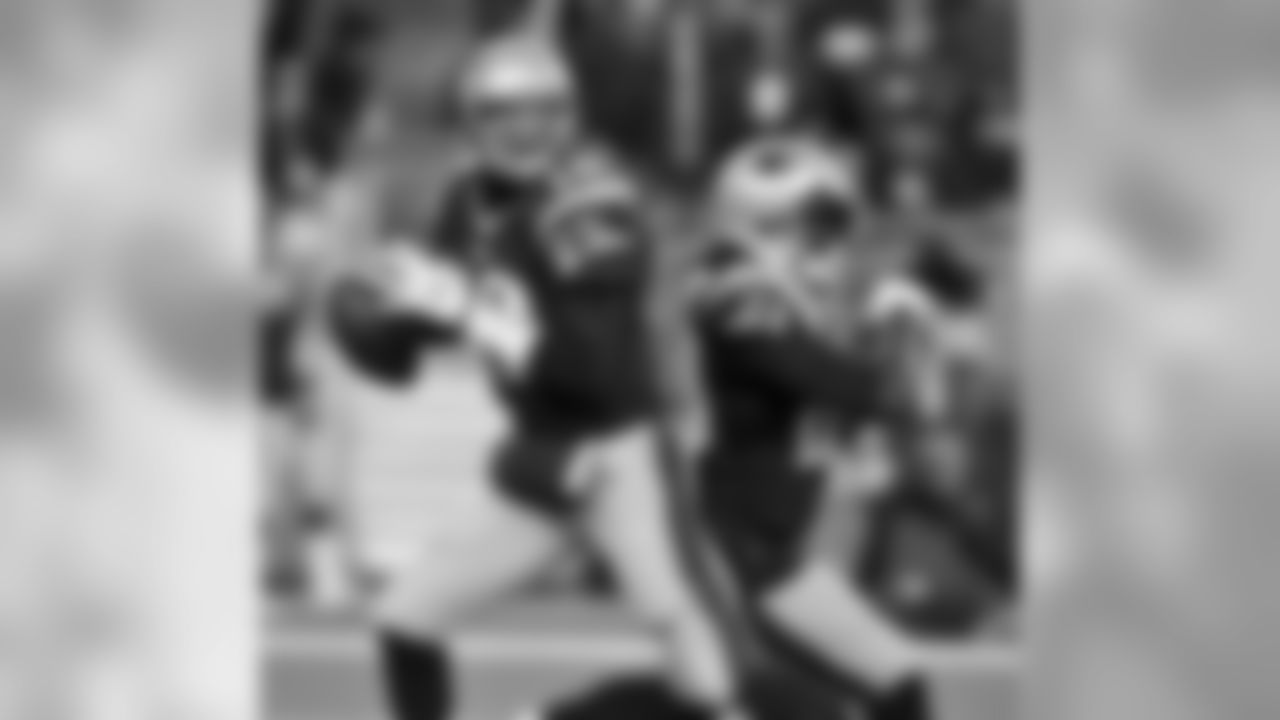
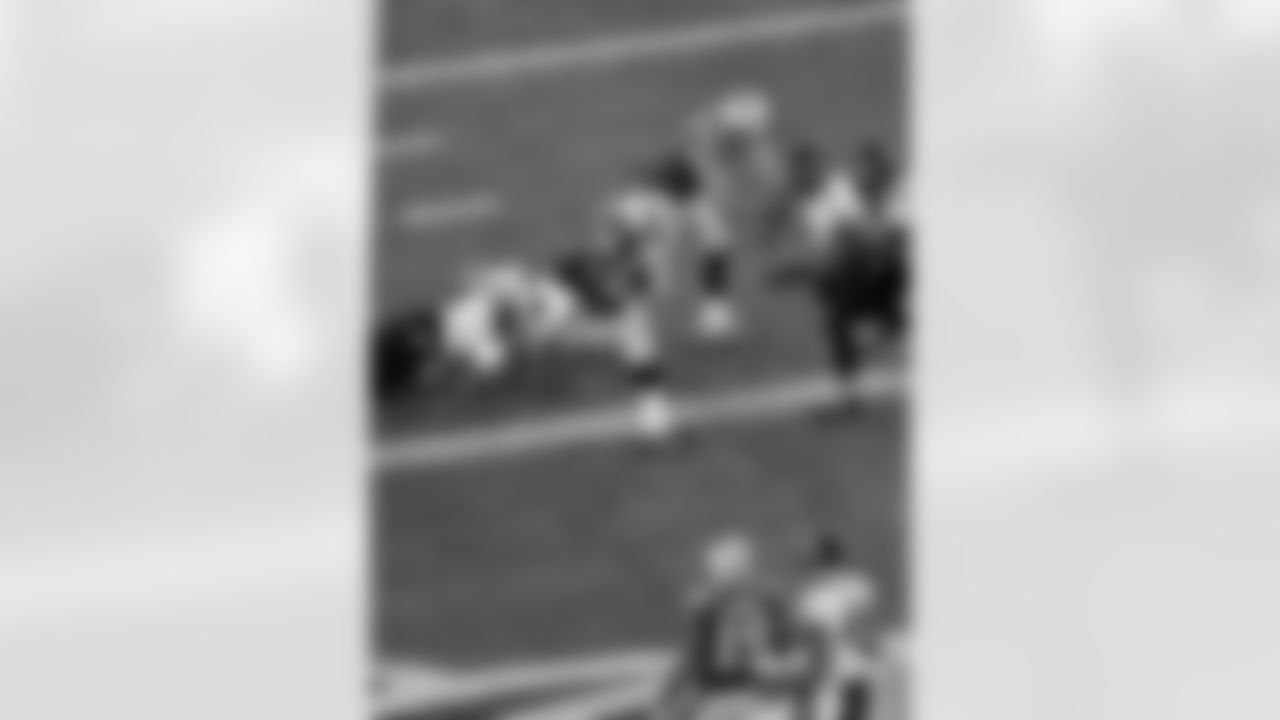
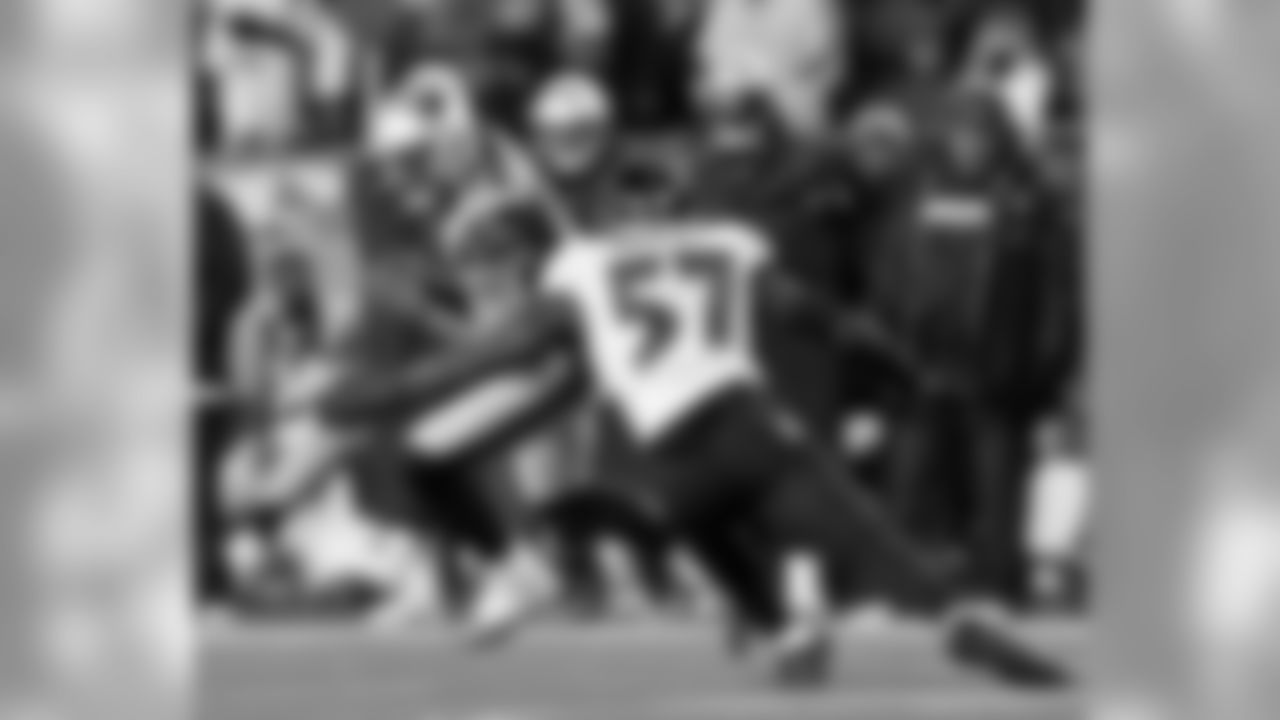
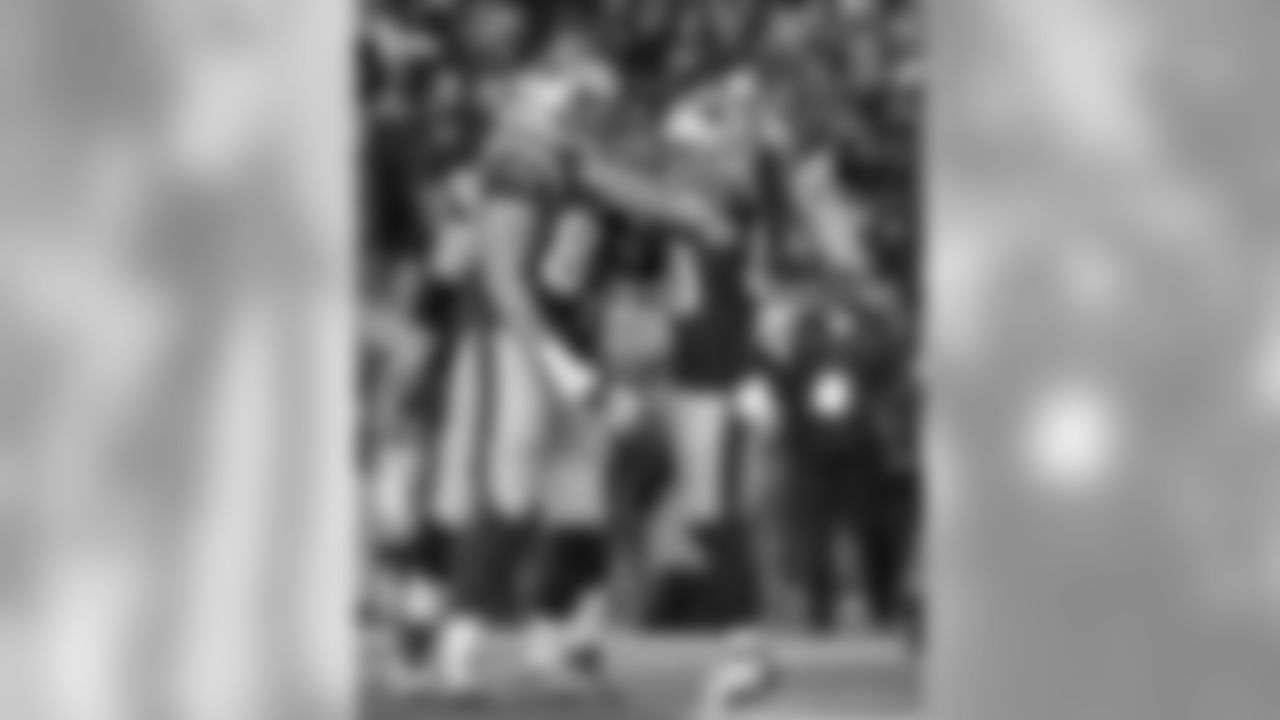
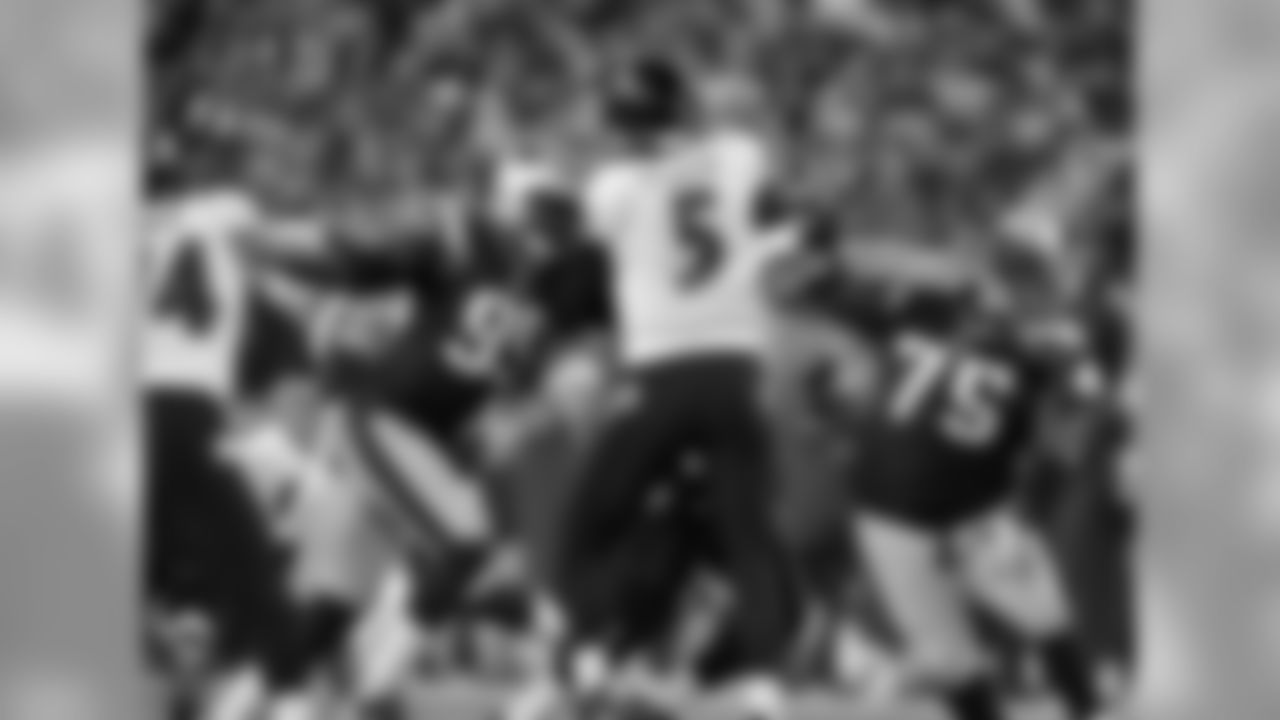
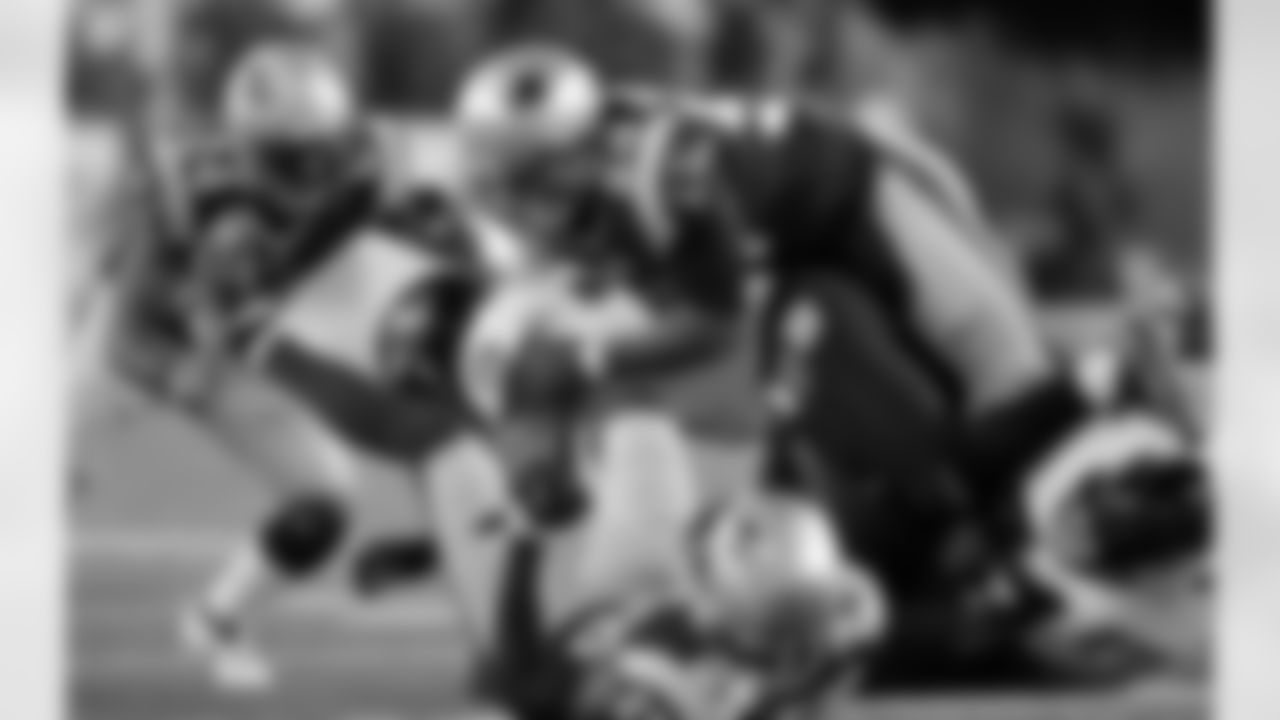
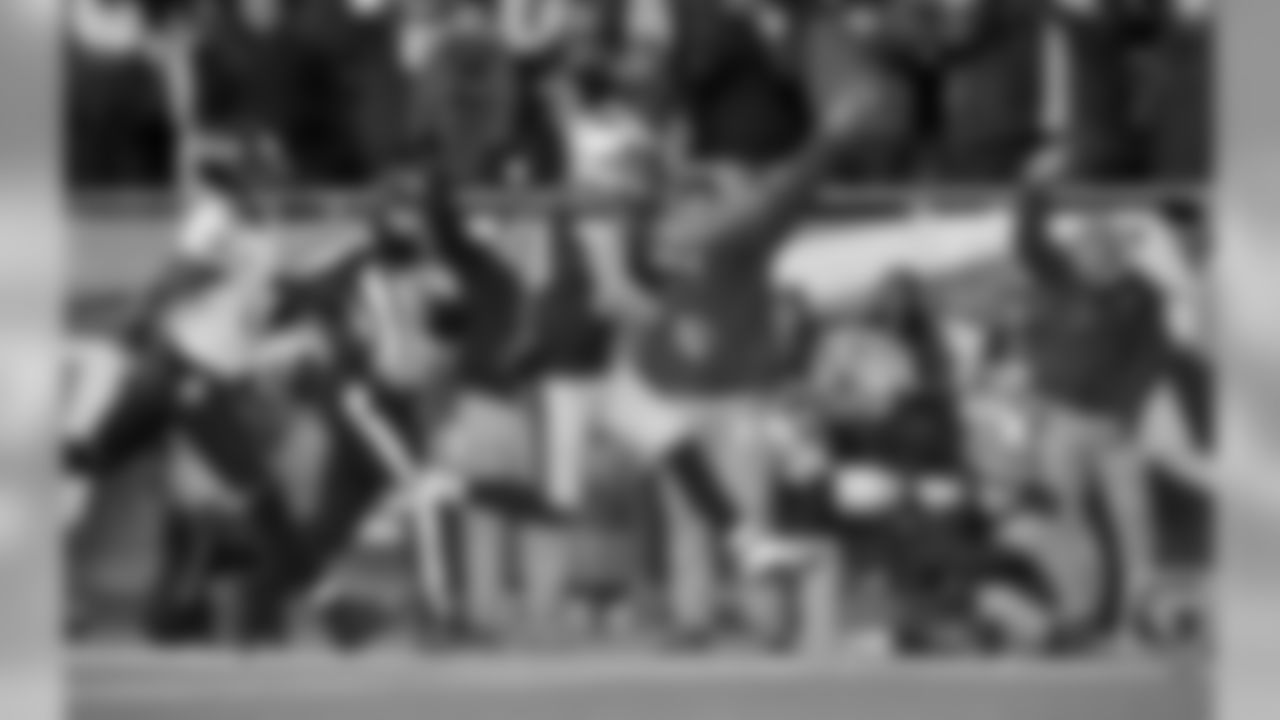


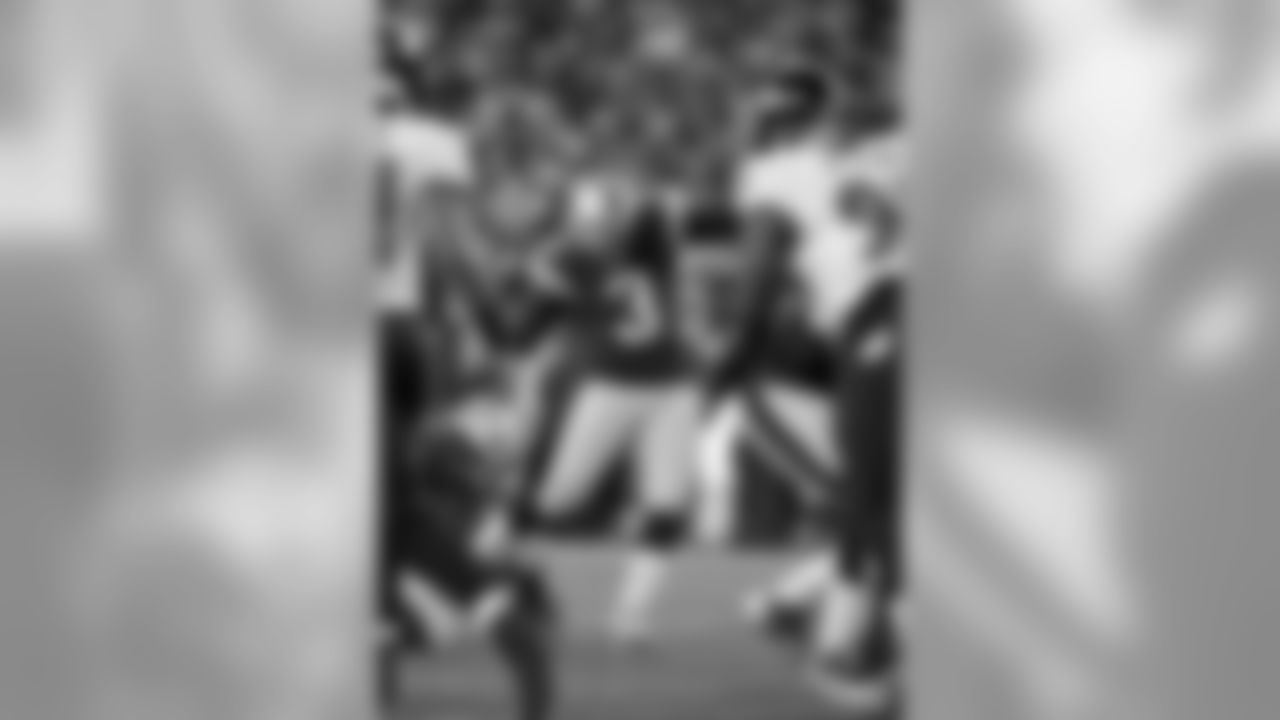
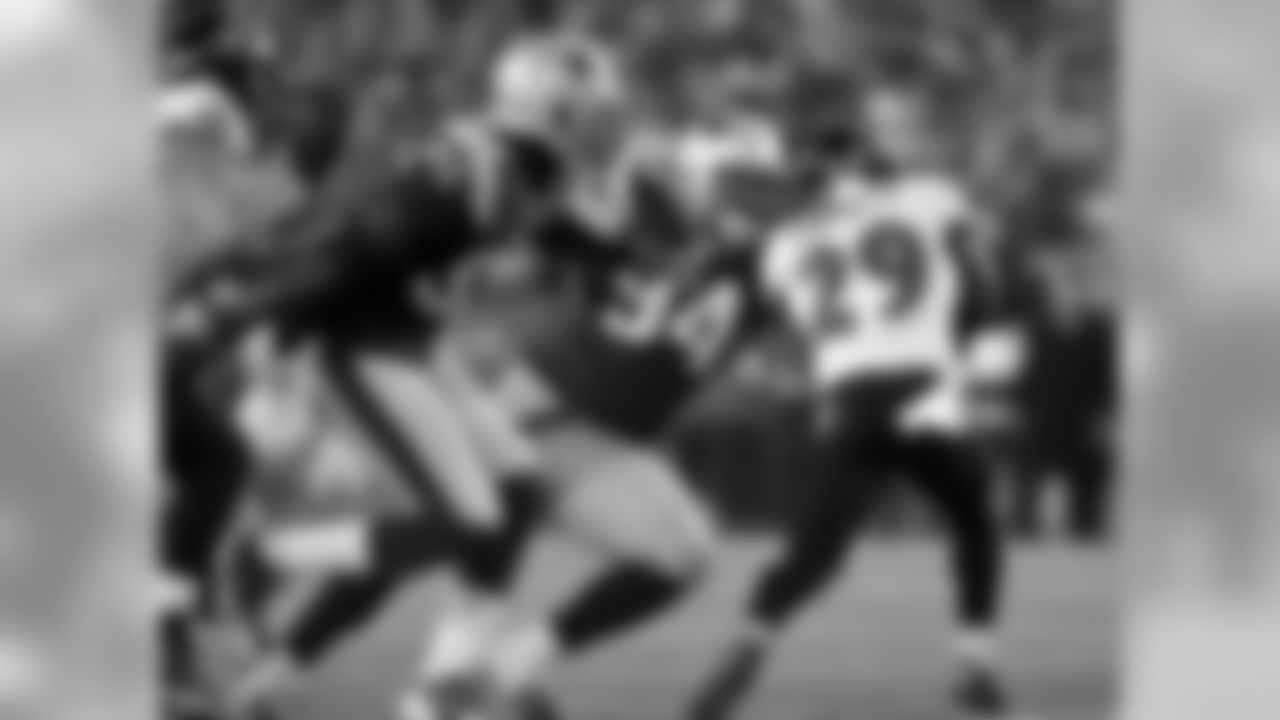
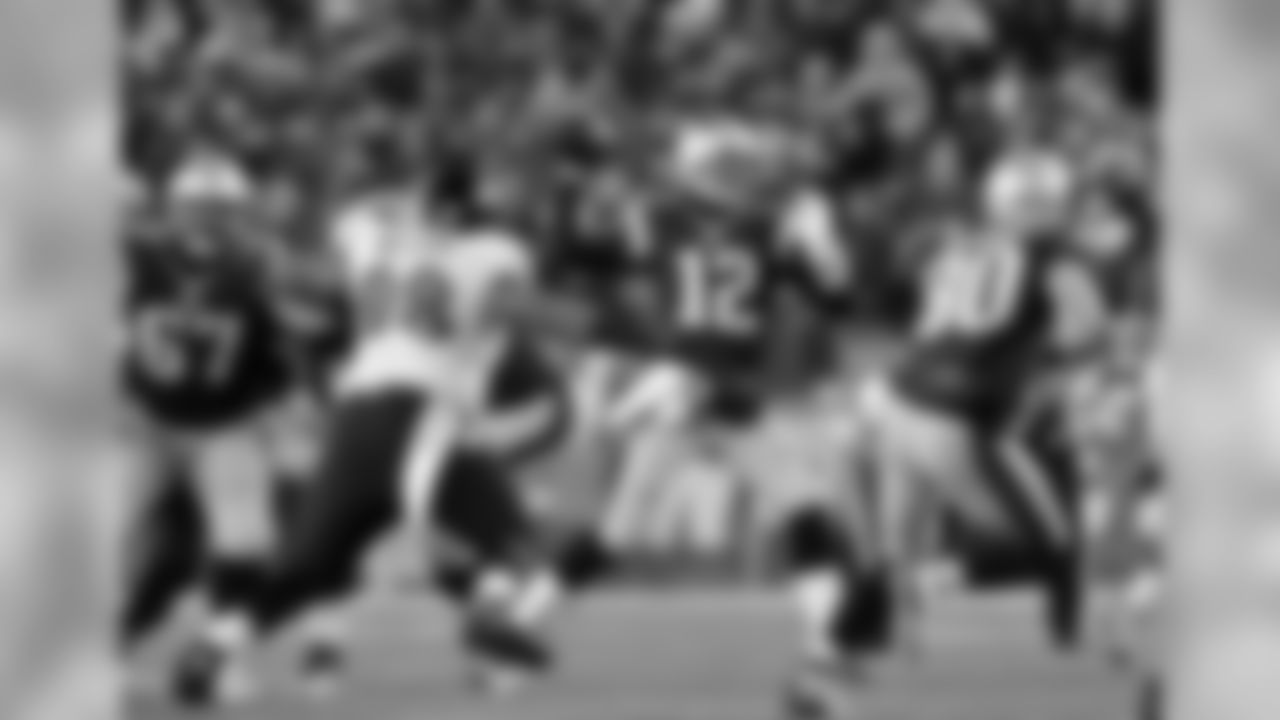
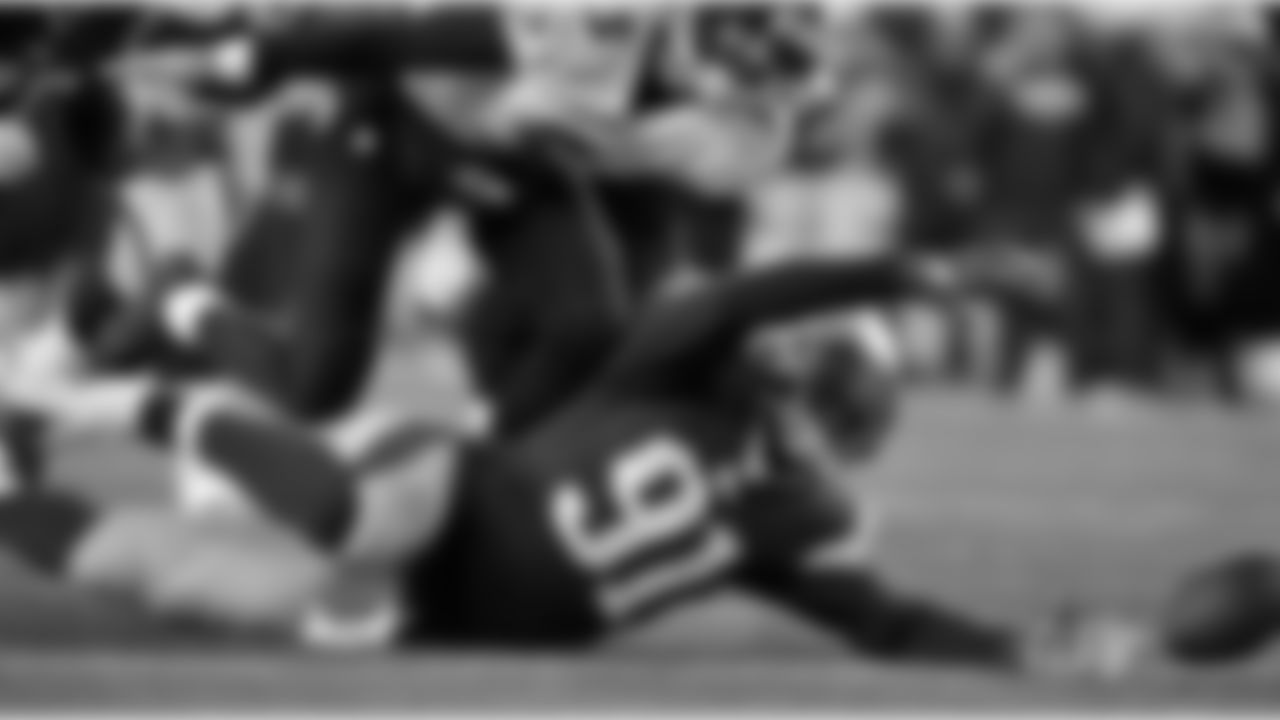
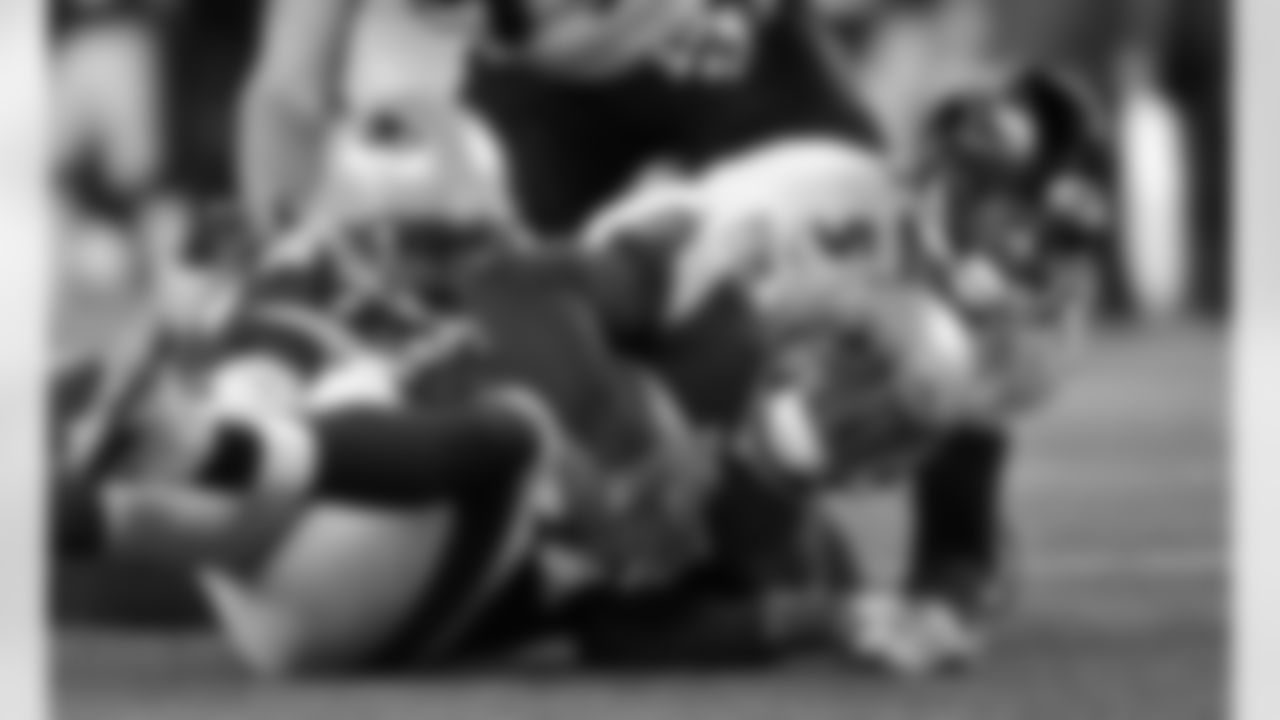
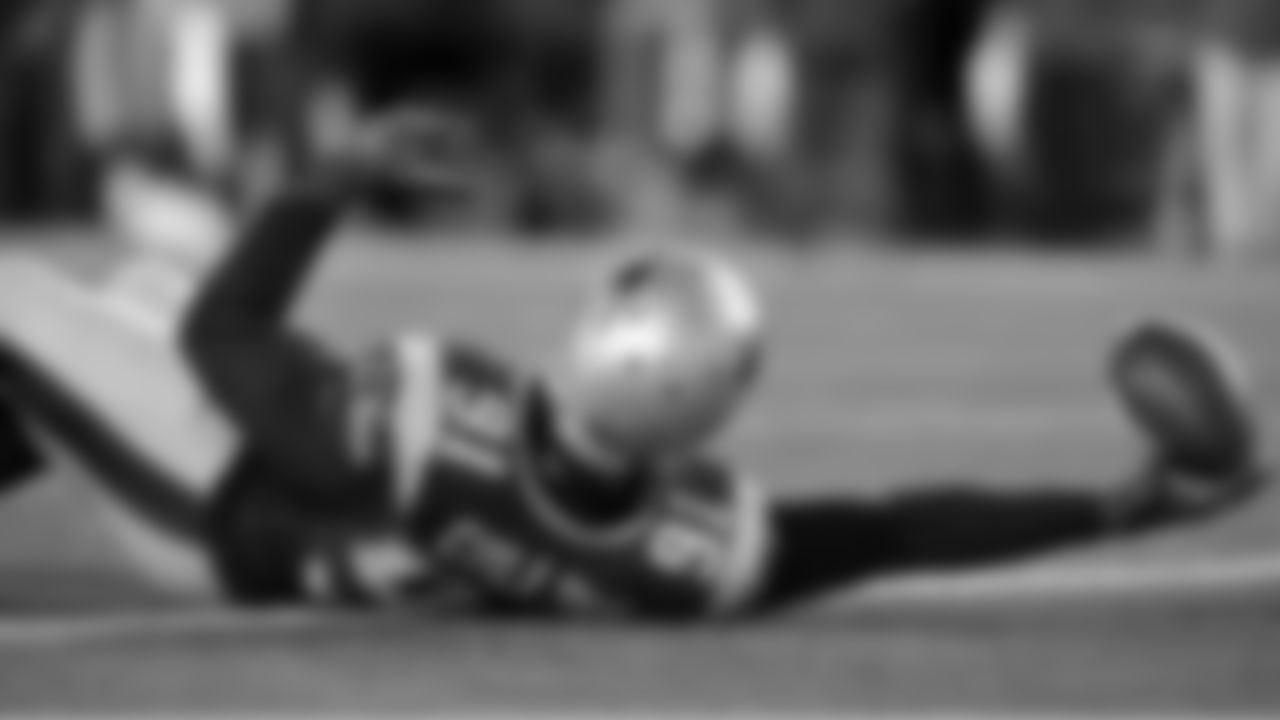
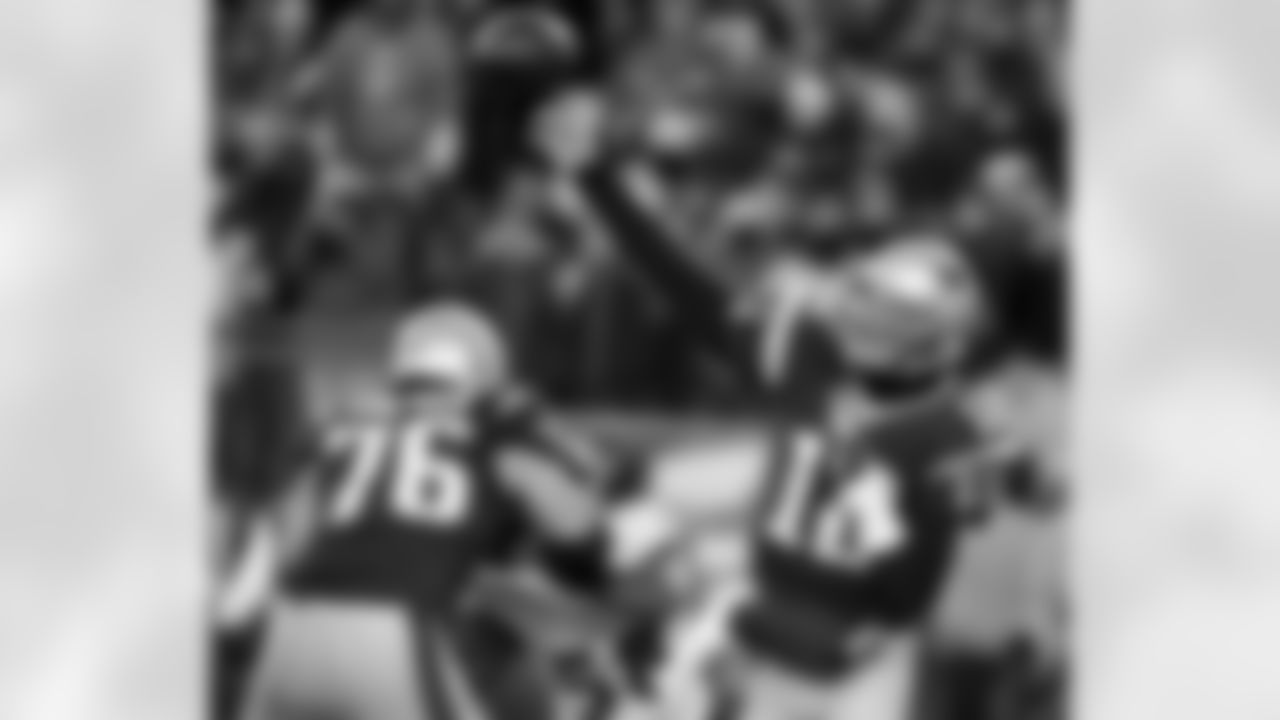
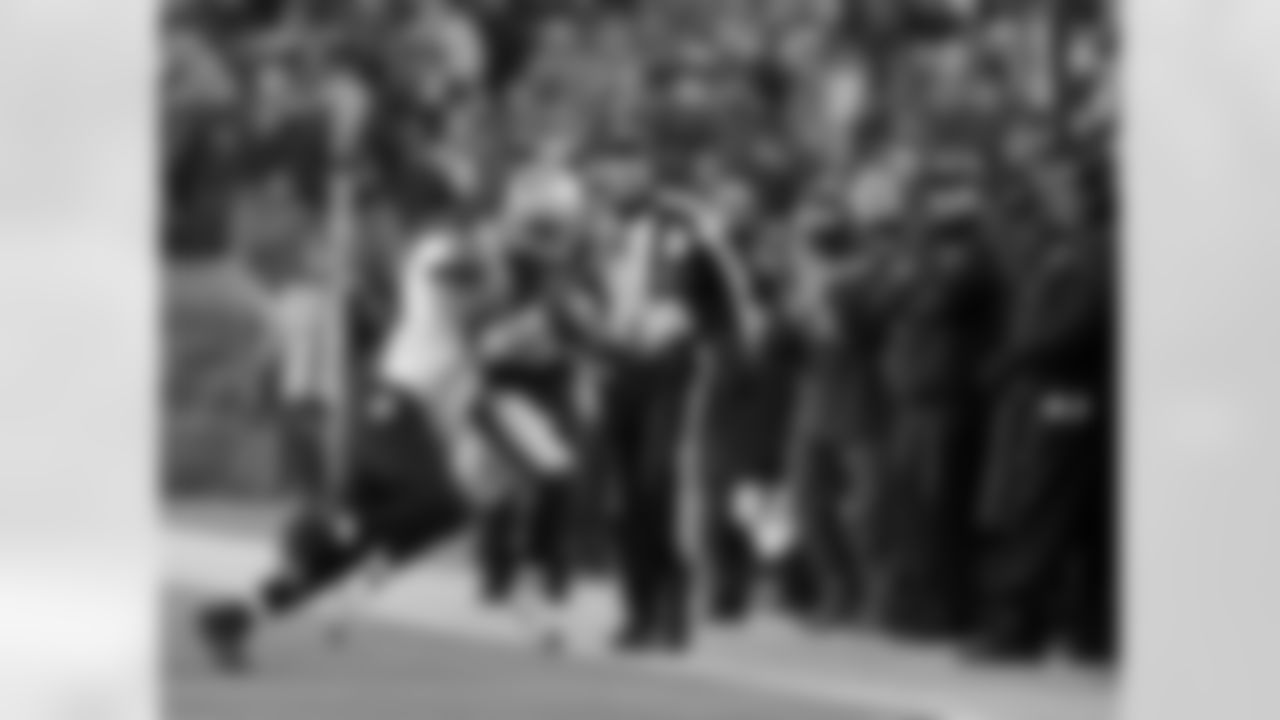
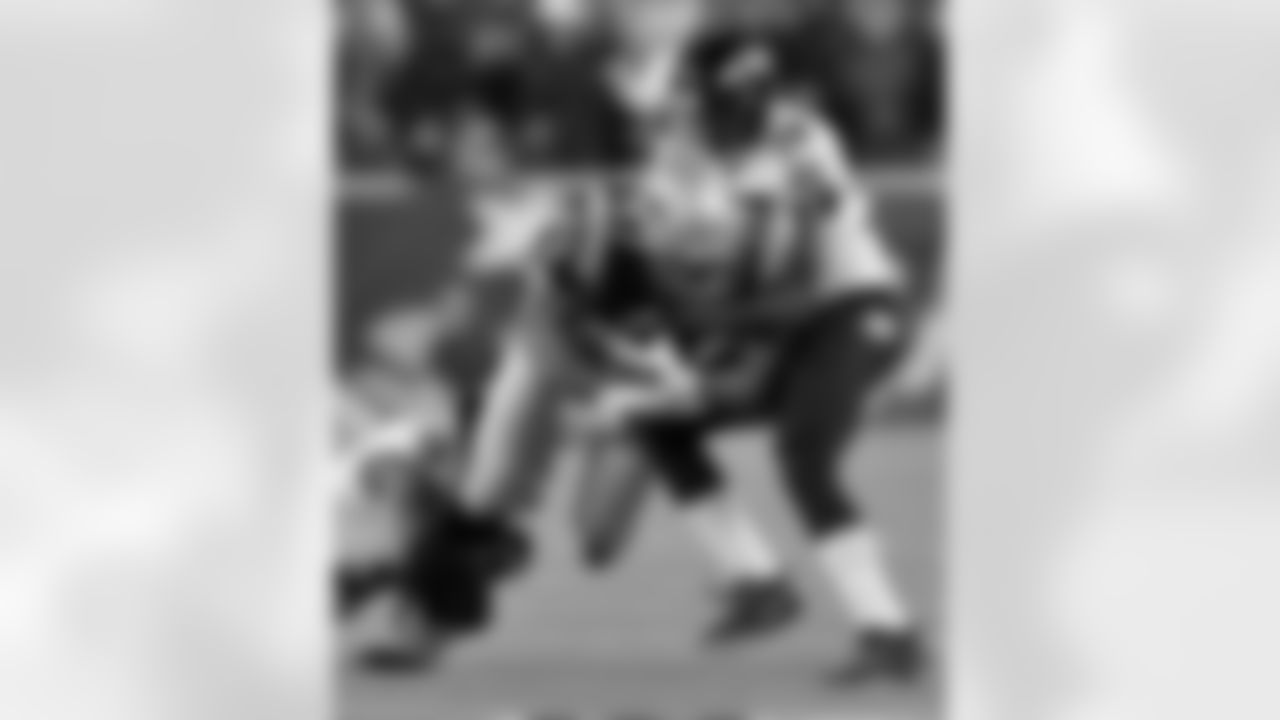
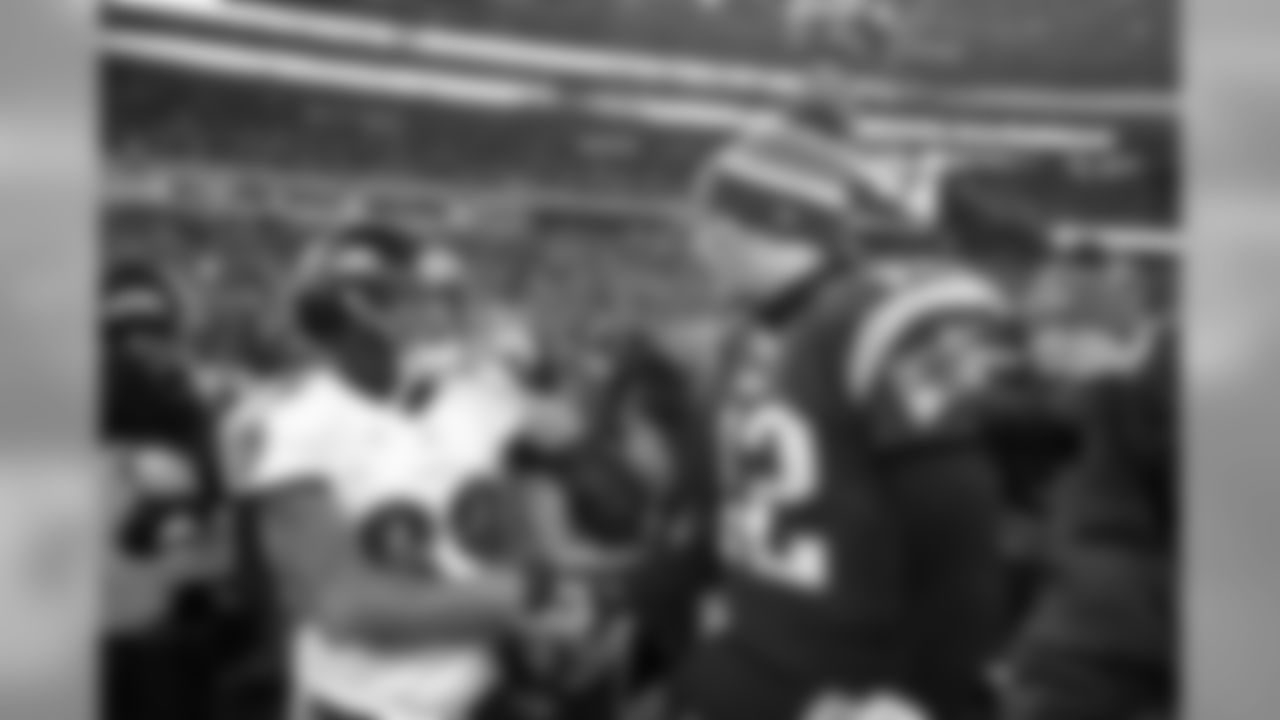
Q:** You said you always try to err on the side of caution and stay on the right side of the rules, but with the videotaping it was clear that you were pushing the envelope on that. Is that something that changed that?
BB: I mean, look, that's a whole other discussion. The guy's giving signals out in front of 80,000 people, OK? So we filmed him taking signals out in front of 80,000 people, like there were a lot of other teams doing at that time, too. Forget about that. If we were wrong then we've been disciplined for that.
Q: That's clearly not doing everything you can to stay on the side –
BB: The guy's in front of 80,000 people. 80,000 people saw it. Everybody [on the] sideline saw it. Everybody sees our guy in front of the 80,000 people. I mean, there he is. So, it was wrong, we were disciplined for it. That's it. We never did it again. We're never going to do it again and anything else that's close, we're not going to do either.
Q: So is that a change? I'm talking about what you said a few minutes ago about always trying to stay on the right side.
BB: We always do. We always have. I mean, anything that's even remotely close, we're on the side of caution.
Q: You talked a lot about science today. Did you have any science people help with your investigation?
BB: We talked to a lot of people.
**
Q:** How much time did you spend on it?
BB: I don't know; I didn't log it.
Q: Are you relieved by what you've found in your investigation?
BB: I didn't – look, I came in here Thursday and I told you that I didn't have any answers. I just – and I'm very confident in the things that we've talked about, the study that we did, going through with a fine-tooth comb, everything. I'm 100 percent confident in everything I've told you. That's what I believe. That's what I know. That's what it is. I'm as transparent as I can be on this one, period.
Q: Is that a yes that you feel relieved?
BB: Look, I did what I did. No, I'm not using those adjectives. I told you what I did. That's what it is.
Q: Is there one thing that you did that caused it to raise 1.5 PSI? Did you put it in front of the heater? Did you put it in dryers? Do you know what it was?
BB: No, it was never put in front of a heater. I just said that.
Q: No, I'm talking about whatever you do to get the texture right that causes it to rise.
BB: You rub it. You try to get the texture the way the quarterback wants it.
Q: I'm just trying to establish what it was that made it rise.
BB: I just said that and I said that at no time was the football ever put in any type of heated environment.
Q: So you rub it vigorously?
BB: We rub it to get the football to the proper texture. Yes, it's – I mean, I don't know what's vigorous or what isn't not vigorous. We're not polishing fine china here; we're trying to get a football to the proper texture the quarterback wants it to grip it. Does that stimulate something inside the football to raise the PSI? I would say yes, it does.
Q: Based on all this research, then what do you do differently in the future to err on the side of caution?
BB: Well that's another – you're getting into another whole area here. You're getting into another whole area as it relates to the next game. Yes, that's exactly right. I couldn't. That's exactly why this whole process was done: for that very reason. I don't know the answer to that question, but that's a very important question.
**
PATRIOTS WR MATTHEW SLATER PRESS CONFERENCE**
Q: What'd you have for breakfast today?
MS: Oatmeal.
Q: What do you think the NFL should do about the inflated footballs so that it never happens again?
MS: I would love to get into that with you, but we have been instructed by our union as players to reserve comment on this situation. It's an ongoing investigation, so in order to protect our players we're going to go ahead and not talk about that.
**
Q:** Has coach [Bill] Belichick addressed this in the locker room?
MS: I think we've addressed it and we've moved on. So our focus is on the Seattle Seahawks.
Q: When there are things outside that can be perceived as distractions by people like us, how do you as a team ignore the noise?
MS: I think ultimately you have to remind yourself why you're here, and that's to play football and to play football at a high level. There's always going to be things going on outside of our locker room – distractions, extracurricular [or] whatever it is. We just have to make sure that we focus on the men in that locker room and the task at hand. I think it starts with coach [Belichick]. He does a great job of getting us focused and then we have great leadership in place on the team that kind of relays that message through the ranks.
**
Q:** Does it get harder at all with guys on Twitter and the amount of coverage you get at this time of the year?
MS: I think social media and things of that nature have made things different over the years. When I first came in there was no Twitter or things of that nature. I think all that being said, the one constant is the man at the top and he's leading us in the right direct. He understands the generations that come in over the years are different and he knows how to motivate us and keep us focused.
Q: What have you seen from Seattle's special teams?
MS: I think they've got good specialists. They've got good guys back there handling the ball that make good decisions, and then you see a lot of team speed. Obviously with the defense it carries over to the kicking game – there's a lot of team speed and size. They just play with a lot of energy. That's typical with [a] Pete Carroll coached team. I feel I'm back at UCLA watching the Trojans run around and make plays and just physically intimidate their opponent. It's going to be a challenge for us.
Q: They ran a fake field goal for a touchdown against the Packers. Have they ran other trick plays earlier in the season that we maybe haven't seen yet?
**
MS:** I think we've got to be just on high alert. When you look at their coaching staff they've got about four or five guys that help out with that special teams unit – Heath Farwell, Nick Sorensen, and then obviously Brian Schneider is the coordinator, so there are a lot of ideas and a lot of experience in that room. We're just going to have to be ready situationally for anything.
Q: We talk about how you guys put a lot of focus on special teams. Do you think a team like Seattle gives it the same level of attention?
MS: Certainly – I think they take a lot of pride in it and I know having played for Brian Schneider in college, I know that he's passionate about what he does. He's a very smart coach that understands the game and understands to get players in position to make plays, and obviously I think coach Carroll takes pride in it as well. That's very visible in tape.
Q: Was special teams coach Brian Schneider instrumental in you getting accustomed to playing special teams?
MS: I can't say that he was.
Q: Okay, so was he not part of that?
MS: Well I was younger. I was younger and then he left before I really started getting into it.
Q: How big of a lift is it to the team to have everyone back out on the practice field?
**
MS:** It's certainly something that we're excited about, but at the end of the day it doesn't matter who we put out there on Sunday; it's about execution. I know I've talked about that throughout the course of the week. It's nice to have guys out there, and like I said, you want guys healthy this time of the year. If we don't execute it doesn't matter who we have out there.
Q: Last time you were at the Super Bowl you were nursing a shoulder injury. Is it any easier to prepare now?
MS: It's definitely nice to be somewhat healthy. This time of year it's tough for everyone. We've played a lot of football. I'm just excited about going in there and like you said preparing and playing just like I was last time. The shoulder didn't really affect me last time; [I] just was focused on playing the game.
Q: You mentioned Pete Carroll's influence on their special teams. When it comes to special teams, can you really notice things like energy and enthusiasm?
MS: I think as soon as you turn on the tape you see just guys flying around. You see guys playing together and having fun. You see times where there's eight guys jumping on the ball carrier. That's something that I think starts on top. If you don't emphasize that, if it's just something that you casually go about, you usually can tell when you turn on the film.
Q: It seems like the Seahawks like to talk. Do you notice or does it bother you when they start talking about guys on your team?
MS: That's who they are. They love to have fun and you should have fun, this is a game. I think all of those guys play the game the right way. They have respect for the game and for their opponents. Then hey, they just play with enthusiasm and I don't think there's a problem with that.
Q: Does it give guys any sort of fuel when you hear some of those things?
MS: I don't know. I think we're just focused on what's going on in our locker room and getting ourselves ready to play a good football team.
Q: Can you describe the character and integrity of Tom Brady and what you've seen from him the last few seasons?
MS: I can only speak for myself and the personal interaction that I've had with Thomas over the years and it's been great. He's been great to me. He's been a good friend, a great teammate and I have a ton of respect for him. I'm thankful to have had the experience of playing with a guy like that over the course of my career. So, like I said, I can only speak for myself, I have nothing but good things to say about Thomas because of how kind he's been to me.
Q: Are you the only one that calls him Thomas?
MS: I think there are a few other guys that do.
**
PATRIOTS LB DONT'A HIGHTOWER PRESS CONFERENCE **
Q: Is most of the game planning going to be done before you guys get on the plane to Arizona?
DH: That's a question for [head coach] Bill [Belichick], but just as far as preparation, guys getting on film and stuff like that, guys have switched [focus] the day after the AFC Championship Game, 24-hour rule, and we've all been watching film and getting a little bit further ahead. As far as when the full install will be done, you're guess is as good as mine.
**
Q:** What has Jerod Mayo meant to the linebacker group?
DH: He's meant a lot. I mean, even before the injury, he was still a coach on the field to us, and he's been a real big part, especially last week and the week before with helping me and Jamie [Collins] see things on the sidelines and giving us adjustments. Matty P [defensive coordinator Matt Patricia] has a big job on the sideline with talking to Bill and B Flo [safeties coach Brian Flores] and everybody, so Mayo has really helped that front seven just as far as seeing side things on the sideline.
Q: With the criticism this team has taken for the deflated footballs and the formation stuff, will there be an asterisk if you win this game?
DH: No, I'm not worried about that. It is what it is. At the end of the day, we can't control any allegations or whatever. All we can do is go out and play ball. Regardless, our goal is to go out and win.
Q: Does the two-week break between the AFC Championship Game and the Super Bowl affect your preparations?
DH: Absolutely not. This is a game that, [during] the OTAs and the offseason workout and stuff, this is the game we've all been training and getting ready for. This is the big show, so definitely approaching this game, trying to approach it like a regular week, but it means more than that. There is always going to be extra time in the film room, guys just talking outside, coaches being there, us just sitting down, chilling, watching film [and] picking each other's brains just to make sure we're all on the same page whenever that day comes.
**
Q:** Describe the difficulty of defending their read option, with a back like Marshawn Lynch and a running quarterback like Russell Wilson.
DH: It's definitely going to have to be an execution thing. Both of those guys mean a lot to their team – not just their offense – their team. We're just really going to have to be able to execute 100 percent. Like you said, Lynch is probably the best running back in the league, and Russell Wilson is a dual threat. He runs when he needs to. He's not always looking to pull it down and run, but if it's there he'll take it. Defending that is definitely going to be a big part in what we want to do to be successful come game day.
Q: What is it specifically about Marshawn Lynch that makes him so difficult to defend?
DH: A little bit of everything. He's aggressive, he's strong, he's got great vision, great balance, good feet – he has everything that you would want in a back. His feet never stop moving no matter what he's doing, whether it's picking up blocks in protection or getting out on a screen pass or a check down. He's always looking to make that big play.
Q: Is tackling emphasized even more this week? I think he led the league in yards after contact.
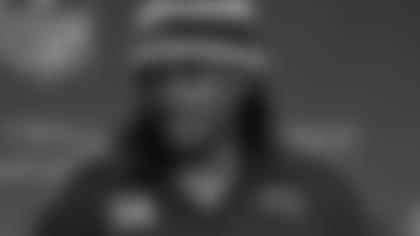
DH: Of course, especially tackling Lynch or Wilson or [Doug] Baldwin. They have great skill players who all have big-play impact. If you go back and you watch film, a lot of those plays were to get the ball to them real quick and out in space. Any time they can do that, they're willing to take advantage of it, and that's something they want, is to have that big-play ability.
Q: Some guys try to beat you by running over you and others try to beat you with lateral quickness. How do you see Lynch? Is he a hybrid of the two of those styles?
DH: Definitely both. Again, everybody kind of looks at Lynch and thinks that he's just an aggressor and wants to run everybody over. That might be his game, but I see it as both. He'll run you over to get where he wants to get, but you never see him run out of bounds. He's always looking to cut back and make those big plays and those 80- and those 70-yard touchdowns that you see. He does everything.
Q: How has Jerod Mayo helped you grow as a player?
DH: He's helped me a lot. I feel like I have a pretty decent football IQ, but Mayo's is on a different level. Whenever I'm able to pick his brain about anything, it really means a lot. I really feel like almost he could come up with a game plan on his own if you give him the time of day. He's really smart. He's helped me learn the game. He's helped me help myself as far as understanding the things that could make myself play better as far as me playing downhill and getting out in space and some of the things that he's good at.
Q: Do you know Marshawn Lynch personally?
DH: I do not.
Q: Have you seen his news conferences and how he answers questions?
DH: I think everybody's seen that. I think it's apparent that [he] doesn't want to talk to the media. It is what it is. A lot of guys don't want to, but you've kind of got to.
Q: Do you think it's funny?
DH: Yeah, I think it's funny. I'm pretty sure you all think it's funny, too, so don't just put me up here and act like I'm the only one. But it is.
Q: How valuable is it to have experience playing against guys like Russell Wilson and Marshawn Lynch?
DH: Honestly, it's really just going to come down to want to. You can do as many tackling drills as you want and you can get as many repetitions as you want, whatever, but it comes down to if you want to. If you don't want to tackle, then you don't want to tackle. So, it's really just going to be guys; we'll just have to get out there, get everybody to the ball and everybody's going to want to tackle. There are going to be plays in the game where I'm pretty sure that him or Russell Wilson or Baldwin or [Ricardo] Lockett or somebody is going to be one-on-one, and it's just going to come down to us wanting to tackle.
Q: How much motivation is it to not want to be a part of another Beast Mode video of him running through a defense?
DH: Yeah, no comment.
Q: 'Deflategate' – have you had about enough of that?
DH: Yeah, no comment on that, too.
Q: Russell Wilson seems to get more dangerous as the game goes on. How much focus is there on his ability to make game-changing plays late in games?
DH: It means a lot, and I definitely feel like sometimes guys don't always – respect is not the word I'm looking for – but don't think people are as elusive as they seem. I feel like sometimes that people don't always give Russell Wilson his credit for being a dual-threat quarterback. He can sit in the pocket and he can throw the deep ball and he can scramble around and make a deep ball throw there as well. It's really just going to be coming down to execution.
Q: Were you surprised that Seattle was able to pull it off last week?
DH: They have a really good team. That's why they're back, and they all have big-play ability. That goes on the defensive side as well. So I'm not surprised.
Q: You've had a lot of success pressuring quarterbacks up the middle this year. Because of Wilson's scrambling ability, do you almost not want to do that?
DH: You just have to be careful. I'm not going to throw out some of the game plan hints or whatever, but any time you're rushing a dual-threat quarterback or a quarterback that's mobile like [Joe] Flacco or Aaron Rodgers or Drew Brees, you always have to be careful rushing the pocket because they'll scramble out to run and they'll scramble to throw the ball downfield.
Q: Considering the weather today, are you excited to get to Arizona?
DH: Yes. Yes. I'm ready to get away from the snow.
Q: What are your thoughts on their offensive line?
DH: They look really good. Lynch is a great running back, but I definitely feel like his offensive line does a great, great job as far as getting off blocks and getting moving and getting them downfield. You can watch a lot of Lynch's runs where there are a lot of linemen downfield pushing the pile, trying to knock guys off of Lynch and that gets Lynch those eight-to-10 extra yards. Their offensive line looks really good.
Q: How about protection-wise?
DH: They look good. I can't say that there are a lot of flaws. They work really well together. They complement each other really well on both sides. I feel like they've got really good chemistry.
Q: What was your relationship like with James Carpenter at Alabama?
DH: Me and James were somewhat close. The first couple years – there were only a couple years we were there – we were actually roommates whenever we first got there for a little bit. James is a great guy. He worked hard at Alabama, obviously he's working really hard in the league, so he looks pretty good.
Q: When you played in the National Championship at Alabama, there was a long layoff before the game. Does that help you prepare for this layoff before the Super Bowl?
DH: Not really. Just like then, this is a game that I wanted to be a part of, so I'm going to treat it like any other game. A little extra film work and stuff, of course, but just treat it as the same.
**
CORNERBACK KYLE ARRINGTON **
(On tackling Marshawn Lynch)
"Obviously, I don't have to tell you, you guys see it, he's a load. We've got to bring our big-boy pads this game and all hands on deck, really, and everybody at the point of contact to try and do their best to get that guy on the ground."
(On Seattle's receivers and if the group is better than they get credit for)
"I think, collectively, they're a good team. They have a good bunch over there offensively. They have great playmakers in [Doug] Baldwin and [Jermaine] Kearse. I think they get the credit they deserve. Those other guys are just big-time players, as far as [Russell] Wilson and [Marshawn] Lynch. That's where it all starts."
(On if the team's weeklong trip to San Diego earlier this season will help them prepare for a week in Arizona)
"Well, ideally, it's nice to go somewhere warm this time of year and not be in Foxborough, but it was a good experience being out in San Diego for a week and being away. This time a lot of guys will have their families out there in Arizona, so it will make it less difficult."
(On why the team is so focused during big games)
"It starts from the top down, as far as coaching; our veterans on the team, they do a great job of just leading by example. It's easy for us to follow suit."
**
DEFENSIVE END ROB NINKOVICH **
(On if there are similarities between LeGarrette Blount and Marshawn Lynch)
"Yeah, I mean, Blount is about my weight, so he's definitely a hefty guy, [so] going against him in practice every day is always fun to have a guy that challenging and that big to go after and you can visualize a bigger body coming at you."
(On the advantages and challenges of going on the road for a week in Arizona)
"We've done it during the year. When we played the Chargers, we went out there for the week and prepared out there well. It was a great experience to bond with your teammates and really just be a tight-knit family."
(On what it will be like when he gets off the plane in Arizona)
"It's all about zoning in on what your job is. For me, it's going there to practice all week, practice well and get ready for the biggest football game of my life."
(On his thoughts on Darrelle Revis and Richard Sherman)
"Two great football players. Revis has been a tremendous teammate and I love having him playing next to me."
(On similarities between Andrew Luck and Russell Wilson)
"Well, I mean they're both guys that can extend a play with their legs and scramble a little bit and get the ball down the field. Strong deep ball guys, they can both push the ball down the field really well. So again, two very good, tough football players."
(On what Wilson does well)
"He's a guy that can move in the pocket, he can extend plays and he can hurt you with his legs. He can also throw the ball down the field and throw strikes, so again, overall, he can pretty much do it all."
(On playing in another Super Bowl after losing one)
"I'm excited for another opportunity to play for this. The last time we were there, we didn't get it done, so this is another opportunity and you've got to make the best of it because they don't come often."
**
WIDE RECEIVER DANNY AMENDOLA**
(On what stood out to him from the Seahawks comeback in the NFC Championship game)
"They're a good team. They play hard for four quarters and in that case a little longer. It's going to be a battle for sure."
(On his thoughts on Seattle's secondary)
"They're good. They fly around, they play hard and we're just going to continue to prepare for them."
(On the keys going against Seattle's defense)
"We've just got to make plays. I feel like our coaches are going to get us in the right position to be successful and we've got to play really well. They're a great defense so we've got to be ready."
(On if practicing against Brandon Browner and Darrelle Revis will help the receivers)
"Absolutely – those guys are some of the best to play that position and they get us better every day."
**
DEFENSIVE BACK DURON HARMON**
(On his excitement to get to Arizona)
"I think I'm more eager just to enjoy this whole process and get ready to play in this game. It's a once in a lifetime opportunity and I know I'm blessed and fortunate enough to play in."
(On the challenges going against the Seahawks offense and their play-action)
"It's tough because you know everything starts with the run game. You look at those guys, they have two guys really with [Russell] Wilson and [Marshawn] Lynch who can really, really run the ball really effectively and hurt you – then like you said it sets up the play action with guys like [Jermaine] Kearse, [Ricardo] Lockette, [and Doug] Baldwin to get down the field and make big shots and big plays for them."
(On if Kearse's catch last weekend was a reminder to not let him get behind you)
"Yeah, definitely – that's a guy who has really, really good speed and we know he's done that all year. Just get behind people and make big plays so we know we have to always be aware of where he is"
(On the challenges of covering the play-action and run game)
"I mean it just goes with doing your job. If your job is protecting the deep part of the field then you have to do that and let everybody else take care of the run. Then if the run is your responsibility, you take care of the run and let people take care of the pass."
**
DEFENSIVE TACKLE SEALVER SILIGA**
(On how tough he thinks Marshawn Lynch is)
"He's [a] beast. He's hard to take down. The more film I watch the more I know how deadly he is. We've got to play good football versus him."
(On the differences of traveling and preparing on the road)
"It's a big factor you know. You go and get adjusted to the climate over there and get adjusted to the altitude."
(On why he believes the team does a good job of staying focused in big games)
"At the end of the day we all trust each other. At the end of the day we go out there and we play and we all know what job we have to do."
(On how he thinks Marshawn Lynch helps Russell Wilson)
"He does a great job running the ball. He opens a lot of opportunity for their whole offense to roll."
**
KICKER STEPHEN GOSTKOWSKI**
(On how Bill Belichick tries to make practice conditions harder than what the team will see in the game)
"It's always harder at practice than it is in a game. We go out there and practice in the cold weather all the time and we don't have the luxury of the heaters and stuff like that, but that's not the case this week. We get to go inside."
(On whether Bill Belichick plays music to simulate crowd noise during practice)
"Yeah, I mean all the stuff you hear about is – I can't give all the secrets away, but it's practice. When you practice five to six times for every time you play, they're always going to come up with something."
(On if the team's weeklong trip to San Diego earlier this season will help them prepare for a week in Arizona)
"I don't know. I mean, we don't think about that stuff. We just worry about the game and the people who handle the logistics deal with that and we just worry about making sure our family and friends get down there safely and we enjoy the experience. At the same time we have a job to do and it's all focus on the game, really. We could be playing in Missouri and we wouldn't care. It's the Super Bowl, it's exciting, we've stayed at hotels before, nothing is different. There's just going to be a big spotlight on it and we're just going to deal with the distraction and ignore the noise."
(On whether it is easier for him to focus because he's been to the Super Bowl before and if he helps out guys who haven't been there before)
"I don't know. I mean, each year has its set of different challenges and distractions and it just all depends on where you're at in your life and I don't really think too much about it. My job is to split the uprights and to try to hit some good kickoffs and that's all I'm thinking about."
(On if he ever thinks about kicking the game-winning kick in the Super Bowl)
"I mean, that's any game. You've got to be prepared for any situation. To me, a kick is a kick and I'm going out there to make that kick and that's the mindset I have. There are plenty of times where a kick you make in the first, second or third quarter can affect the game too. If the situation arises it'll be a great opportunity for me, but at the same time I'm trying to make every kick that I go out there for and I'm not going to change that approach. You can't force the situations you're in, you've just got to react and be able to adapt to the situation. There have been plenty of times in my career where I'm waiting around for a big kick or something like that. You can't make those opportunities; you just have to take advantage of them when you can. I really don't think about stuff like that; all I'm worried about is doing what it takes to kick the ball down the middle and I need to have that approach on whether it's a fourth-quarter kick or a first-quarter kick."
**
FULLBACK JAMES DEVELIN**
(On if the team's weeklong trip to San Diego earlier this season will help them prepare for a week in Arizona)
"Yeah, I think so. It's always valuable to have some kind of experience like that – going away for a long period of time, but really, we're just looking at this week and just trying to prepare for it the best we can and just try to get ready for Seattle because they're a very good team."
(On the differences between preparing for a big game on the road versus a game at home)
"Obviously, you don't have the comforts of being at home. You know, you don't have your own training room and all the facilities we have here, but you learn to just adapt with what they have. I personally like to travel; I like to experience new things, so I think there's pros and cons to both."
(On whether he has an appreciation for Marshawn Lynch's game)
"Absolutely. He's a great player and he runs very, very hard. He's a beast to put it lightly. He's just dominant when he plays and he does incredible things."
(On if LeGarrette Blount is a similar player)
"I think they're both big backs and I think they both run hard and aren't afraid to kind of get in there and make some tough yards; running over guys or running through guys. I think they're similar types of players, but I think they're each kind of their own player."
(On going against Seattle's defense)
"We're in for a challenge. They've been one of the top-ranked defenses in the NFL for quite a few years now and they do what they do and they do it very well, so we're going to have to be definitely prepared for them. They got pretty much every aspect of the defense covered and they're ranked highly in all aspects of it."
(On if the team would like to establish a heavy running game against Seattle)
"I think you always just try to stay balanced and always try to make sure that your run game and pass game are both working because it complements each other. I think we got to stay balanced and try to get everything working."
(On preparing for the biggest game of the season)
"I think it's important to really try to keep things into perspective. I think when you start thinking about, 'Wow, this is the Super Bowl; this is the game that everyone tries to get to when the season starts,' it gets a little overwhelming. You might try to get too hyped, so I try to stay level and stay not too high, not too low and kind of prepare the same way I do every week."
(On why the team is able to prepare so well for big games)
"The leadership we have on the team, not only in the locker room, but in the coaches – they do a great job of making sure we're prepared and making sure we're doing the right things to put the best product out on the field on Sundays."










































